




UNITING THE WORLD OF FITNESS ISSUE 11 2022 @ HCMmag HCMmag.com UN IT IN G THEWORLDO F F IT NE SS GLOBA L MEDI APART NE R ISSUE 11 2022 @HCMmag HCMmag.com PHYSICALCOMPANY.CO.UK GLOBAL MEDIA PARTNER
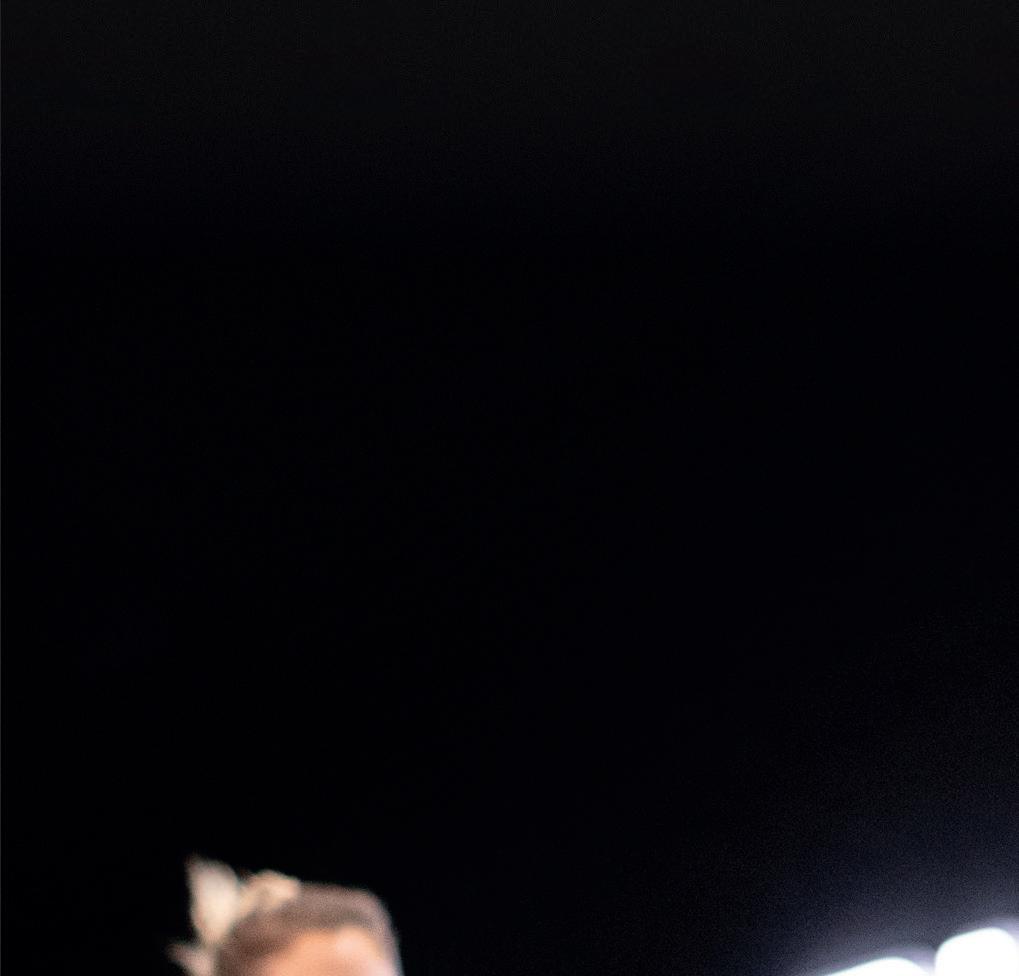





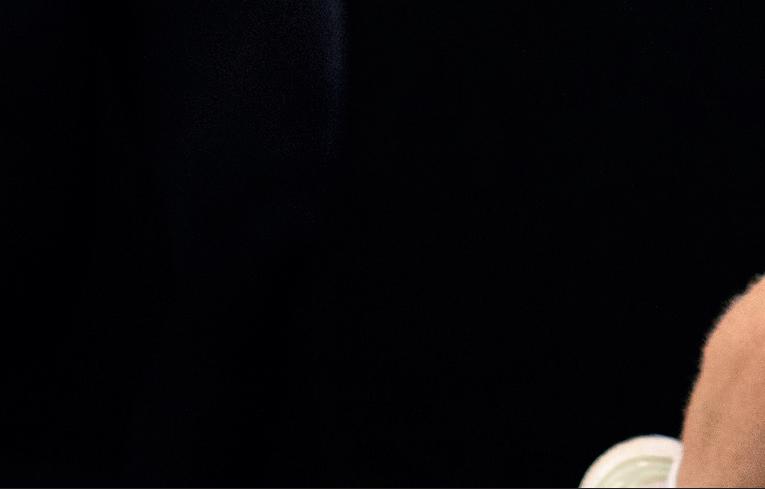







FIRST FOR FITNESS SOLUTIONS PHYSICALCOMPANY.CO.UK Physical Company, The Works, Wycombe Road, Stokenchurch, Buckinghamshire HP14 3RR 01494 769 222 - sales@physicalcompany.co.uk PHYSICAL SPECIALISES IN EVERYTHING TODAY’S FITNESS SPACES SHOULD BE BUILT AROUND, FROM FLOORING TO FUNCTIONAL EQUIPMENT, RIGS TO COMBAT, STRENGTH TRAINING TO STUDIO AND MIND-BODY.





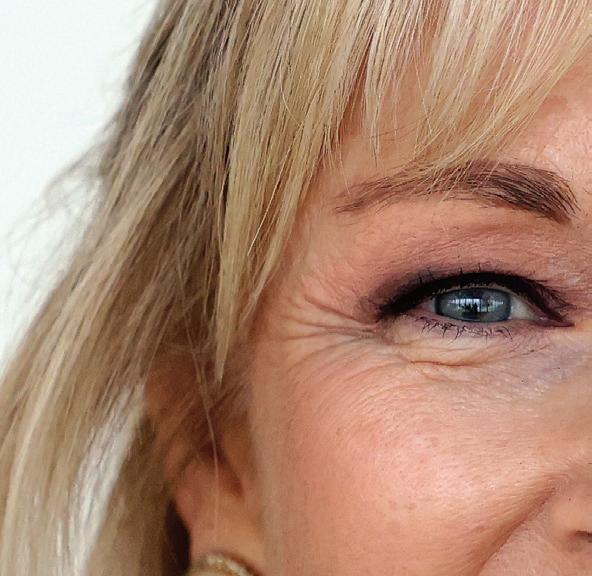
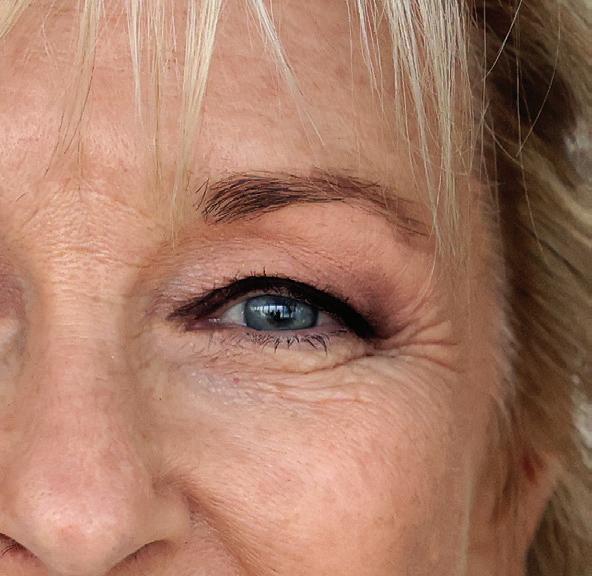


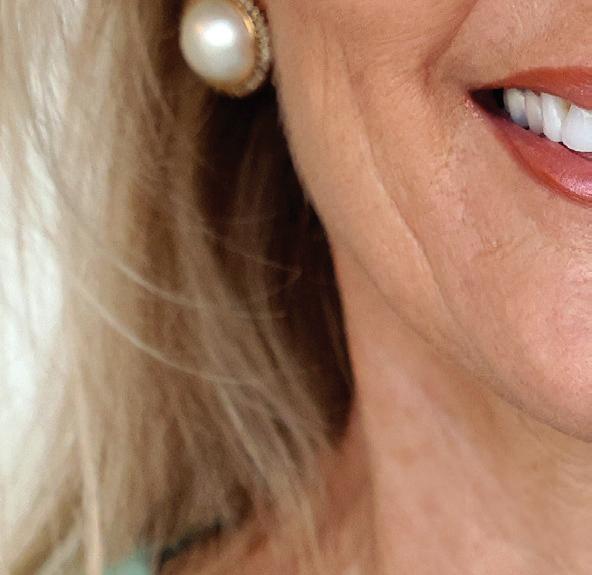
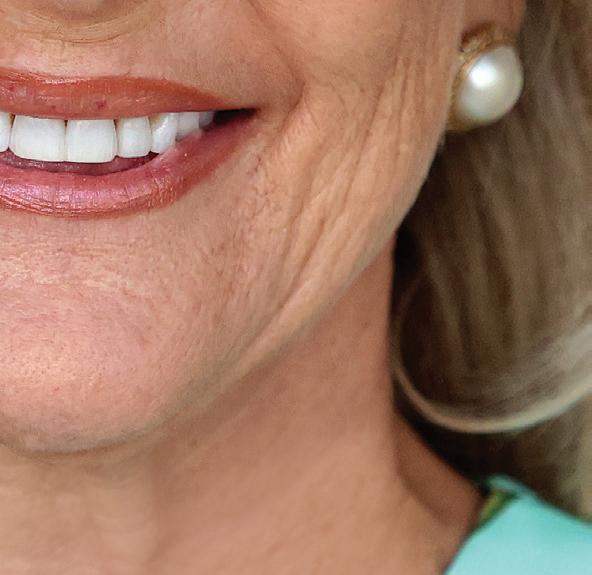
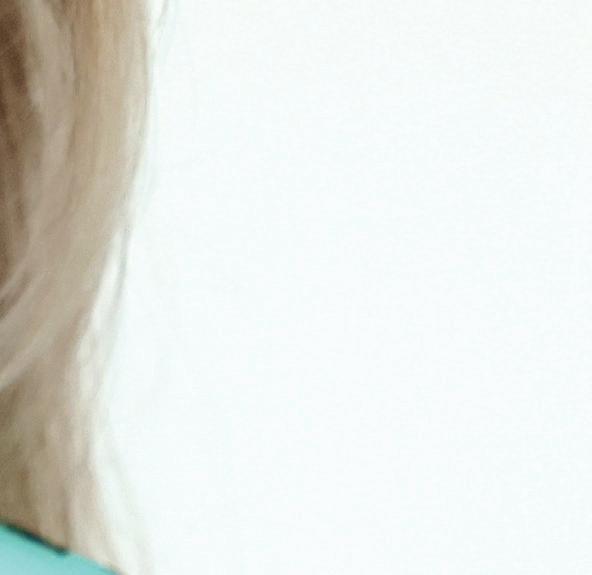





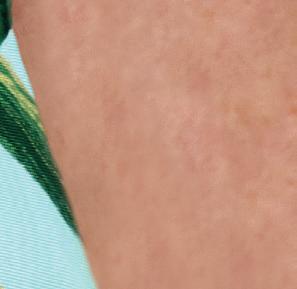










UNITING THE WORLD OF FITNESS GLOBAL MEDIA PARTNER ISSUE 11 2022 @ HCMmag HCMmag.com Bringing wellness to the world with GWS p72 Susie Ellis Moving boxing up the socio-economic curve p16 Manya Klempner Barrie Elvish Queensland’s health clubs get essential status p66 Dr Fiona Bull The WHO issues a challenge to the sector p34 SIGN UP FREE Women in fitness Time for change p44 ON THE COVER Ask the experts
PHOTO:
GWI/GWS
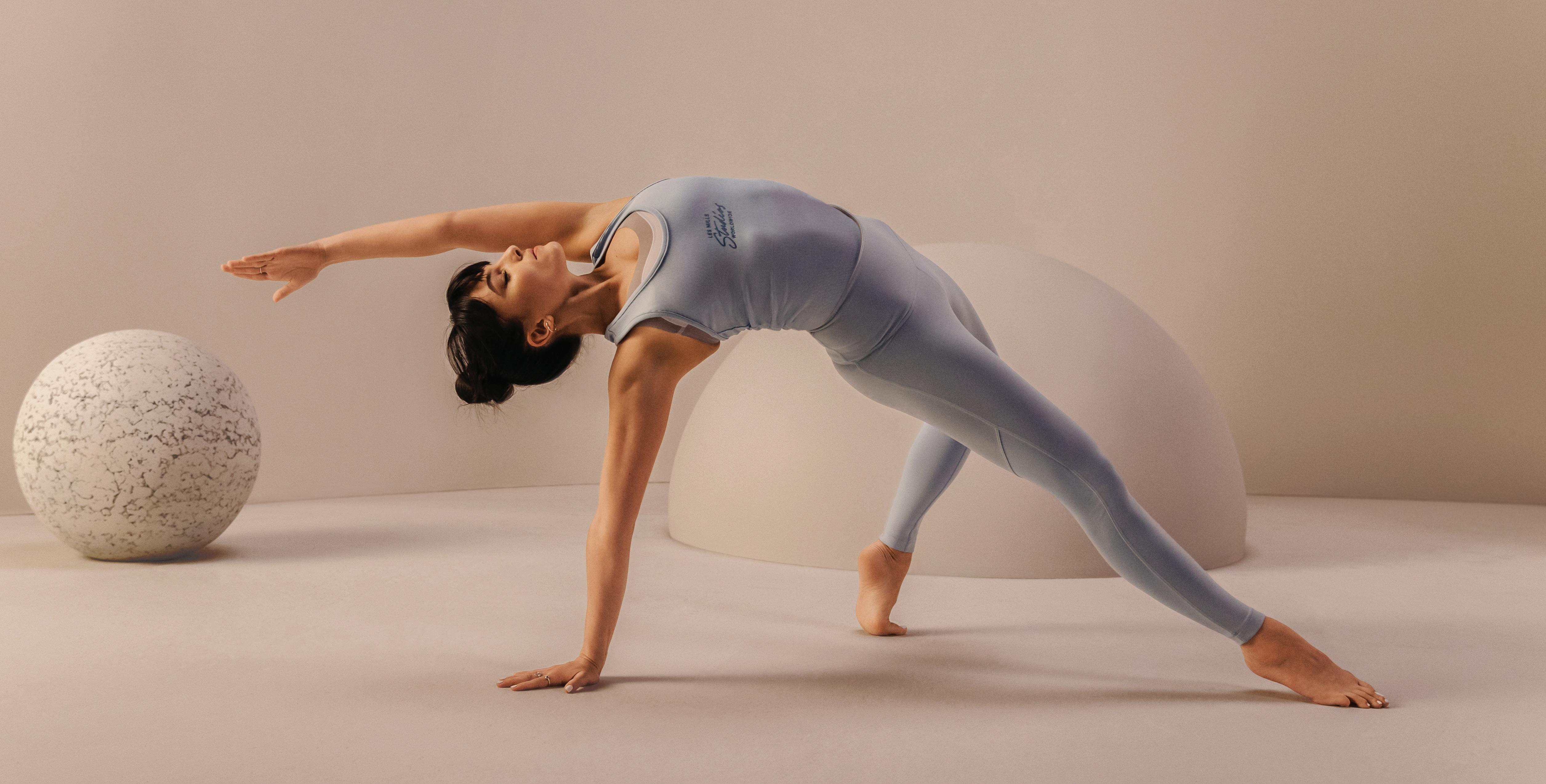
*Source: 2021 Global Fitness Report, Les Mills
REACH MEMBERS ANYWHERE, ANYTIME
Drive loyalty and growth with Omnifitness.
Members work harder and feel more connected in live classes, yet digital options are great at forming habits by supporting regular workout routines.

Findings show that 75% of virtual users also attend live classes and clubs are seeing a 12% average increase in live class attendance when running virtual workouts in vacant studios.
The more frequently your members connect with your club, the longer they’ll stay with you. Are you providing an Omnifitness solution to suit their needs?
lesmills.com/uk/ultimate
the Ultimate
Solution
Virtual. At Home
Discover
Group Fitness
Live.







THEY EARN THEIR MEPs, YOU EARN THEIR LOYALTY. Learn more at myzone.org or info@myzone.org SCAN TO LEARN MORE
Part of something bigger
It all started with a few fitness fanatics building gyms in the 1950s and now we find ourselves – 70 years later –increasingly part of the wider global wellness industry, which is emerging as the biggest movement on earth.
In this issue, we delve into this connection with reports and interviews to celebrate the vital role being played by the sector as wellness takes on ever more significance.
On page 34 HCM ’s editor-at-large, Kate Cracknell catches up with Dr Fiona Bull, the head of the World Health Organization’s (WHO) Physical Activity Unit.
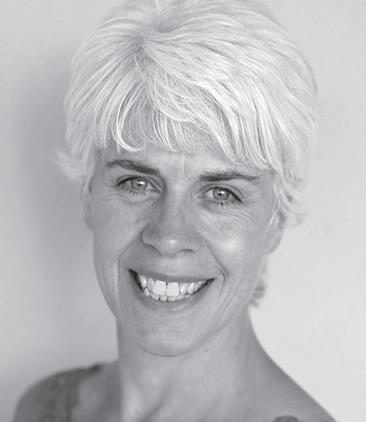

We first talked with Dr Bull in 2018, when WHO published its Global Action Plan on Physical Activity 2018–2030. Now the organisation has published a Global Status Report, with findings on progress to date
The WHO says that by 2030, US$300bn could be saved globally in healthcare costs if we can get people more active. This in turn would prevent the occurrence of 500m cases of non-communicable diseases and mental health conditions, improving quality of life and freeing up valuable resources.
A world free of preventable disease is a key goal of the Global Wellness Institute and on page 72 Jane Kitchen reports from the organisation’s recent Global Wellness Summit in Tel Aviv, which saw experts from around the world convening to talk about the wellness economy, review trends and hear new insight into policy research.
As the wellness infrastructure represented by these and many other organisations is steadily built out, it’s possible to see the emerging shape of the sector and how powerful collaborations will drive our future success.
On page 43, we flag up the World Active Forum –one of the first top-tier organisations to seek to unite all agencies working across the world representing the physical activity sector. The organisation will be transformed into a Federation at FIBO 2023 in Köln, becoming another valuable piece of the jigsaw.
One of the ultimate goals of the sector – to be acknowledged as essential – has been achieved by the state of Queensland in Australia and on page 66, Barrie Elvish gives us the background to the breakthrough, as
the sector works to emulate this success worldwide.
The gravitational pull that’s bringing all these wellness stands together is even impacting the public sector and this month in the UK, quango, Sport England, further reinforced this direction of travel with its new report, Future of Public Sector Leisure, (page 31) which advocates a pivot to wellbeing by services within the public activity sector.
Ultimately though, consumers are driving this trend and on page 52 we look at new data about Gen Z – soon to be the largest generation on earth – who are demanding that wellness is integrated into all aspects of their lives.
Liz Terry, editor lizterry@leisuremedia.com
7 ©Cybertrek 2022 Issue 11 2022 EDITOR’S LETTER
It’s possible to see the emerging shape of the sector, and how powerful collaborations will drive our future success
+44 (0)1462 431385 WWW.HCM mag .COM HCM@LEISUREMEDIA.COM WWW.LEISURESUBS.COM
The health and fitness sector is becoming an essential part of the rapidly emerging global wellness industry, while uniting to fight for representation and essential status
Health and fitness is becoming part of the wellness sector
PHOTO: GETTY IMAGES/UNSPLASH
CONTENTS
Uniting the world of fitness
07 Editor’s letter
It all started with a gym and now the sector is part of one of the biggest movements on earth
14 Write to reply
We hear from Ian Fytche on the power of active lifestyles, Mel Spooner who’s championing exercise for cancer recovery and Marc Jones who’s cautious about staffless gyms
16 HCM people
Mayner Klempner
The founder of The Boxing House on growth driven by EIS-eligible equity and moving boxing up the socio-economic curve
22 HCM people Gary Laybourne
HCM news
RSG under new management, Xponential heads to Japan, vintage brand Topnotch relaunches, F45 loses US court case and Sport England advocates pivot to wellbeing 34
Interview Dr Fiona Bull
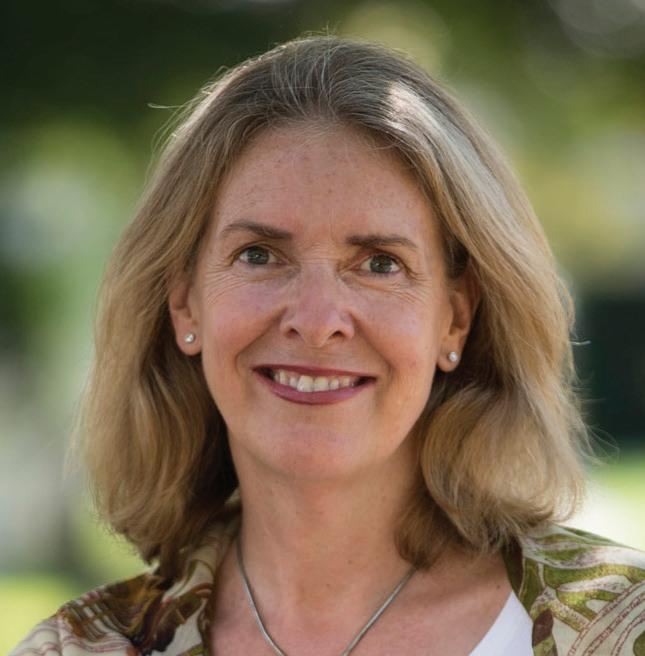
The head of the World Health Organization’s Physical Activity Unit talks to Kate Cracknell as part of HCM ’s partnership with Europe Active
43 World Active Forum
The newly-established forum will become a Federation at FIBO 2023 in Köln
44 Ask the experts
Women in fitness
Much of the industry continues to fail when it comes to elevating women. Kath Hudson asks what can and should be done
52 Regenerate
Gen Z’s attitude to fitness is changing the game when it comes to engagement with exercise, as Miranda Markham reports

60 Digital futures
UK Active’s Digital Futures initiative is reaping significant rewards for operators
8 Issue 11 2022 ©Cybertrek 2022 issue 11 2022 N o 308
HCMmag.com
The founder and CEO of Coach Core wants to join forces with operators to mentor kids from challenged backgrounds 26
34 Dr Fiona Bull on driving change at the WHO
photo: shutterstock/Drazen z igic
ealth
rganization
photo:
Worl D h
o
66 Queensland
Gyms and health clubs in Queensland now have essential status. Barrie Elvish gives HCM the background. Plus, we look at how the state is embracing wellness with its Health and Wellbeing Queensland organisation




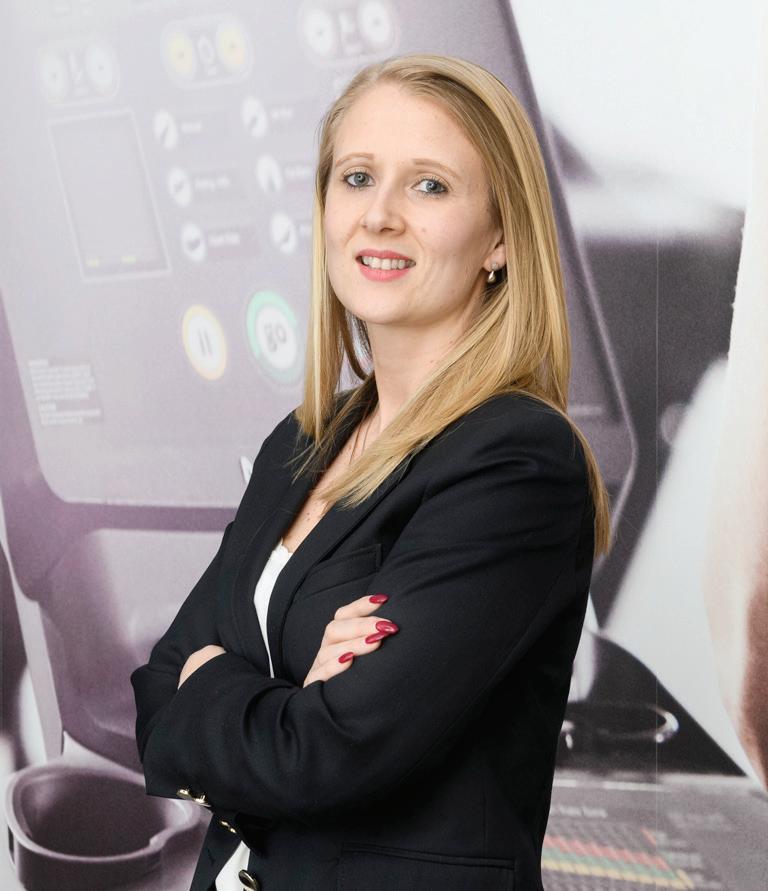


9 ©Cybertrek 2022 Issue 11 2022
Solution
The right software can transform both health club operations and the customer journey, as Steph Eaves discovers 96 Product innovation New launches this month from Eleiko, Rowcave, Aktiv and Innerva 99 HCM directory Part of HCM ’s network of specifier resources, which includes www.HCMmag.com/CompanyProfiles 100
joints A new policy recommends exercise to ease the pain of some forms of arthritis
72 The future of wellness explored at the GWS
72 A well future CEO of the Global Wellness Institute, Susie Ellis, led the recent Global Wellness Summit in Tel Aviv. Jane Kitchen was there for HCM 86 Adding value Rigs are a familiar element on the gym floor. Frances Marcellin asks how their use can be optimised 92
finders
Research Easing the
44 Rebecca Passmore
72 Susie Ellis
Klempner 66 Jamie Oliver – supporting food literacy in Queensland
16 Mayner
PHOTO:
ALEXANDER MAGNUM/SHUTTERSTOCK
PHOTO: SHUTTERSTOCK/MR PICS
PHOTO: JAMES MCCAULEY / PURE GYM
PHOTO: THE BOXING HOUSE GYMS
PHOTO: SHAULI LENDNER / STUDIO-ART
www.HCMmag.com


MEET THE TEAM



Print
HCM magazine is available in print from www.leisuresubs.com

HCM digital

Read free online and enjoy extra links and searchability www.HCMmag.com/digital
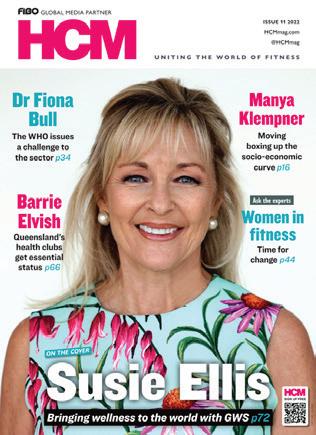

HCM PDF
A PDF edition is available to read offline at: www.HCMmag.com/pdf
Other resources from
Fit Tech magazine www.fittechglobal.com www.fittechglobal.com/archive HCM Handbook www.HCMhandbook.com www.HCMhandbook.com/pdf
HCM Online library www.HCMmag.com/archive HCM Ezine & Instant Alerts www.leisuremedia.com/subscribe
Leisure Opportunites jobs & news www.leisureopportunities.co.uk
Buyer Search Engine www.fitness-kit.net

©Cybertrek Ltd 2022 ISSN 1361-3510 (print) / 2397-2351 (online)
To subscribe to HCM (Health Club Management): log on to www.leisuresubs.com , email subs@leisuremedia.com or call +44 (0)1462 471930. Annual subscription rates are UK £45, Europe £57, rest of world £80, students (UK) £22. Style: HCM follows an editorial house style which precludes the use of marketing devices in body text and headlines, eg: CamelCase, capitalised or part capitalised names and registered trademarks. Contact the editor for more details – lizterry@leisuremedia.com.
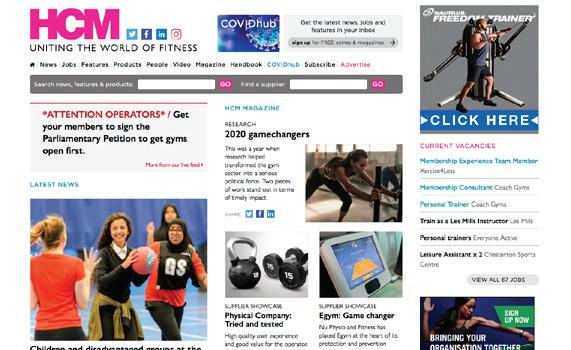
Copyright details: HCM (Health Club Management) is published 12 times a year by Leisure Media, PO Box 424, Hitchin, SG5 9GF, UK. The views expressed in this publication are those of the authors and do not necessarily represent those of the publisher. All rights reserved. No part of this publication may be reproduced, stored in a retrieval system or transmitted in any form or by means, electronic, mechanical, photocopying, recorded or otherwise, without the prior permission of the copyright holder, Cybertrek Ltd 2022. Print and distribution Printed by The Manson Group Ltd. Distributed by Royal Mail Group Ltd and Whistl Ltd in the UK and Total Mail Ltd globally.

10 Issue 11 2022 ©Cybertrek 2022 Publisher Jan Williams +44 (0)1462 471909 Editor-at-large Magali Robathan +44 (0)1462 431385 Editor Liz Terry +44 (0)1462 431385 Assistant editor Megan Whitby +44 (0)1462 471906 Managing editor Frances Marcellin +44 (0)1462 471934 Head of news Tom Walker +44 (0)1462 431385 Email us: Customer service +44 (0)1462 471901 Advertising +44 (0)1462 431385 Subscriptions +44 (0)1462 471910 Circulation +44 (0)1462 471932 Finance +44 (0)1462 471930 Credit control +44 (0)1462 733477 theteam@leisuremedia.com
Choose
how you read
PUBLIC AFFAIRS MEDIA PARTNER
GLOBAL MEDIA PARTNER MEDIA PARTNER
Issue 11 2022 Volume 28 Number 308




















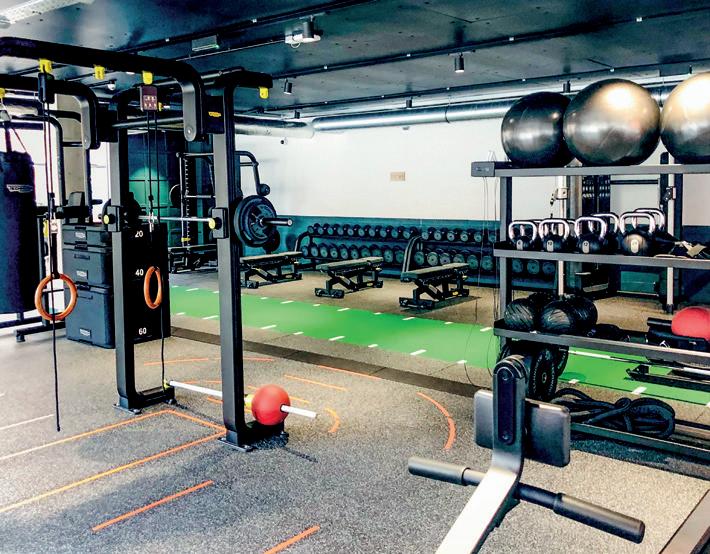




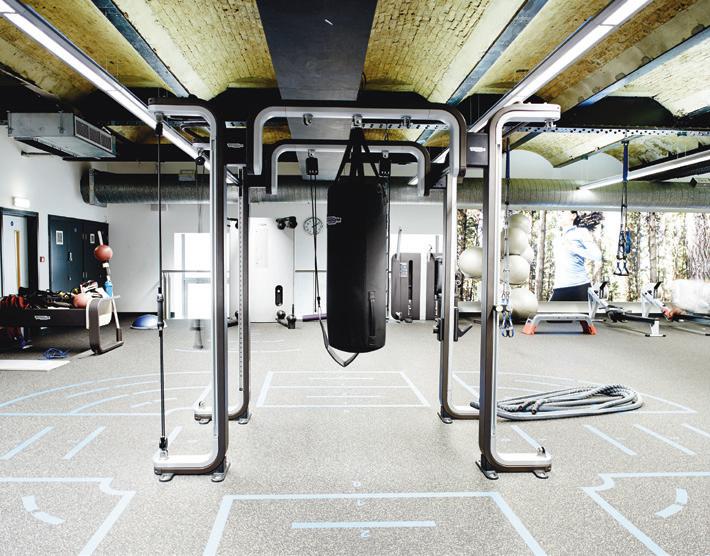
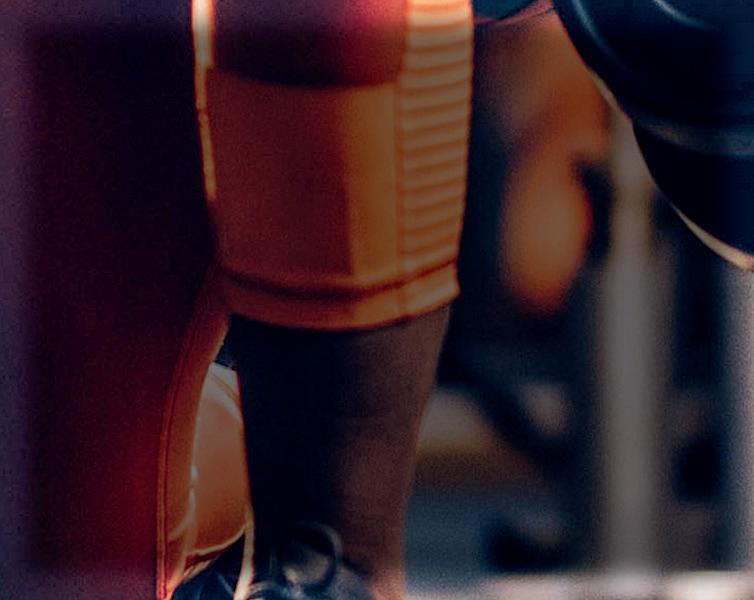


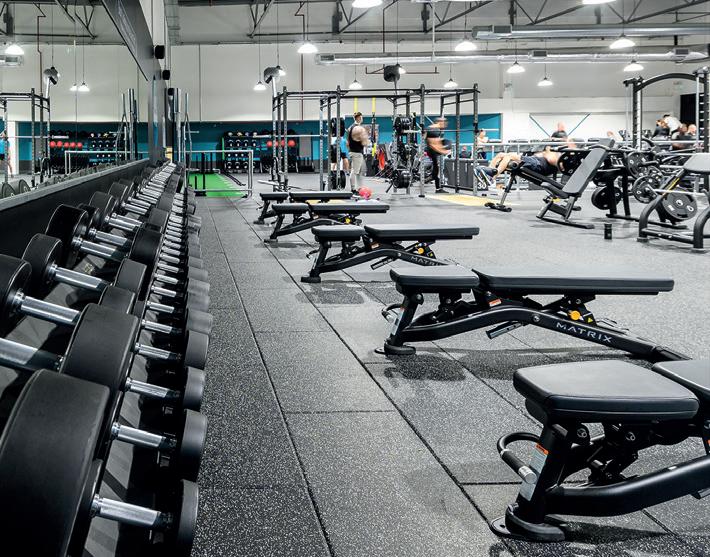
Contact us now: T: +44 (0) 1706 260 220 E: Sales@TVS-Group.co.uk www.TVS-Group.co.uk Suppliers of flooring solutions to suit any sporting and fitness space, including:
rubber tiles for free weight areas.
rolls for functional fitness zones and studios.
sled tracks.
surfaces for indoor and outdoor sports.
turfs and shock absorbing underlays.
solutions to control noise, vibration and reverberation.
® Gym Flooring
Impact-resistant
Rubber
Customised
Synthetic
Artificial
Acoustic
SPORTEC



























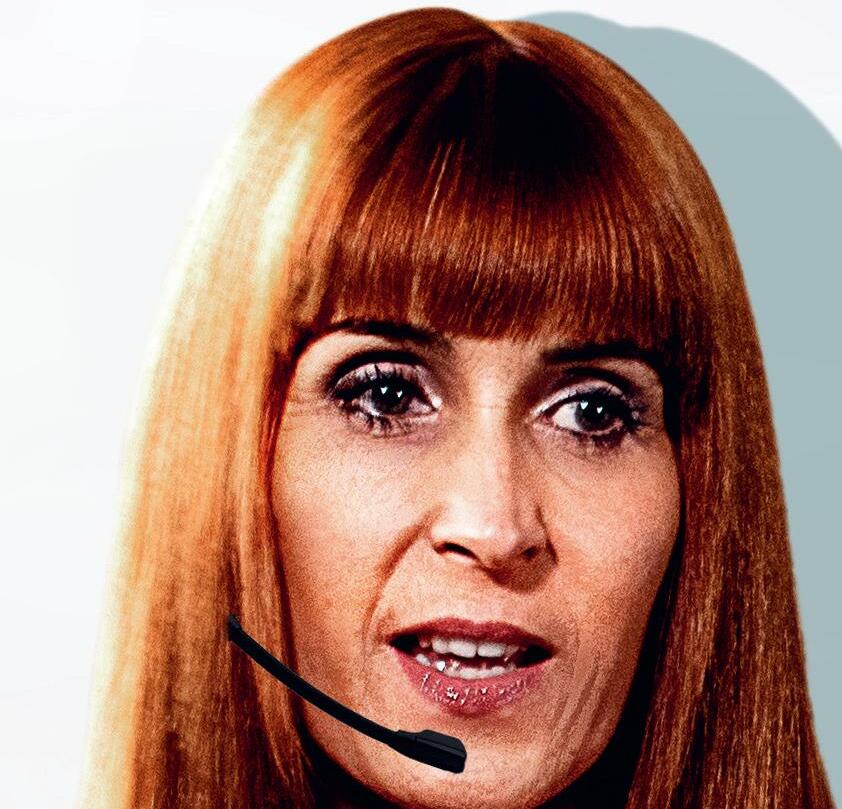


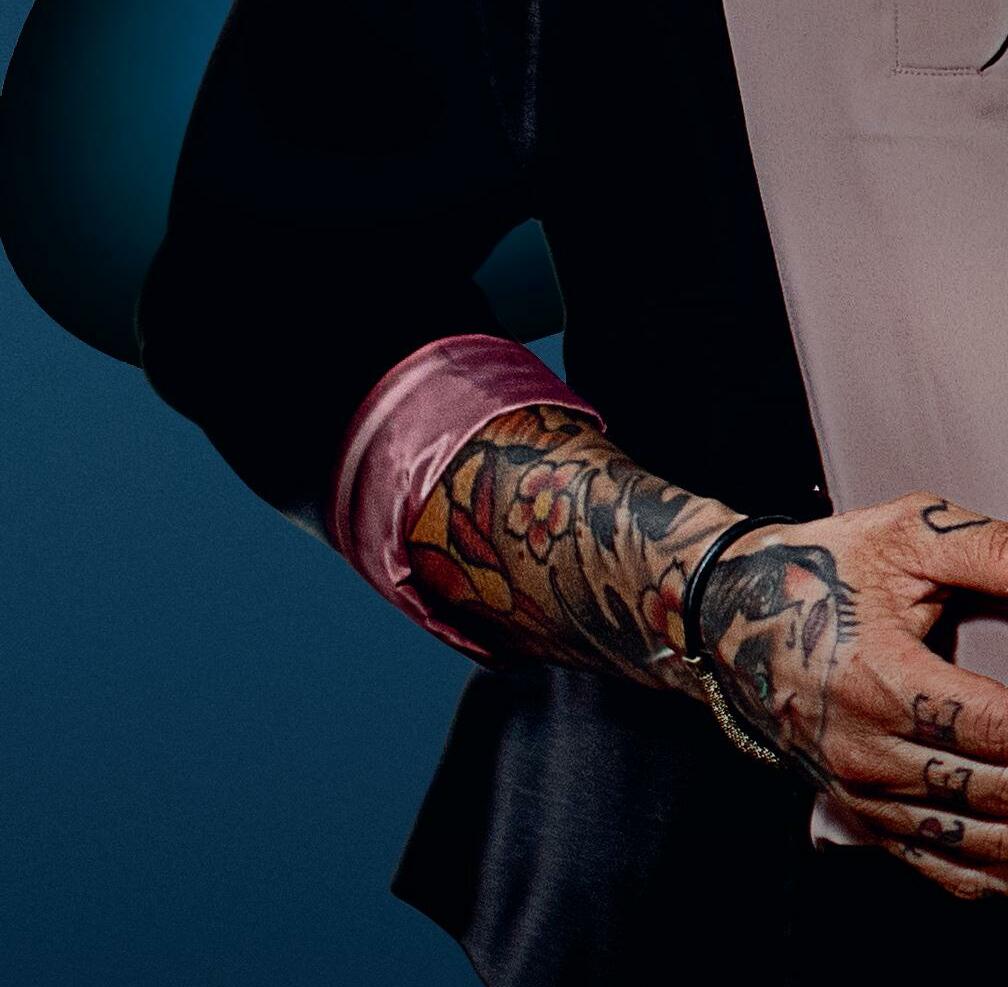


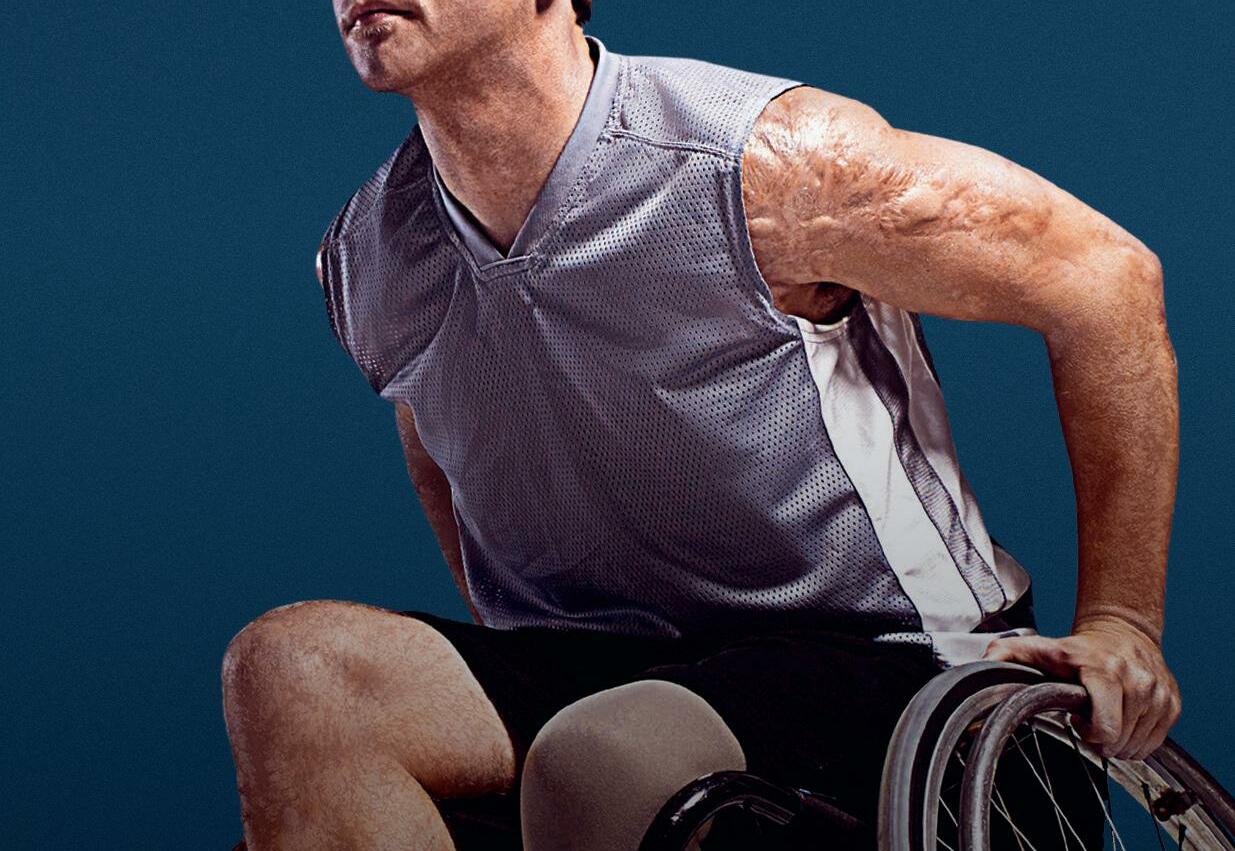


13 – 16 APR 23 Exhibition
For a strong and
Exhibition Centre Cologne









GLOBAL FITNESS healthy society.
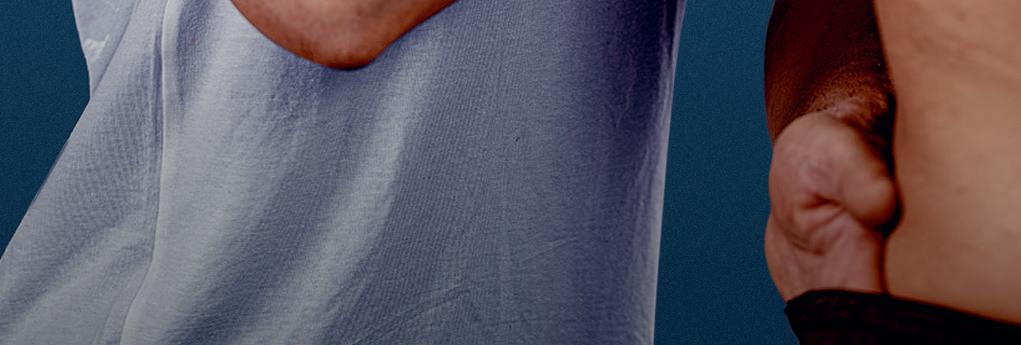
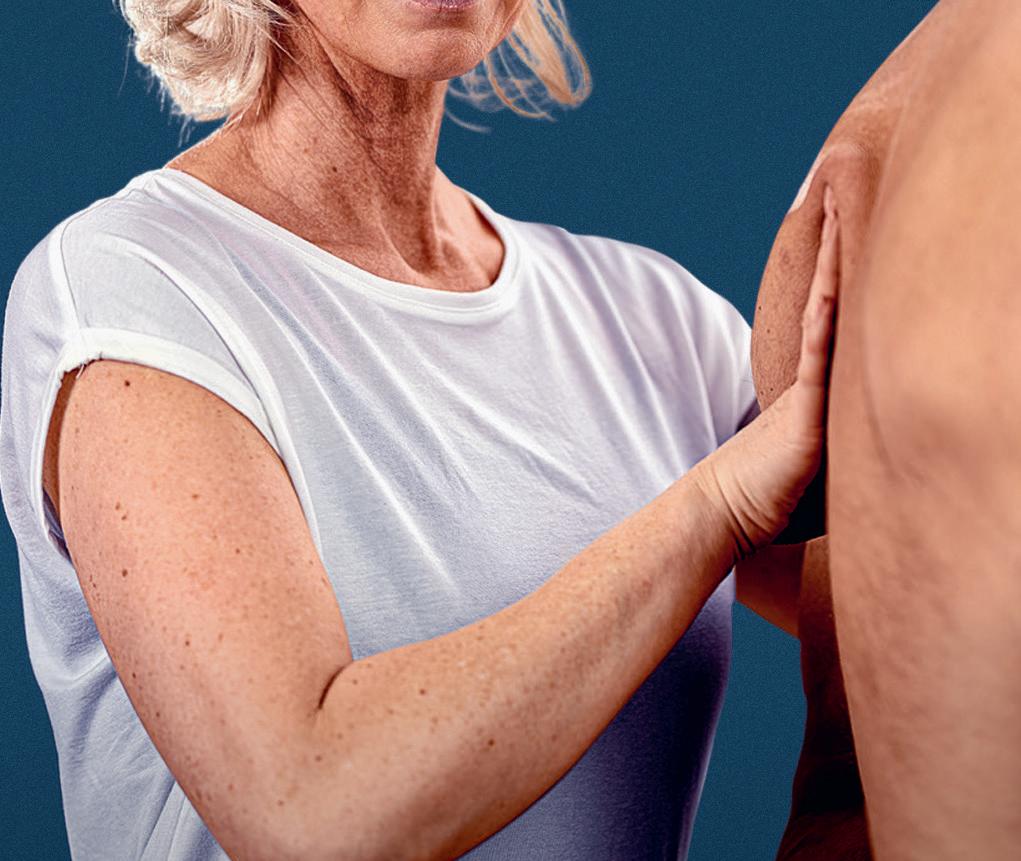


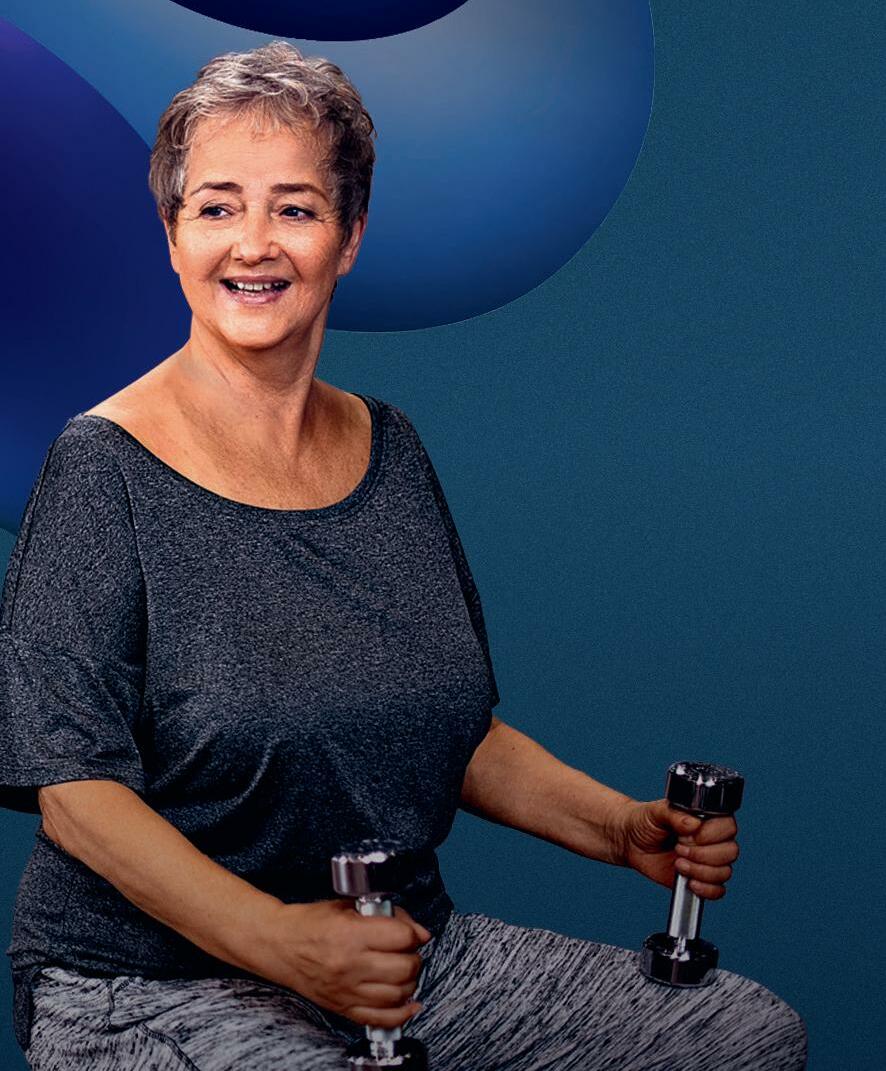


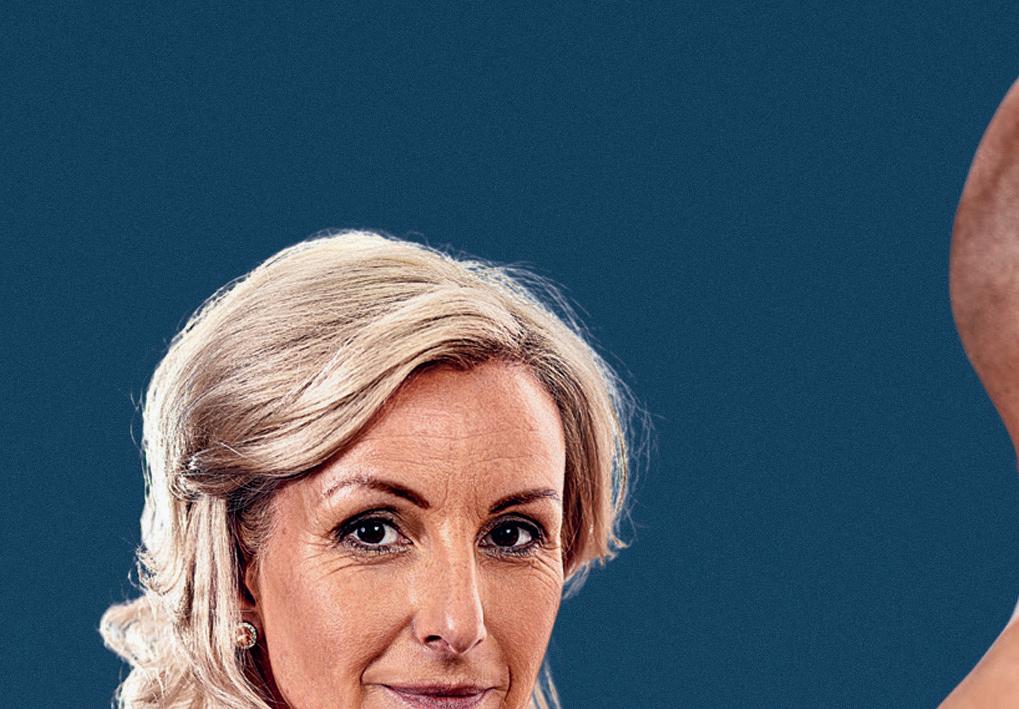






















fibo.com
Write to reply
Fuel the debate about issues across the industry and share your best practice. We’d love to hear from you – letters@leisuremedia.com
Exercise for cancer recovery changes outcomes
Mel Spooner,
CAWS
Cancer is close to home for all of us and we’ve been proud to partner with the Battle Cancer Charity – with the support of Nike – to challenge the global fitness and medical industry’s view of exercise post-cancer while removing the stigma that can be associated with post-cancer exercise capabilities.

eighty-six per cent of those who are successfully treated for cancer experience debilitating levels of fatigue afterwards and at the three-year stage, a third of people are still struggling with the same physical limitations and issues.
the most proven way to counteract this is through
structured physical activity and graded exercise and with the help of facilities and coaches across the world, we’re determined to provide access to this kind of support.
the Battle Cancer Programme level 1 Certification is now available, with proceeds from the sale of every course being split directly with Battle Cancer to its support ongoing fundraising.
CAWs insists on providing essential training and education that’s affordable and the costeffective certification focuses on supporting people after their treatment and teaches coaches and personal trainers how to deliver a new group training programme, providing late-stage rehabilitation for those who’ve experienced cancer.

14 Issue 11 2022 ©Cybertrek 2022 letters
We’re determined to provide access to training to enable the delivery of physical activity following cancer treatment
Mel Spooner
Scott Britton, co-founder of Battle Cancer with Dr Col Robertson CAWS
photo: CAWS
photo: CAWS
Physical activity is at the heart of any definition of a flourishing community. Active lifestyles promote health and wellbeing and the network of facilities offering opportunities to be active creates community cohesion, social capital and economic development.

At North Kesteven we have a progressive strategy for physical activity and have invested significantly in facilities in Sleaford and at One NK in North Hykeham to reimagine and transform them into spaces for health, wellbeing and activity. We’ve also created long-distance routes across our district for walking and cycling.
We’re working with Integrated care system partners to tackle health inequalities and the social determinants of public health through investment in active lifestyles, housing options, and economic inclusion, with plans due to be launched in early 2023. We’re also advancing plans to decarbonise our leisure estate in pursuit of a

sustainable net zero future and are working with partners to restore nature and promote biodiversity.
It’s a challenging time, but the future is active and the opportunity for positive generational change is one collectively we must grasp, globally, regionally and locally. Taking a lead from Sport England’s excellent strategy, Uniting the Movement, my hope is we can build local leadership and capacity to enable all our communities to flourish.
Marc Jones, Fitronics

I read with interest your debate about staffless gyms in HCM recently (HCM issue 9 2022 www.hcmmag.com/staffless).
The industry is increasingly looking to this model due to the higher margins, however, we know from our research that 87 per cent of members want to be engaged with a member of the fitness staff and that having friendly staff increases the value customers place on their membership 2.2 times.
Operators running successful staffless facilities have invested in digital solutions to support the customer journey, get feedback and motivate customers. Simply cutting staff without such an investment is a risk.
Losing customers and having to replace them is an expensive, game and the most effective retention solutions allow operators to deliver an experience that turns members into loyal fans, regardless of the number of staff present.
15 ©Cybertrek 2022 Issue 11 2022
Tread warily when going staffless
We must create generational change and an active future
Having friendly staff increases the value customers place on their health club membership 2.2 times
Ian Fytche
Ian Fytche, CEO North Kesteven
We need active lifestyles to flourish
getty Images/ a zIj o s3 2 y b m /unsplash photo: n orth
Marc Jones
photo:
Kesteven
photo: FI tron IC s
HCM people
Manya Klempner
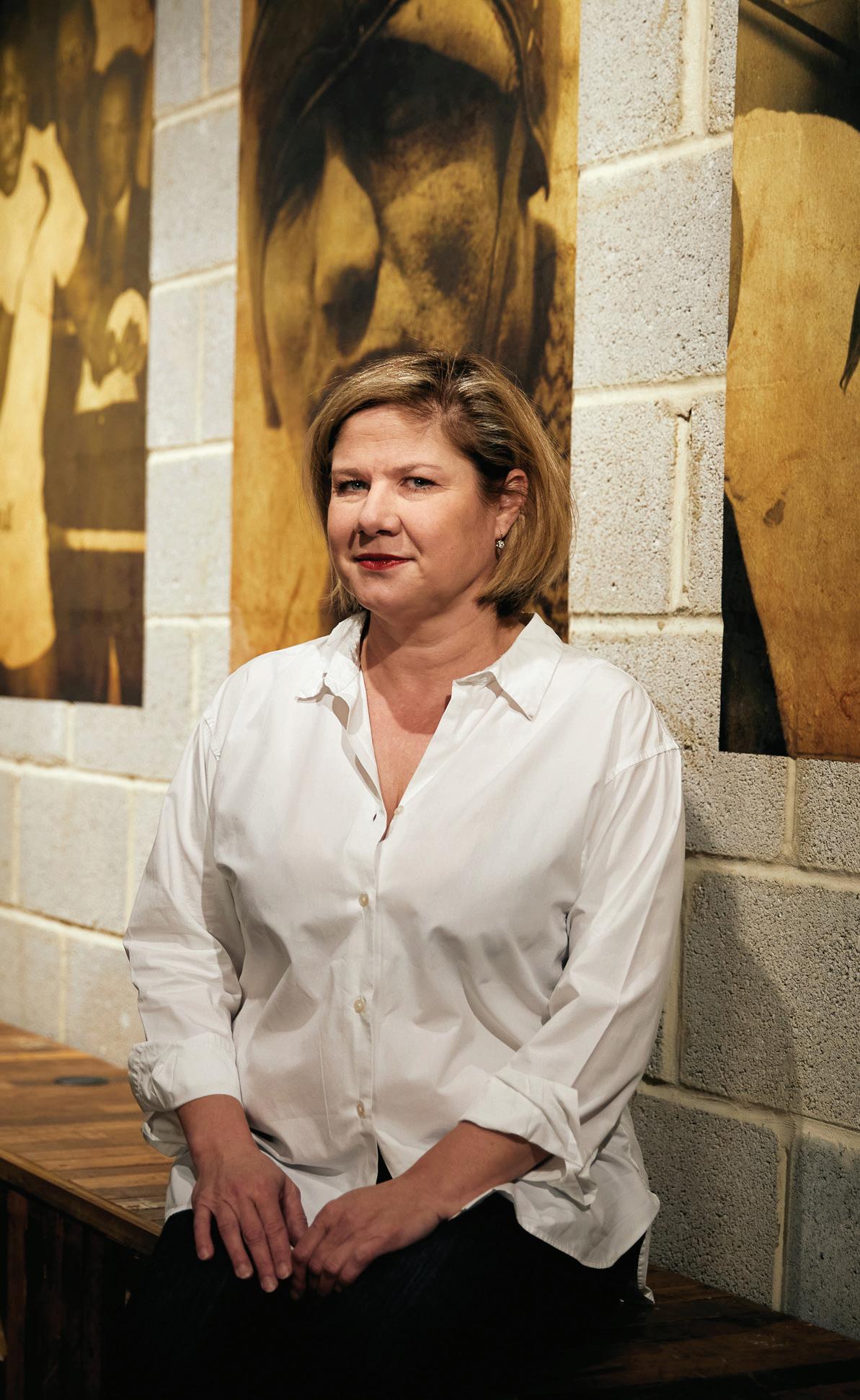
The Boxing House Gyms
Klempner took up boxing after her first child was born and fell in love with the sport
What’s the elevator pitch?
The Boxing House Gyms are authentic (yet unintimidating) boxing gyms with proper boxing coaches, but with all the customer service a client would expect. Coaching, facilities, service, ambiance – we’ve got it all.
What inspired you to launch boxing gyms?
After giving birth to my son, I hired a p T to help me lose some baby weight. He happened to be a boxing coach and it changed my life.
What happened?
I was immediately attracted to the progression involved with learning a sport. I also revelled in the sense of empowerment. He showed me the proper technique, corrected it and then I practiced. At each turn, he encouraged me with, “hit me harder.” It was awesome. likewise, I was attracted to the lifestyle nature of the sport. It wasn’t just exercise; there was an entire living and breathing industry. I really liked that aspect!
I did my p T sessions in the park but yearned to practice my new sport in a proper boxing gym. That was no easy ask. The city was filled with boxercise studios, but I wanted the real deal. This could be found at amateur clubs dotted around the city outskirts, but they were inconveniently located and intimidating. Ultimately, I identified a gap in the market. Boxing had moved up the socioeconomic curve, but the infrastructure hadn’t kept up. That’s the gap I filled with The Boxing House gyms in london: Rathbone Boxing Club, Camden Boxing Club, Bermondsey Boxing Club and soon a fourth on the way at Gloucester Road tube station.
HCM people
Boxing had moved up the socioeconomic curve, but the infrastructure hadn’t kept up
16 Issue 11 2022 ©Cybertrek 2022 PHOTO: T H e B O xing H O use g yms
We offer proper, authentic boxing training, ie, we teach boxing as a sport, but we also understand what our clients require. We provide excellent customer service, all the amenities, plus a booking platform that accepts credit cards. A win: win.
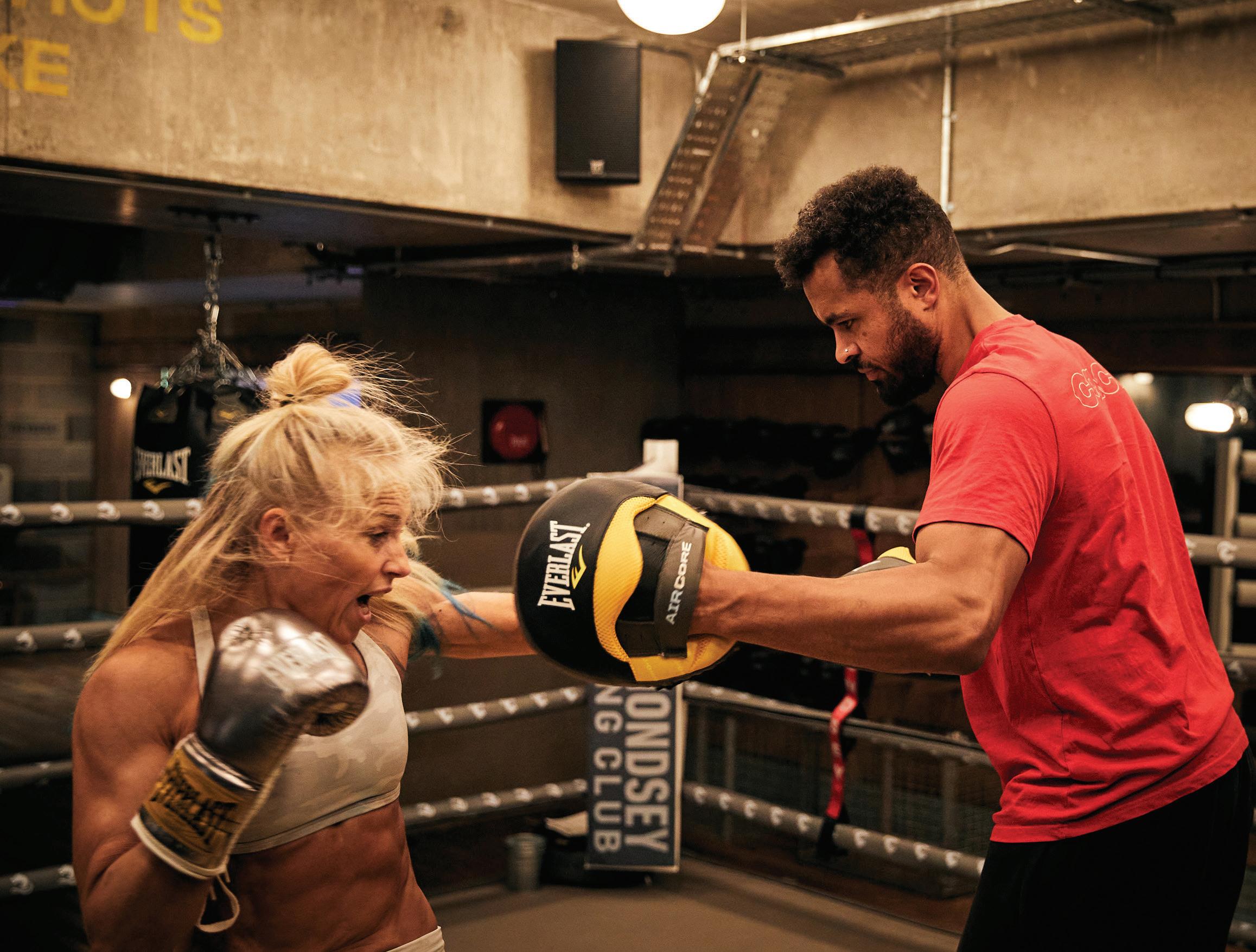
How are you funded?
We raise funds by selling EIS-eligible equity (Enterprise Investment Scheme). We’re currently fundraising if anyone’s interested in joining our investor family.
Funds are raised in the holding company, so all investors – new or seasoned – participate in the performance of existing and future gyms.
What’s the ownership structure of the company?
The Boxing House is the holding company and each of the gyms is a subsidiary.

How did you deploy your background in finance at Merrill Lynch, JP Morgan and Citigroup?
This business is less about the actual finance and more about the skill set required to succeed at a top bank. One must always prioritise the client.
17 ©Cybertrek 2022 Issue 11 2022
The company is actively looking at international expansion opportunities
The gym at Bermondsey Boxing Club
Boxing is incredibly cerebral, there’s literally no space left to think of anything but the here and now. It’s cathartic
PHOTO: T H e B O xing H O use g yms
T H e B
PHOTO:
O
xing H O use g yms
Work ethic is non-negotiable and confidence when it comes to cold-calling makes a huge difference.
At every point in my career, whether it be as a bank employee or as an entrepreneur, I’ve always believed in those qualities. That belief has served me well over the years and it continues to do so now.
What makes boxing so compelling?
Boxing is unique in its intensity; it literally requires your entire body and entire mind to be fully active. As a result, you enjoy a whole body workout physically, coupled with endorphin levels that are through the roof.

The beauty is that you also benefit from the mind being completely engaged for the duration of the session. Boxing is incredibly cerebral. Not only is there technique involved with the punches, but once defensive moves, strategic tactics and the rest come into play, there’s literally no space left to think of anything but the here and now.
That’s satisfying in the moment, but even more importantly, it’s cathartic. Too many of us struggle to ‘check out’ of our busy personal and professional lives. Boxing requires us to do so. That’s therapeutic – plus no one has ever regretted a workout or a few endorphins!
What’s your target demographic?
We welcome everybody: beginners, seasoned and recreational boxers, amateur boxers, professional boxers. Men and women. All ages, starting from five years old. Our sweet spot, however, tends to be among adults aged 30 – 45 and the split is 40 per cent women and 60 per cent men.
Ultimately, we’re not about being the cool place to be. We’re about doing a great job with excellent customer service. That sweet spot – usually adults who have busy personal and professional lives with disposable income yet who are time-poor – fits nicely with our offering.
We’re all about quality. Our clientele appreciates quality and they return over and over again, becoming annuities for us. That said, everyone is very welcome and everyone is invited to train with us.
What customer volumes do you achieve?
We’re primarily pay-as-you-go (PAYG), so we don’t really count members, however, we have 6,997 registered customers.
And the pricing?
PAYG credits are offered at £22 for a single credit, with quantity discounts available for larger bundles. Memberships are also available for frequent visitors. All first-time customers are invited to take advantage of the intro offer for £30 – two credits plus one buddy credit.
What programmes do you offer?
The club offers group classes, one-to-one personal training sessions and sparring workshops. Self-train clients are also welcome. There are a variety of group classes on offer, ranging from Intro to Boxing to Box! Box! Box! and Fighting Fit. All group classes incorporate technique, defense and tactics. Some classes include more strength and conditioning
HCM people 18 Issue 11 2022 ©Cybertrek 2022
The Boxing House offers full-scale facilities
Being agile and opportunistic is a lot more important than having a tremendously wellconceived future plan
than others. A newbie and a seasoned boxer would feel equally as comfortable at any of the classes which are adapted to individual skill levels.
What physiological effects do you help people achieve?
That’s a huge question. The physical benefits of exercise, especially along the lines of the full body workout that boxing offers, are well known. There are heaps of data available. What makes boxing unique is that it isn’t just a workout; it’s a sport. People become obsessed with it in a completely different way.
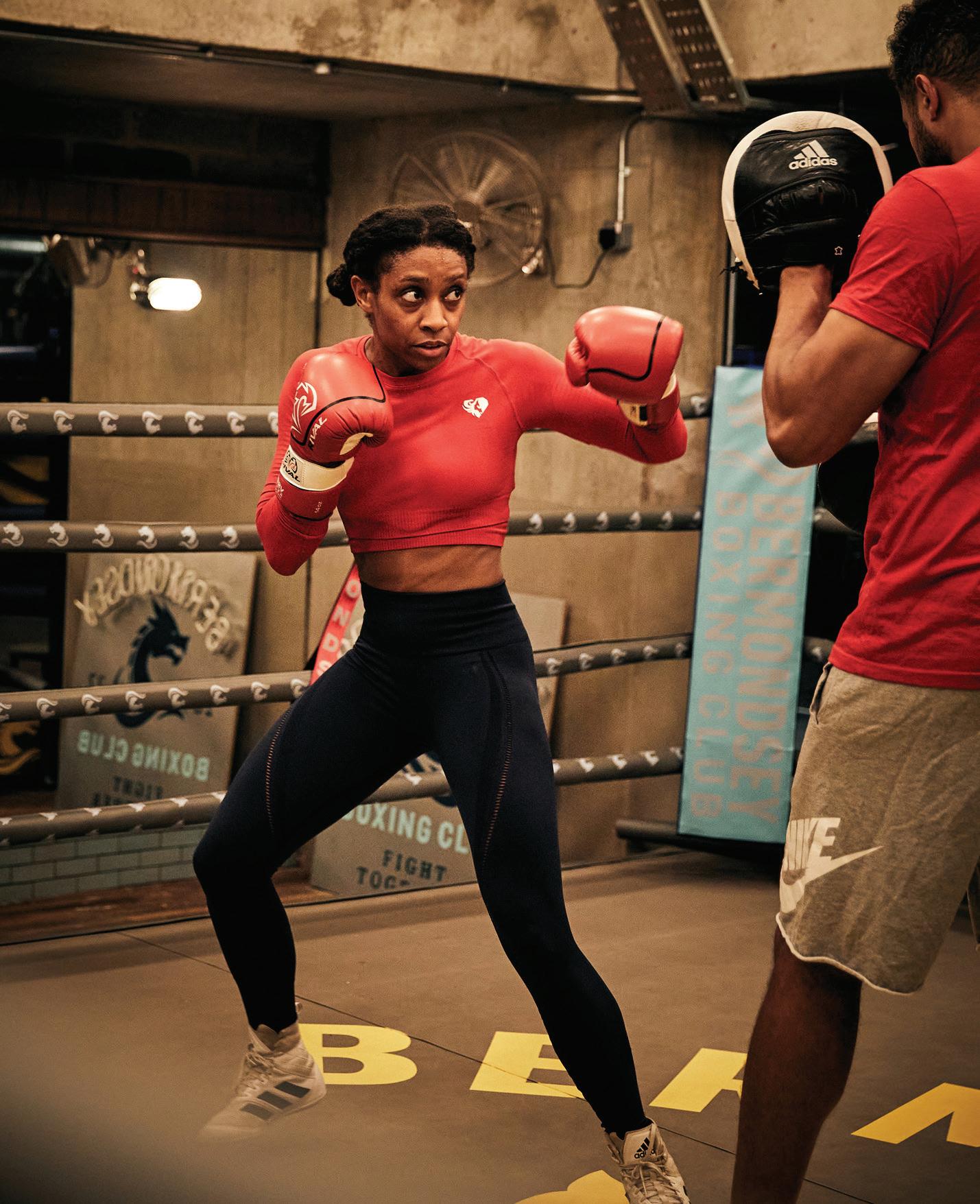
Sport is about developing skills, achieving more, performing better, teamwork, building a community and so on. That’s what we offer. We offer a sport that is ultimately a lifestyle, a healthy lifestyle, through which clients get fitter, improve their mental health, make friends, have a laugh – and revel in the sense of accomplishment and progression. No need to trek out to a golf course for a day. No need to purchase expensive equipment or pay hefty annual dues.
Who develops your workout content?
We have some class templates developed with Adam Booth, who was our executive director of boxing

19 ©Cybertrek 2022 Issue 11 2022
Boxing is incredibly cerebral says Klempner
T H e B O xing H O use g yms
T H e B O xing H O use g yms
PHOTO:
PHOTO:
programming, for our first three years. We encourage newer coaches coming up the curve to rely on these templates, while still adding their own expertise and flair to the class. More seasoned coaches are encouraged to run classes as they see fit. If it ain’t broke, why fix it?
Tell us about the team
We currently have 15 members of staff on PAYE contracts plus 11 freelancers. We believe in making team members part of the team properly. They must be exclusive to us, but we pay them a fair salary and provide all the benefits.
The freelancers are self-contractors by choice. They don’t work with any of our competitors. Some are students; some are actors; some are models; some have other obligations. Coaches tend to be aligned with a particular gym to build up familiarity and rapport. Some coaches float in between gyms based on client demand.
How has your company fared since the start of the pandemic?

We’ve gone from strength to strength. Indeed, when lockdown started and it seemed the world was coming to an end, that’s exactly when our clients started raising their hands to invest.
Their belief in us gave us confidence and that confidence spurred us to double down and make
lemonade out of lemons. During the pandemic, we actually locked in two more leases (Camden and Bermondsey) even though our Rathbone location had only been trading for eight months.
What have you learned since you launched the business?
That being agile and opportunistic is a lot more important than having a tremendously well-conceived future plan.
Growth plans are important. Planning for that growth is as important, however, being able to adapt to ever-changing circumstances and, furthermore, spotting opportunities, is even more important.
What plans do you have going forward?
We’d like to build out our London sites and then selectively stretch to key areas in the UK, all while exploring potential key cities internationally. NonUK-based clients – many of whom are investors – have been hankering for a presence in their hometowns, so we’re exploring global opportunities. We don’t have a concept. Boxing is an age-old sport. All we’ve done is improve the facilities and the manner in which coaching is delivered. We’ve not recreated the wheel. We’re just doing it better than anyone else. Can it be copied? Sure. Execution is the Achilles heel though. Seems easy, right? It’s not. Delivering a consistently excellent customer experience day in and day out is incredibly difficult. Our commitment to such excellence is what separates us from the rest.
Will you franchise?
Ultimately yes. For those clubs that we can control locally or semi-locally, we’ll retain full ownership. For clubs that launch abroad, we’ll need to have a trusted local partner who’s dedicated to our ethos.
Is there anything else you’d like to share?
A big shout out to Box 9 Design, BB Contracts, and Stuart Consultancy! We have the best team who do us proud with every project. Also, huge thanks to Everlast for sponsoring Bermondsey Boxing Club. l Classic

HCM people
When lockdown started and it seemed the world was coming to an end, that’s exactly when our clients started raising their hands to invest
PHOTO: s H u TT ers TO ck / r aw P ixel.c O m
boxing brand, Everlast, sponsors Bermondsey Boxing Club



21 ©Cybertrek 2022 Issue 11 2022
The company is fundraising to build more sites
Klempner started her career at Merrill Lynch, JP Morgan and Citigroup before moving into the fitness industry
The Boxing House look is industrial luxe
g
PHOTO: T H e B O xing H O
use
yms
PHOTO: T H e B O xing H O use g yms
PHOTO: T H e B O xing H O use g yms
The vision was to get kids from rough estates into our workforce
Gary Laybourne
Core: CEO
What is Coach Core?

We’re a charity offering apprenticeships to young people, aged from 16 to 24, who are not in education or employment, have faced barriers in their life, or have had some difficulties in their past, either with their home life or school or maybe trouble with the law. What makes us different from other organisations working with this cohort is that we work with individuals on long-term programmes for a minimum of 15 months, rather than the more common light-touch sports programmes.
These young people are at the heart of what we do. We have a network of co-invested employers who share resources, experiences and solutions. lifetime Training provides the apprenticeship education alongside our in-house modules/C pD. Reflective of our learners and our industry, we don’t employ a traditional college-apprenticeship model, we shape every programme around the needs of each apprentice. There’s a huge emphasis on personal support and mentoring, with our apprentices spending time with their tutors, even when they’re in the workplace.
As well as turning out well-rounded and resilient individuals, with the skills to take up employment in the sector, we seek to create a positive ripple effect in those communities which have the lowest social mobility, low activity levels and high crime rates.

one in three of our apprentices lives in the UK’s top 20 most deprived areas. one in five have a learning or physical disability and 36 per cent don’t
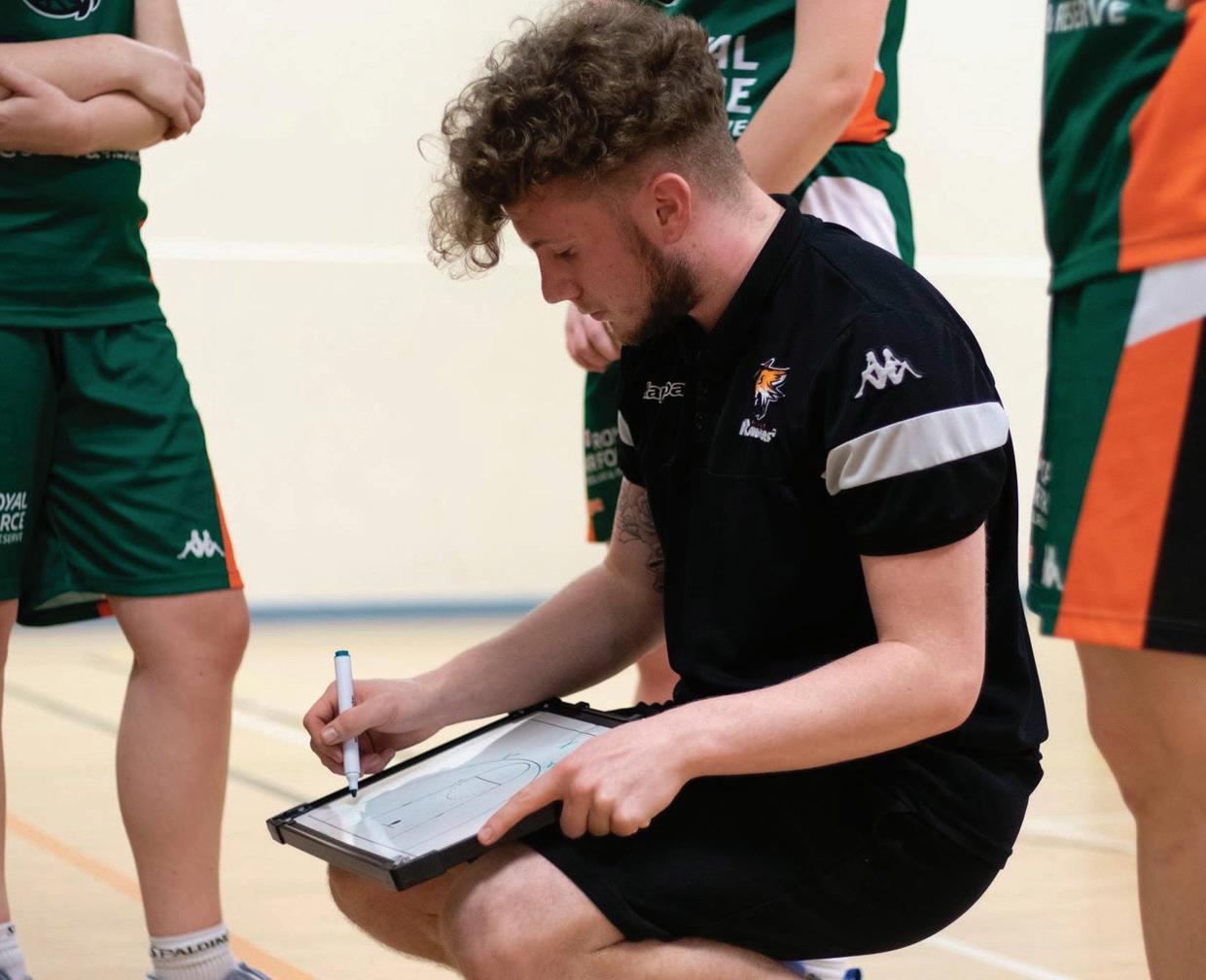
HCM people 22 Issue 11 2022 ©Cybertrek 2022
Coach
Young people learn transferable skills for life
Photo:
Coa C h Core
Photo: Coa C h Core
have a maths or English qualification. By the end of the programme they have a formal apprenticeship qualification, multiple coaching and workplace qualifications, a coaching portfolio and tangible work experience. Many are offered full-time work with their placement and 92 per cent are in full-time work or education six months after completion.
Why should employers engage with you?
We deal with all the red tape and take the headache out of apprenticeships. We turn out well-rounded professionals who can be future team members and it’s relatively inexpensive, especially as we frequently give bursaries or grants to employers.
We help young people turn their lives around by empowering them and giving them purpose. Each apprentice we help creates their own ripple effect, impacting the lives of many others. For example, we started a football programme in a crime hotspot and saw it directly bring offending rates down.

How did Coach Core come about?
I came from a challenged background myself, so always wanted to support young people and my entire career has been in coaching and sport for development. The vision was to get young people from rough estates into our workforce. Although they might start off as rough diamonds, they become
23 ©Cybertrek 2022 Issue 11 2022
The programme aims to produce well-rounded and resilient individuals
Photo: Coa C h Core
fantastic role models, quickly becoming an asset to their workplace and bringing fresh ideas and energy.
We were one of the first charities to get the support of The Royal Foundation, backed by Princes William and Harry and Princess Katherine. Against the backdrop of the 2011 riots, they were looking for a long-term project around the Olympic ideals. It was amazing to have the support of three of the most famous people on the planet during our set-up.
We ran the first pilot programme in London, then helped to advise the Glasgow and Welsh Rugby Union programmes which wanted to follow the model. It was the perfect pilot to have three countries, three different types of employers and three different education systems. All of those cohorts worked, which gave us belief in the model.
In 2015, we scaled this up across England, working on the multi-employer consortia model, which ultimately empowers organisations locally to work collaboratively, so they can gain benefits for their apprentices and businesses while enhancing their offer to the wider community.
In 2018 we were operational in 10 cities and signed our first Sport England deal, which really elevated our standing in the sector. At that point
we became too big for the Royal Foundation model, so the decision was made to leave the nest and establish ourselves as a standalone charity.
What have been the main challenges?
In the beginning, many people were sceptical, as they thought it was too expensive, worked with too few people and didn’t think employers would collaborate and share resources, which was not common at the time. However, the success of our pilots gave us the confidence and tenacity to continue.
After three years of pilot and three years of scale, we were meant to have three years of building our base. However, in 2019, with Prince Harry deciding to step away from royal life, the now Prince and Princess of Wales decided The Royal Foundation needed to take a fresh approach to its programmes, which meant Coach Core needed to work towards a 12-month target, instead of the original three-year plan.
I thought 2019 was the most stressful year of my life until I became the CEO of a new charity on 1 April 2020! We jumped ship with a £1m fundraising target and had to attract new funders, build a team and a programme base in the worst possible commercial climate.

HCM PEOPLE
Gary Laybourne wants to work more closely with health club operators
Coa C h Core
Photo:
We had about 100 apprentices in the system at that time and had been given a cheque which was enough to support all of them through their apprenticeships. I decided that if the charity had to wind down at the end of that period then so be it, but at least we wouldn’t leave anyone behind.
However, our response supporting those apprentices and employers, led to our second agreement with Sport England, with us becoming a systemic partner, so we actually managed to grow in that time.
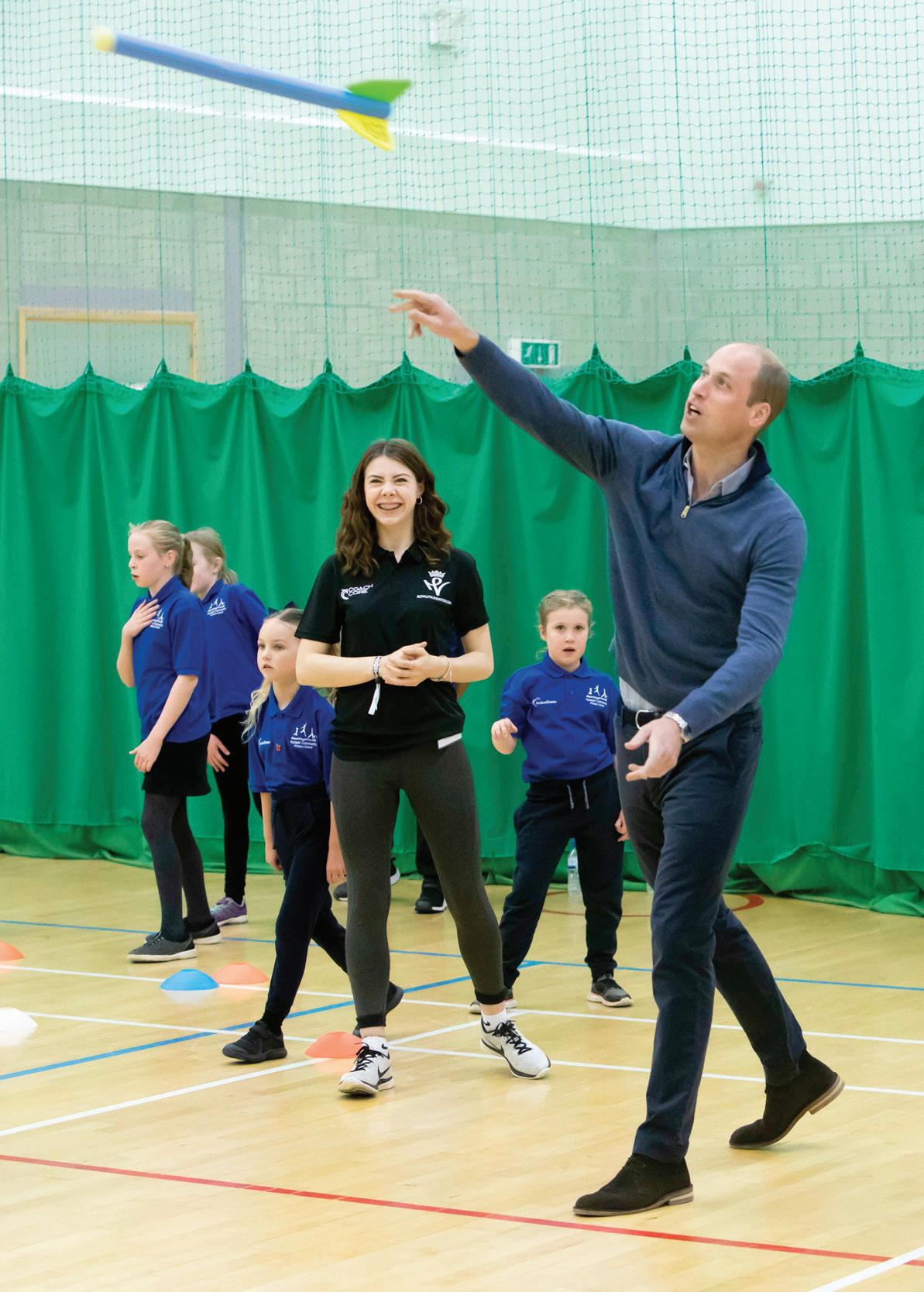
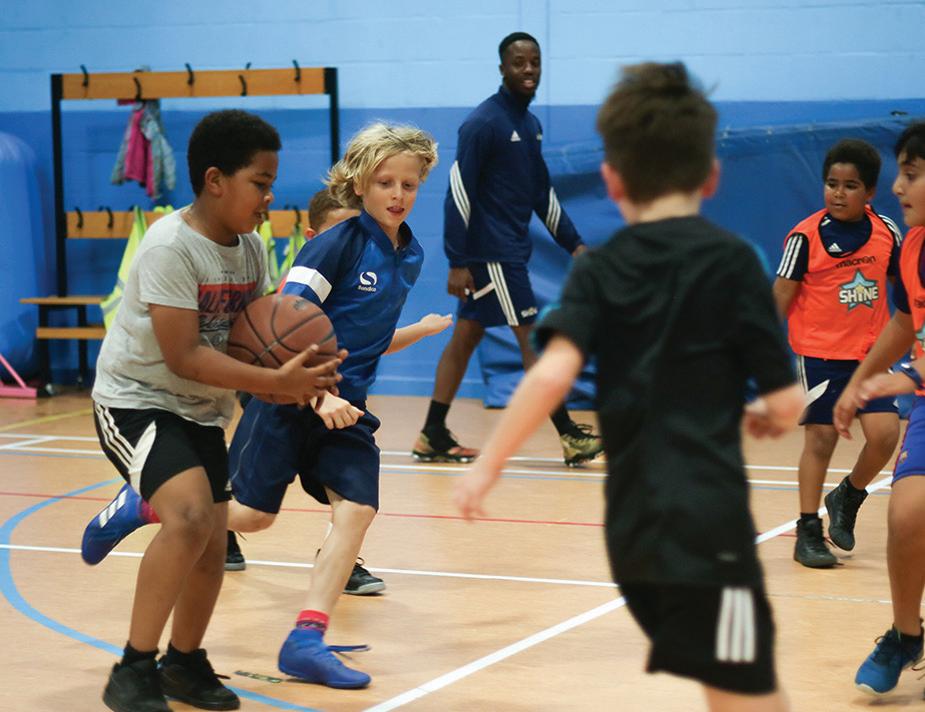
Is the cost of living crisis impacting you?
Recently we’ve experienced a seesaw moment. We used to have 60 or 70 applicants for each programme - which can take 20 – but now we’re only getting 17 or 18 applicants for each programme which is a challenge. The reason we’re finding it hard to recruit is the cost of living. The apprentices get paid around £12k for 15 months, but they’re finding it’s not enough unless they’re living at home.
The demand for programmes from employers is huge, but limited by capacity in a small team, we’re sadly batting away opportunities which is something we are addressing as part of our new strategy.
What are your future plans?
Our geographical spread is growing – we’re now in 19 cities and counties – but there are still many places we want to go, including Liverpool and Hull and we’re looking at new programmes in Scotland, Wales and Northern Ireland. We’ve evolved the model to be hub-based, which allows us to service a few neighbouring projects at once, meaning it’s not just focussed on city centres, but also allows us to reach into towns and areas of rural poverty too.
Going forward, we’ll be using programme managers to take a more targeted approach to finding apprentices, engaging with job centres, local charities and justice services to find those young people who need us the most.
We’re in talks with a number of leisure operators too and definitely feel this sector has untapped potential: we’re really keen to work with more health and fitness and leisure providers, so we can continue contributing to the future workforce. We work with a number of small and national-sized organisations already, but we’re keen to expand on this. Those operating in areas of challenge and want to bring in a new, exciting, diverse workforce should 100 per cent get in touch. l
More: www.coachcore.org.uk
25 ©Cybertrek 2022 Issue 11 2022
We’re in talks with a number of leisure operators and definitely feel this sector has untapped potential: we’re really keen to work with more health and fitness and leisure providers
Apprentices get authentic experience while training
Prince William and the Royal Foundation helped the charity launch
Coa C h
Photo:
Core
Photo: Coa C h Core
Third Space says latest club is 40% up on target
Third Space has opened the doors to its new 27,000 sq ft club in London’s Moorgate, with CEO, Colin Waggett telling HCM membership numbers are already well ahead of projections.
“Reading the press you might think the world has stopped and working from home has killed trading in health clubs in the City, but we’re not seeing too many signs of that,” said Waggett. “Moorgate has opened today with 40 per cent more members than we originally strategised for at this stage
The trends of ‘premiumisation’ and health being the new wealth are holding up Colin Waggett

The new cycle studio at Third Space, Moorgate
and our other clubs – all of which are in central London – are above 2019 revenue levels. I believe the longstanding trends of ‘premiumisation’, health being the new wealth and experiences over ‘things’ are holding up, even in these turbulent times.”
With clubs opening at Battersea Power Station and Wimbledon’s
Centre Court Shopping Centre next year, the luxury fitness chain remains on track to meet its target of operating an estate of eleven clubs by the end of 2023.
The expansion follows a capital injection from KSL in August 2021.
More: http://lei.sr/U3n2x_H
Xponential signs 100-studio deal in Japan
Hot on the heels of a fourbrand deal with Kuwait, John Kersh, chief international development officer at Xponential Fitness, has brokered a master franchise agreement in Japan for Rumble and AKT.

Rumble provides boxing-inspired circuits in a group fitness setting and AKT is a full-body workout that combines cardio dance intervals.

The deal, to launch at least 100 new studios in the next eight years, is with Xponential’s master franchise partner in Japan, Wellness X Asia –led by Naoki Shimabukuro – which also has franchise rights for Club Pilates and CycleBar.
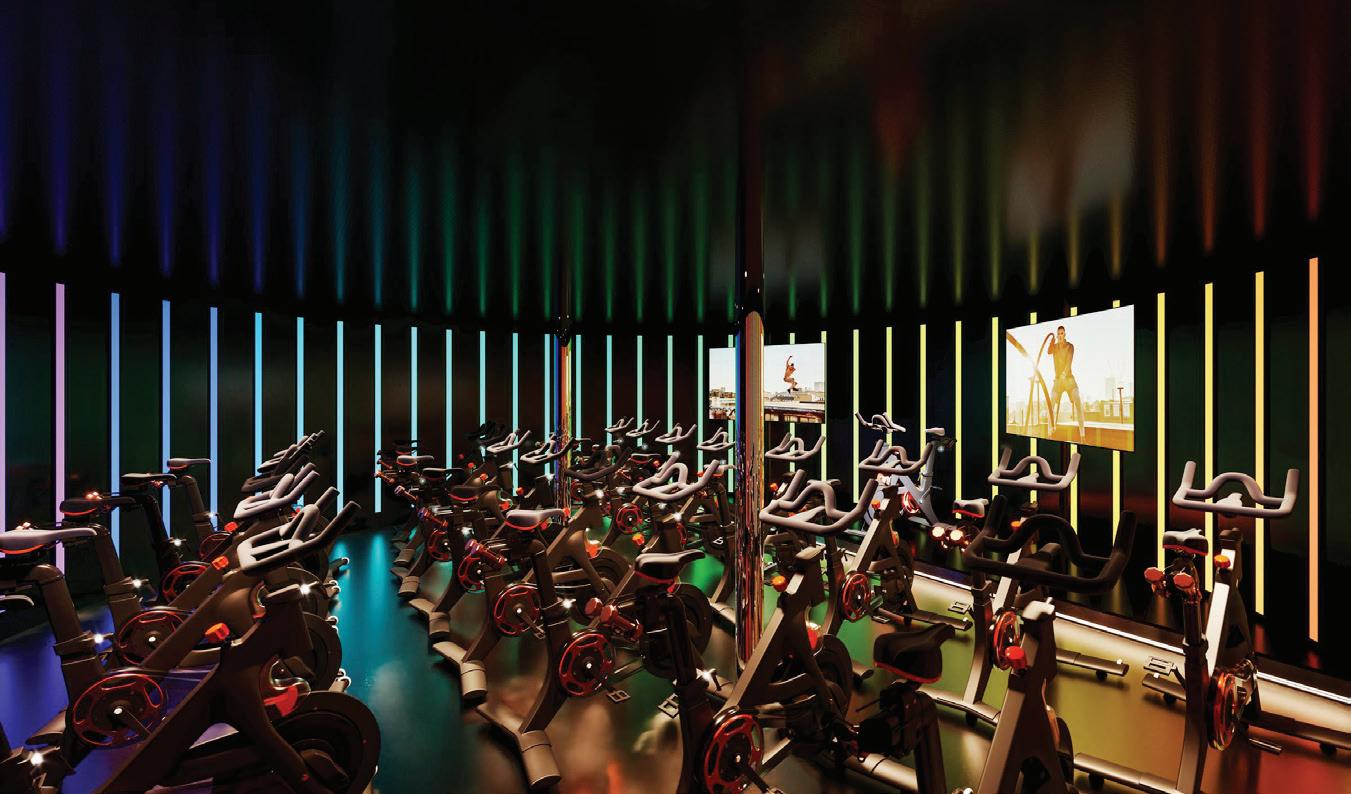
“The Japanese market is ready for world-class boutique fitness options like Rumble and AKT and we are
John Kersh
excited to ramp up our growth in this strategically important market,” said Kersh. “Naoki and his team have done an outstanding job developing Club Pilates in Japan, and we’re confident they’ll have equal success with Rumble, AKT and CycleBar.”
More: http://lei.sr/s6E4r_H
news 26 Issue 11 2022 ©Cybertrek 2022
The Japanese market is ready for world-class boutique fitness options
PHOTO: XPONENTIAL FITNESS
THIRD SPACE
PHOTO: XPONENTIAL FITNESS
THIRD SPACE
Rumble and AKT are set to launch into the Japanese market in 2023
Kerzner opens fitness-centric hotel brand Siro
Resort developer and operator Kerzner International has announced its new wellbeing- and fitness-centric hospitality brand Siro is launching in Dubai in Q4 of 2023.
Named Siro One Za’abeel, the 132key hotel will be the first of its kind following Kerzner’s announcement of the brand earlier this year.
Designed to help guests unlock peak mental and physical performance, the Siro location will offer tailored programmes and treatments developed by specialists in fitness, mental health, nutrition and sleep.
Philippe Zuber, Kerzner CEO, said: “Siro represents Kerzner’s continued ambition to break boundaries within the hospitality industry and present innovative ways for guests to become
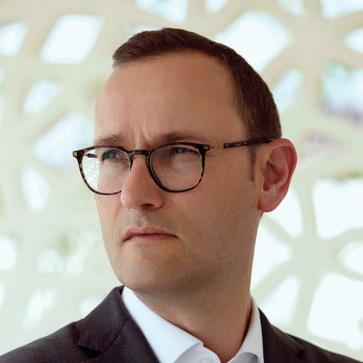
better versions of themselves, regardless of their personal journey.
The Dubai hotel will be anchored by a two-floor fitness club featuring a 1,000sq m gym along with space for yoga and meditation, as well as a variety of group exercise studios.

More: http://lei.sr/Y7f6P_H
Fit+ aims to have 1,000 sta ess gyms by 2027
Fit+ is aiming to operate at least 1,000 clubs by 2027. The staffless gym franchise currently has 208 studios across 19 countries, but with master franchise licenses granted in Asia and the USA, is planning to roll out facilities in these territories, as well as others, over the next five years.

In an exclusive interview with HCM, founder Torsten Boorberg says individuals with a certain level of fitness and those who are content to be coached digitally, are ideal consumers for such a concept.
“The safe execution of exercises is always improving, simply because people bring a lot more fitness experience with them now the industry has matured,” said Boorberg. “Like skiing or tennis, after a while, you don’t need a coach to have fun or get results in the gym. The younger audience is comfortable using digital media and we offer digital training,
along with exercise instructions which can be called up via QR code.”
The fact that the gym is staffless has enabled Fit+ to open up in places that do not have any existing fitness facilities.
“Our USP is that we’re often the only studio in the area,” said Boorberg.
More: http://lei.sr/J5P6F_H
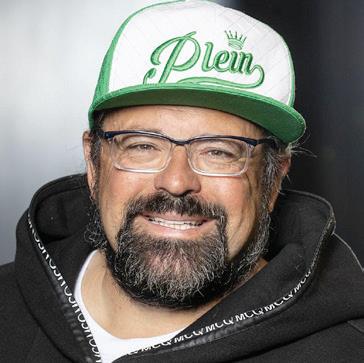
27 ©Cybertrek 2022 Issue 11 2022 Get live news at www.HCMmag.com
Siro represents Kerzner’s continued ambition to break boundaries
Philippe Zuber
Our USP is that we’re often the only fitness studio in the area
Torsten Boorberg
KERZNER INTERNATIONAL
PHOTO:
SHUTTERSTOCK/GPOINTSTUDIO
KERZNER INTERNATIONAL
PHOTO: BERND HANSELMANN/FIT+
The hotel will feature a two-storey gym
Staffless gyms are a growing trend, given the lower cost base
Sony unlocks the metaverse with Mocopi sensors
Sony has announced that it will be releasing a motion-tracking product called Mocopi in January that looks set to accelerate the services that fitness and wellness – and also entertainment and attractions – companies can provide in the metaverse.

The product suite comprises six lightweight motion-tracking wearables – designed for the head, wrists, hips and ankles – that are programmable via a smartphone.
The tech makes it possible to create avatar videos – as well as operate avatars in real-time with compatible services such as VRChat – and motion data that includes whole-body movements, both indoors and out.
HCM understands Sony’s proprietary ‘mocopi’ algorithm makes it possible to achieve such accurate measurements with a small number of sensors.
On 15 December, the company is planning to provide a software
Mocopi’s algorithms make whole-body motion data capture possible
development kit (SDK). Not only will this link the motion data with metaverse services and 3D development software, but it will also open up full-body tracking capabilities which could catalyse the development and creation of new services.
The sensors are 32mm in diameter, 11.6mm wide and weigh 8g. They
attach to the user via Velcro bands or a clip and the avatar can be operated from the user’s smartphone.
The six sensors are priced at 49,500 Yen (US$360) and Sony launched pre-order sales for the products in mid-December.
More: http://lei.sr/7q8G3_H
9Round expands into India with 50-site
Kickboxing-inspired brand 9Round has extended its international reach with a Master Franchise Agreement for South India, which covers around 20 per cent of India’s area and population.
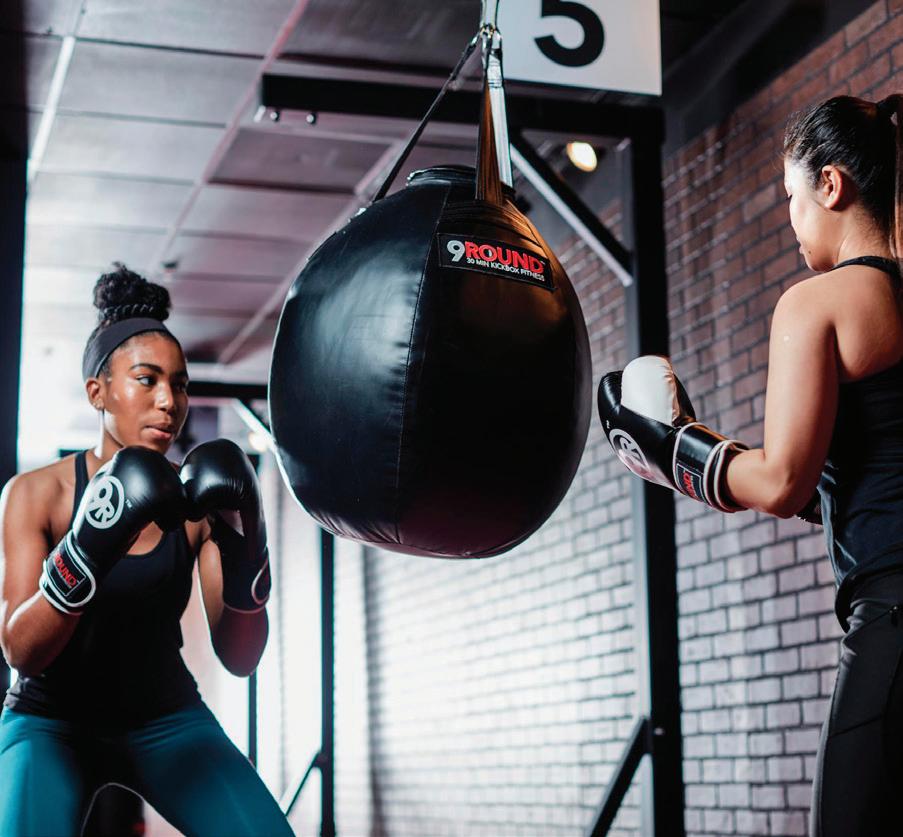
The deal will see 50 new clubs open up across the territory – including the states of Karnataka, Telangana, Andhra Pradesh, Pondicherry, Tamil Nadu and Kerala – over the next seven years. Arun Bharathi, Balaji Jeyakumar and Sharmila Jayakumar make up the master franchisee team. They plan to open the country’s first 9Round location in Chennai or Bangalore in early 2023.
“Based on our proven track record in Asia and the rapid expansion of franchises in India, which has grown to become the world’s second-largest
deal
India is an ideal location for 9Round’s continued global expansion
Shannon Hudson
franchise market, India is an ideal location for 9Round’s continued global expansion,” said Shannon Hudson, founder and CEO of 9Round.

9Round was founded in 2008 and over the last 14 years has expanded into 700 locations worldwide.
More: http://lei.sr/a2r4u_H
news 28 Issue 11 2022 ©Cybertrek 2022
PHOTO: 9ROUND
PHOTO: SHUTTERSTOCK/JACOB LUND
PHOTO: 9ROUND
9Round plans to open 50 clubs in South India in the next seven years
Peloton execs sued for insider trading
One of Peloton’s investors, Krikor Arslanian, is suing Peloton leaders, including former CEO John Foley, for insider trading. The lawsuit claims they “sold approximately US$494,687,939 worth of their stock collectively” while hiding Tread+ safety issues that caused injury to more than 30 children and one death.
Peloton’s Tread+ has been involved in several highly publicised incidents involving children. A sixyear-old girl was pulled under the treadmill in 2020, but the most tragic was the fatality of a threeyear-old-boy, which is documented as occurring on 3 Feb 2021.
In March 2021 Foley addressed the accident publicly in a letter to Peloton owners claiming the company
was “aware of only a small handful of incidents involving the Tread+ where children have been hurt”, yet the CPSC (Consumer Product Safety Commission) “was aware of at least 39 incidents of injury”.
“While the company’s outside stockholders were decimated, certain insiders did quite well for themselves”, stated the court document, as they sold when “Peloton’s stock price was at, or close to, its all-time high and with some sales occurring just a week or few weeks after a February 3, 2021 incident involving a catastrophic child injury connected to the Tread+ and a month before Peloton publicly disclosed the child’s injury from the Tread+”.
More: http://lei.sr/9F9r8_H
RSG Group announces new management team
RSG Group has announced that Dr Jobst Müller-Trimbusch and Hagen Wingertszahn will take over the leadership of the company. They will have co-CEO positions following the tragic loss of former owner and CEO Rainer Schaller whose death was confirmed on 4 November 2022.
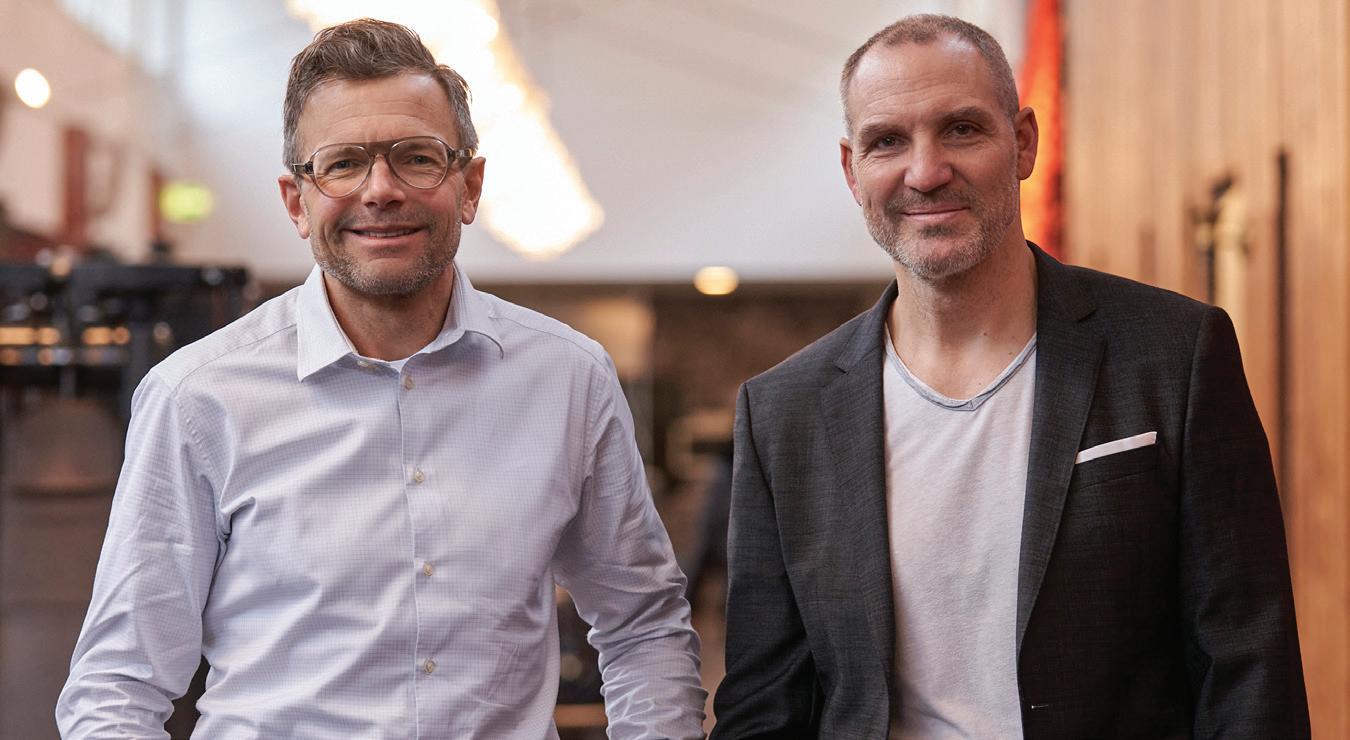
Müller-Trimbusch has been CFO at RSG Group for the last three years and Wingertszahn has been in the role of MD since 2017, following a COO position at Fitness First.
The company says its focus going forward will initially be on building its core fitness business, along with ensuring employee security and strengthening the profitability of the overall company.
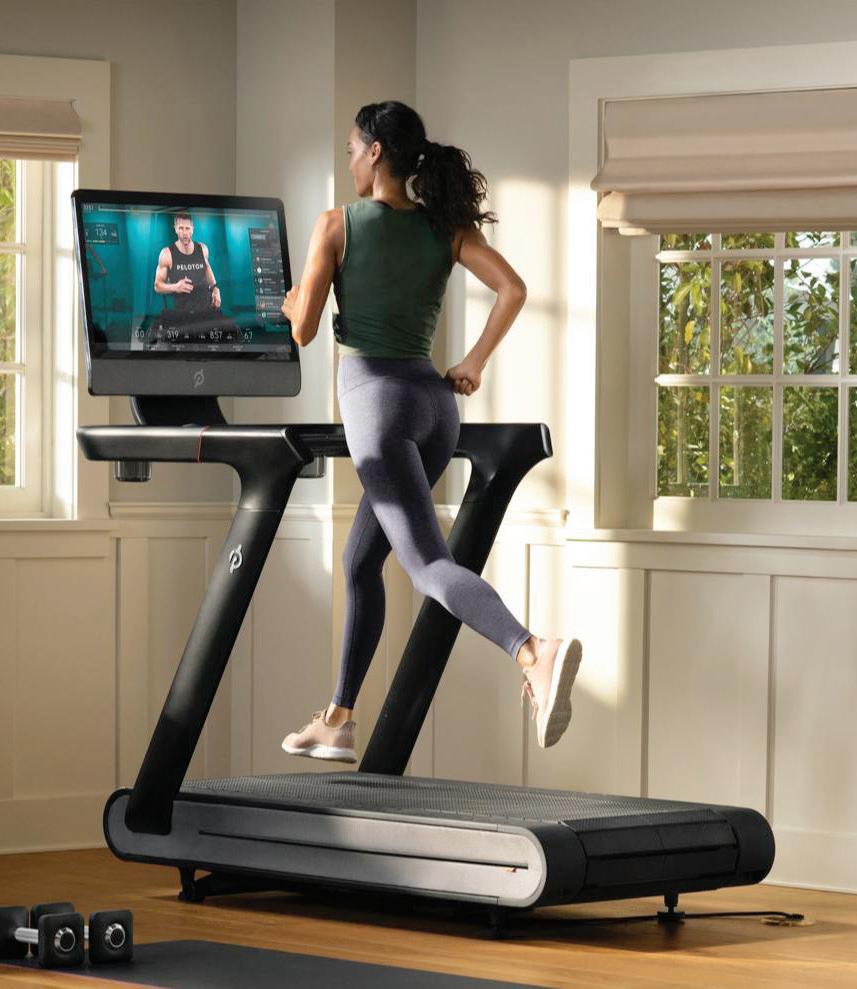
“By taking over the management of RSG Group, we are both following in the footsteps of the extraordinary entrepreneur, Rainer Schaller, for whom we had the greatest respect,” they said.
“Our priority is to ensure we consistently continue our trendsetting and market-leading position that the group has built over 25 years,” said Müller-Trimbusch. “At the beginning, we will primarily focus on strengthening and further expanding the existing fitness brands in Germany and abroad, as we still see the greatest development opportunities there.”
RSG Group will also enhance its customer-centric approach and build up US operations. “Our goal as the new management is to find a balance between preserving the roots and further developing the company,” said Wingertszahn. “We thank the new owners for their confidence in us.”
More: http://lei.sr/E3G3U_H
29 ©Cybertrek 2022 Issue 11 2022 Get live news at www.HCMmag.com
PHOTO: RGS GROUP
PHOTO: PELOTON
Tread+ was withdrawn from the market
Dr Jobst Muller-Trimbusch and Hagen Wingertszahn are the new RSG co-CEOs
Topnotch brand returns to the midmarket

The revival of a classic UK health and fitness brand will see Topnotch Health Clubs relaunching back into the mid-market fitness sector as Topnotch Gyms.
The first location will open on 3 January in Carnaby Street in London’s Soho. The new club – which will benefit from a £1m fit-out and £300k equipment investment – will be a modern, urban version of the brand that moved into the low-cost fitness market twelve years ago.
Topnotch was very forwardthinking. We’ve looked at how we can bring it back Stuart Rosenberg
Topnotch is one of several ‘vintage’ brands that are being revived
Topnotch is being re-ignited as part of a new startup entity, with Matthew Harris, the original founder of the Topnotch chain in 1991, as the leading shareholder.

Harris plans to take a back seat, leaving Stuart Rosenberg on board as MD and Steve Bradley in a non-exec role.

“Matthew founded Topnotch, Steve used to be at Topnotch and I used to work for Topnotch – we’ve all got fond memories of the concept,” said Rosenberg. “Back in its day, Topnotch was very forward-thinking. We’ve looked at how we can bring it back.”
More: http://lei.sr/K4f7t_H
Industry fights for continuation of energy support
Anumber of UK local authorities and their leisure management partners are in crisis due to rising energy costs, with 40 per cent saying leisure centres and swimming pools will be closed or services reduced before the end of March 2023 unless they receive further support from the government.

The numbers come from a survey carried out by UK Active, to determine the vulnerability of the public sector.
Some services will be cut by March 2023 if funding is not forthcoming
The study also found a further 34 per cent of facilities surveyed will be at risk before 31st March 2024, meaning a total of 74 per cent of local authority facilities in the survey are classified as being at risk over the next 18 months.
At the other end of the scale, 26 per cent reported being
Huw Edwards
financially secure, with no risk of closure or reduced services expected up to 31st March 2024
“We remain committed to exploring all options available to stem the flow of closures,” said UK Active CEO, Huw Edwards.
More: http://lei.sr/4q2y4_H
news 30 Issue 11 2022 ©Cybertrek 2022
We remain committed to exploring all options available to stem the flow of closures
PHOTO: LBEDDOE / SHUTTERSTOCK
PHOTO: TOPNOTCH GYMS
PHOTO:UK ACTIVE
PHOTO: TOPNOTCH GYMS
Instagram’s most popular UK gyms revealed

Alist of 250 of the UK’s most popular gyms on Instagram has crowned Psycle in Oxford Circus the most posted club. According to the list drawn up by Versaclimber UK, it has accrued 14,200 posts on the social media network.
UFit Fitness in Cardiff came second with 12,800 tags, and Equinox Kensington a close third with 12,600. London’s Third Space City was in fourth position with 10,100 and JD Gyms in Coventry racked up 9,757.
Overall, 15 gyms from London made the top 50 list with almost 100,000 posts. Gyms in Manchester were the second most Instagrammed, with members uploading 15,923 tagged images across three gyms. JD Gyms chain appeared on the list 12 times, CrossFit gained five
entries and three of Third Space’s luxury London clubs were included.
“Fitness is a passion for lots of people, which is why there’s such a big appetite to share their journey online,” said Ryan Kelford, operations manager at Versaclimber UK.
More: http://lei.sr/A4b8j_H
Sport England advocates pivot to wellbeing
Sport England has released the Future of Public Sector Leisure report which looks at how to evolve the sector from a traditional leisure service into one that is more focused on active wellbeing.
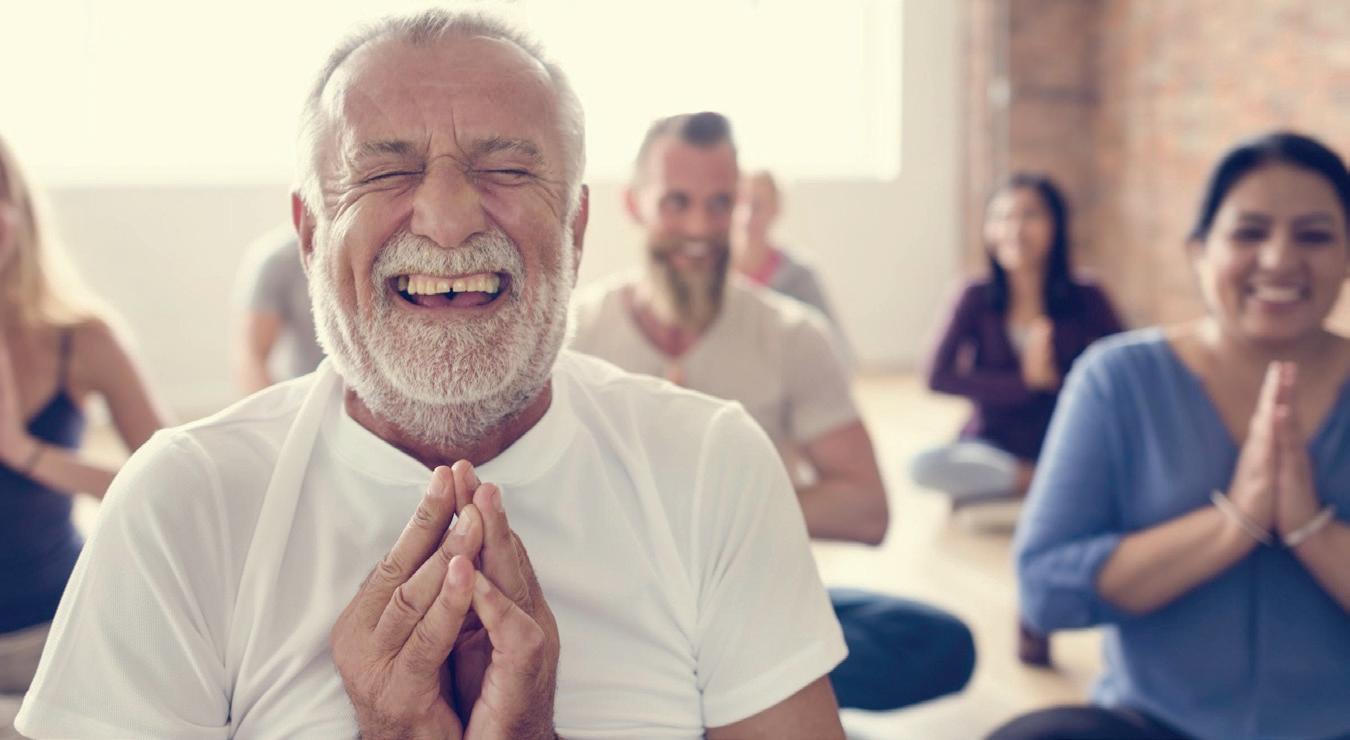
The report was devised in association with Activity Alliance, Active Partnerships, APSE, CIMSPA, CLOA, Community Leisure UK, DCN, Local Government Association, Swim England and UK Active. It reflects discussions among the organisations about the
Collectively, the focus should be on repositioning the offer, says Hollingsworth
leisure sector’s current position and how best to progress amidst an energy and cost-of-living crisis.
Collectively, the focus should be on repositioning the traditional offer of public leisure
Tim Hollingsworth

Sport England says that the vision outlined in the report will create a closer relationship between health and leisure that is “built on social prescribing, co-location of services and the delivery of preventative activity opportunities.
“Public leisure facilities and services have a vital and unique role to play in our sport and activity ecosystem because of their value to the people who use them most,” said chief executive Tim Hollingsworth. “Collectively the focus should be on repositioning the traditional offer.”
More: http://lei.sr/p8J6t_H

31 ©Cybertrek 2022 Issue 11 2022 Get live news at www.HCMmag.com
There’s a big appetite for people to share their journey online Ryan Kelford
PHOTO: LINKEDIN/RYAN KELSFORD
PHOTO: SHUTTERSTOCK/RAWPIXEL
PHOTO: PSYCLE
PHOTO:SPORT ENGLAND
Psycle in Oxford Circus tops the list
US judge rules that F45 patent is ‘invalid’
In the latest legal battle between Australian franchise chain Body Fit Training (BFT) and US-based F45 Training, a federal district court in Delaware, US, has ruled in favour of BFT, describing F45’s patent as ‘invalid’.
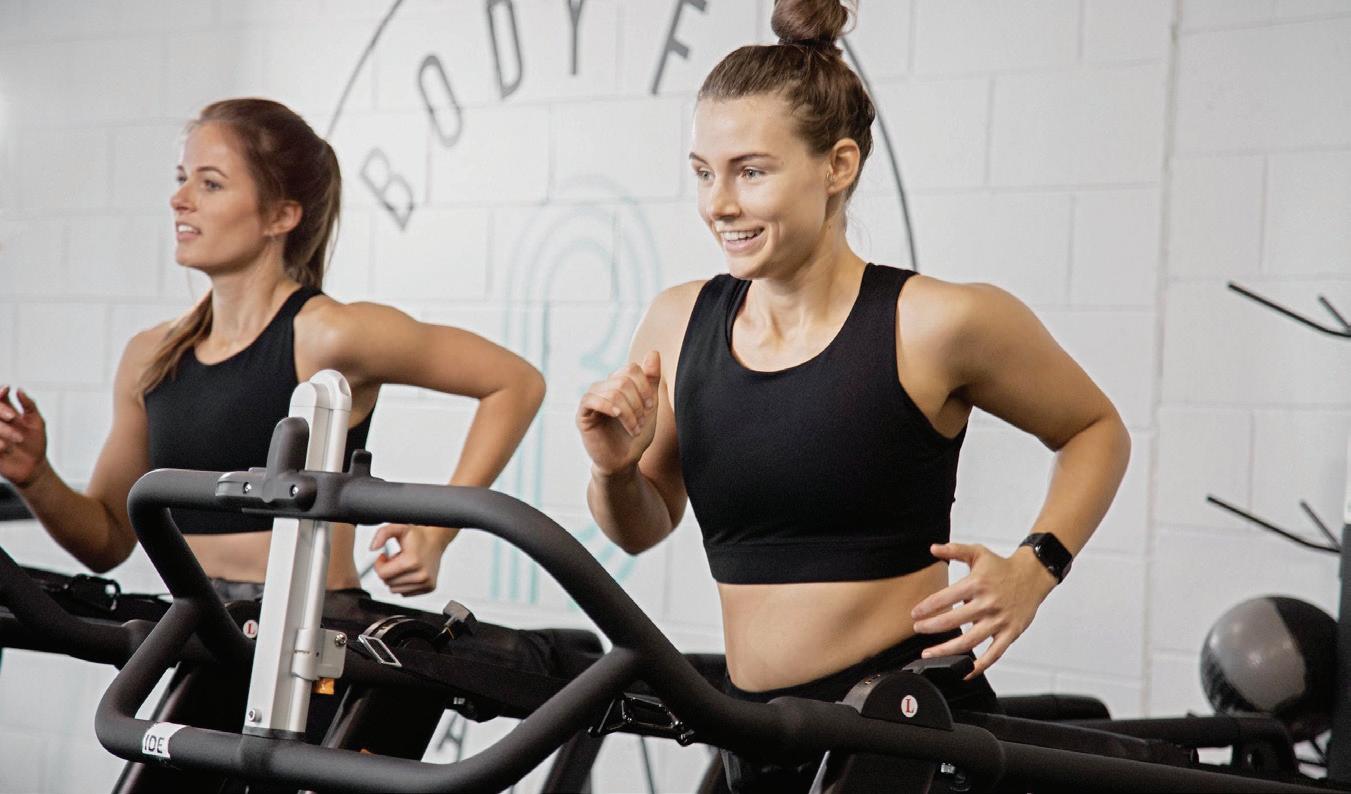
F45 had accused BFT of infringing F45’s ‘890 patent’ – US Patent Number 10,143,890 – arguing that “BFT’s system for operating its fitness studios, including the use of BFT files, infringes the claims of the ‘890 patent”.
Industry veteran and expert witness in the case for F45, Bryan K O’Rourke, stated in court that in the fitness industry he “never saw anything like or closely resembling the invention of the ‘890 patent’ or the fitness phenomenon enabled by that invention”.
Other witnesses also defended the patent, but the court responded that while “evidence cited by Mr O’Rourke touts the commercial success of F45’s studios…the commercial success of a patentee’s product does not
A US judge has ruled in favour of Body Fit Training in latest court battle with F45
necessarily indicate that the company’s patent contains an inventive concept”.
The court concluded that “the evidence fails to tie the ‘member experience’ in the F45 studios to the specific steps set forth in the claims” as the model is “mainly tied to the use of computer displays in place of human instructors, which is not an ‘inventive
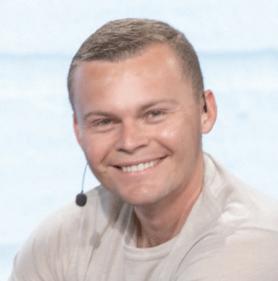
concept’. Thus all claims relating to the ‘890 patent’ were deemed invalid.
The dispute between the two franchises began in late 2019 when F45 filed a lawsuit in the Australian Federal Court against BFT over alleged patent infringement.
More: http://lei.sr/m2C5Z_H
Stretchlab’s Flexologist training gets accreditation
Assisted stretching franchise StretchLab, which is part of Xponential Fitness, has had its proprietary Flexologist Training Program accredited by the Institute for Credentialing Excellence (ICE). Students completing this course will now receive a nationally recognised certificate in assisted stretching, which is the first of its kind in the industry.
StretchLab’s training programme includes 50-70 hours of curriculum focused on stretching, flexibility and mobility training. The company demonstrated its compliance with ICE 1100:2019 – Standard for Assessment-Based Certificate Programs in order to receive the accreditation, which is classified as a standard by the American National Standards Institute (ANSI).

“As StretchLab continues to grow rapidly, we want to make sure people know they can trust flexologists at our studios to provide scientifically-backed wellness services,” said Austin Martinez, VP of training and experience at StretchLab.
More: http://lei.sr/Q6C8d_H
news 32 Issue 11 2022 ©Cybertrek 2022
As StretchLab continues to grow, we want to make sure people know they can trust flexologists
Austin Martinex
PHOTO: STRETCHLABS
PHOTO: BFT
PHOTO:XPONENTIAL
The training was accredited by the Institute for Credentialing Excellence


Dr Fiona Bull
The World Health Organization has published a report charting progress towards its goal of reducing physical inactivity globally by 15 per cent by 2030. The head of its Physical Activity Unit speaks to Kate Cracknell about the findings and implications
What was the objective of the recent global status report?
The global status report is a follow-up to 2018’s Global Action Plan on Physical Activity 2018–2030 (GAPPA), which laid out the roadmap of recommended policies that countries should implement to increase physical activity.

With four years gone since the launch of GAPPA, and eight years to go to 2030’s sustainable development goals, this was our first real opportunity to see how we’re doing.
The report set out to provide three key things. First, an estimate of the cost to the public health system of not acting on physical activity. Second, a global stock-take of national progress on implementing the policy recommendations set out in GAPPA. And third, recommendations to countries on the actions needed to recover from the impact of COVID, to accelerate national progress towards GAPPA’s goals.
We had intended to publish a status report sooner but were disrupted by COVID. Instead, we released our Fair Play advocacy brief in 2021, calling on governments to recognise the increasing importance of physical activity for people’s mental and physical health as part of national COVID responses and recovery.
With the extra time this afforded us, we secured more up-to-date data for our status report, as well as using a broader, more thorough set of 29 indicators.
What were the headline findings?
We’ve focused on three take-home messages from the global status report. First, we estimate that US$27bn a year in direct public healthcare costs – or US$300bn by 2030 – could be averted globally by increasing physical activity and preventing an estimated 500 million new cases of non-communicable diseases and mental health conditions by 2030. That US$300bn figure is equivalent to the cost of training around one million medical doctors in the UK or 2.3 million in Brazil.
Sadly, the other take-homes highlight that we aren’t moving fast or far enough to make our desired impact on physical activity by 2030.
Overall progress by countries toward implementing the recommended policies on physical activity has been slow and uneven. Of the 29 policy indicators, 18 are being achieved by fewer than half of countries; only two are being achieved by over three-quarters of the 194 countries in our report.
And as I say, it’s also uneven: the 54 countries in WHO’s European region, for example, are

INTERVIEW 34 Issue 11 2022 ©Cybertrek 2022
&
Demonstrating impact is going to be key. Without it, we’re just asking governments for charity

35 ©Cybertrek 2022 Issue 11 2022
COVID showed how quickly policies could be enacted simply due to necessity, says Bull
o rganization
photo: World h ealth
performing better in the majority of indicators than some of the other country regions such as the Americas, Africa and South East Asia. We basically see a gradient in most indicators between high-income and low-income countries.
The third takeaway is that significant gaps exist in policymaking and policy implementation.
Tell us more about the implementation gaps


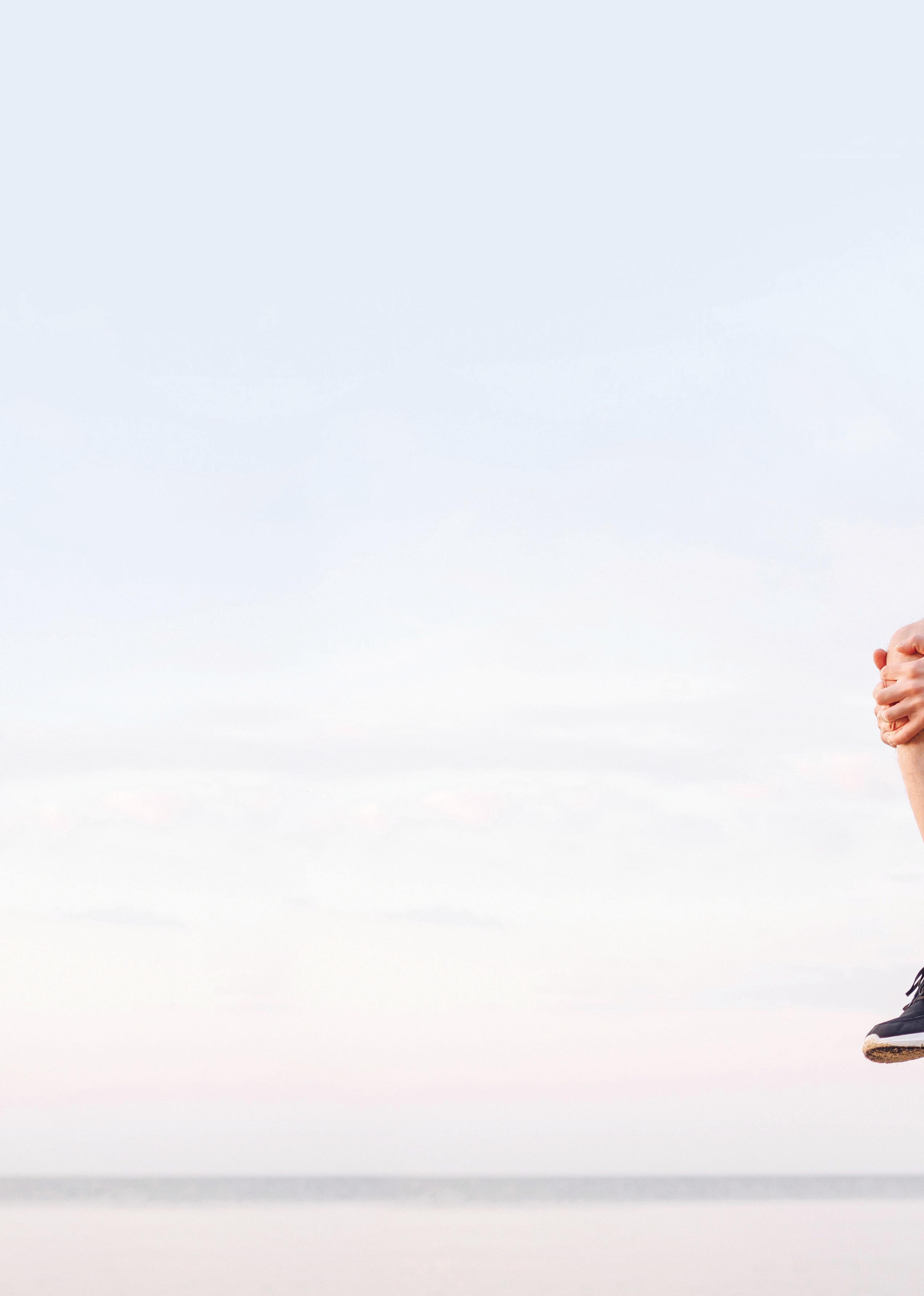
One of the bright spots of the report is that we’ve made substantial progress in terms of the number of countries having national policies on non-communicable diseases, including prevention through physical activity. There’s far wider recognition now of the role of physical activity in preventing chronic disease.
Sitting so close to this as I do, and wanting so much to change things, progress feels insufficient and grindingly slow. Yet at the same time, we have to recognise that these are not insignificant developments. This widespread move towards having a national physical activity policy is promising and encouraging.
Yet we must recognise that still fewer than half of all countries (46 per cent) have such a policy. And when asked about the implementation and funding of those policies, the figure drops further, with just 38 per cent of countries saying they have an implemented national policy on physical activity.
This is the policy implementation gap, and it is a concern to us. All policymakers across all 194 countries must look at and take stock of their achievements, but also their gaps: the gaps where they can strengthen their own policies and/or look at policy implementation and support.
Because we do know what to do. We know what works. And we know the health, social, environmental and economic benefits that will come from all of this. We now need to move into implementation
– into actually doing it. It doesn’t have to be all at once, but countries should look at the key areas where they can make a start, putting in place determined, funded plans for the coming years.
COVID-19 may have diminished our resources: trend data in our report shows that policy implementation dropped even further during the pandemic. But let’s go back to that US$300bn, which we refer to as the cost of inaction. This is how much physical inactivity is costing us. It’s calculated by looking at the direct healthcare costs of all the new cases of chronic disease – attributable to physical inactivity – that we estimate will occur by 2030. Not doing anything is very costly.
So, we have to respond to demand – which has grown further since COVID – by providing more opportunities. That may involve increasing the funding pie, but it’s also about better distributing the current pie.
Where do we start?

We’ve effectively identified five areas to work on. We need governments to strengthen their ownership of the physical activity policies they’re responsible for, along with their leadership and accountability to implement those policies. As an example, we need all ministries of transport to appreciate their contribution to increasing physical activity through walking and cycling. They are the responsible government portfolio sector for this. Meanwhile, the education sector must ensure children have positive experiences in sport and physical activity in school, via quality physical education. We aren’t asking one department to do everything. We’re asking multiple departments to do their bit.
The second is stronger partnerships, which is something we’ve called for many times. Sport and health, but also transport and education, must work better and closer together. There also needs to be
36 Issue 11 2022 ©Cybertrek 2022
INTERVIEW
Work is already underway to improve the methodologies used to demonstrate social return on investment, in collaboration with organisations such as Europe Active

The cost of inactivity is estimated to hit US$300bn in terms of direct impact on healthcare by 2030
s tu D io
photo: shutterstock/ViD




38 Issue 11 2022 ©Cybertrek 2022
INTERVIEW
We need to strengthen the evidence base around the wider benefits of exercise: economic, community, social, environmental
PHOTO: WORLD HEALTH ORGANIZATION
Dr Fiona Bull: ‘It’s vital for the future that the industry has one clear representative voice’
more collaboration with communities. It doesn’t have to be top-down; communities know what they need. Joined-up action will deliver the whole system approach that creates opportunities for everyone.
Third, to close the policy-action gap, we need to build the knowledge, competencies, workforce and guidance on how to do it. We need tools that translate highlevel policy to really practical, feasible how-to advice.
Fourth, we must address data gaps. Data will inform, guide and allow us to measure progress, yet there are some key indicator gaps that mean we don’t even know what progress we’re making – or not making. For example, we have no data on the provision of quality physical education; a global database does not exist. And that’s just one example. We don’t know what provision and access there is to walking and cycling infrastructure, either, so we can’t track that or guide progress.
The fifth point is the need to review the alignment of financing and funding towards these policies; the implementation gap is no doubt in part due to insufficient funding and prioritisation. If we say we’re going to provide quality physical education and increase walking and cycling infrastructure, the budgets within those government portfolios must match the policy directions. At the moment, we have a mismatch in many countries.
Where does the physical activity sector come in?
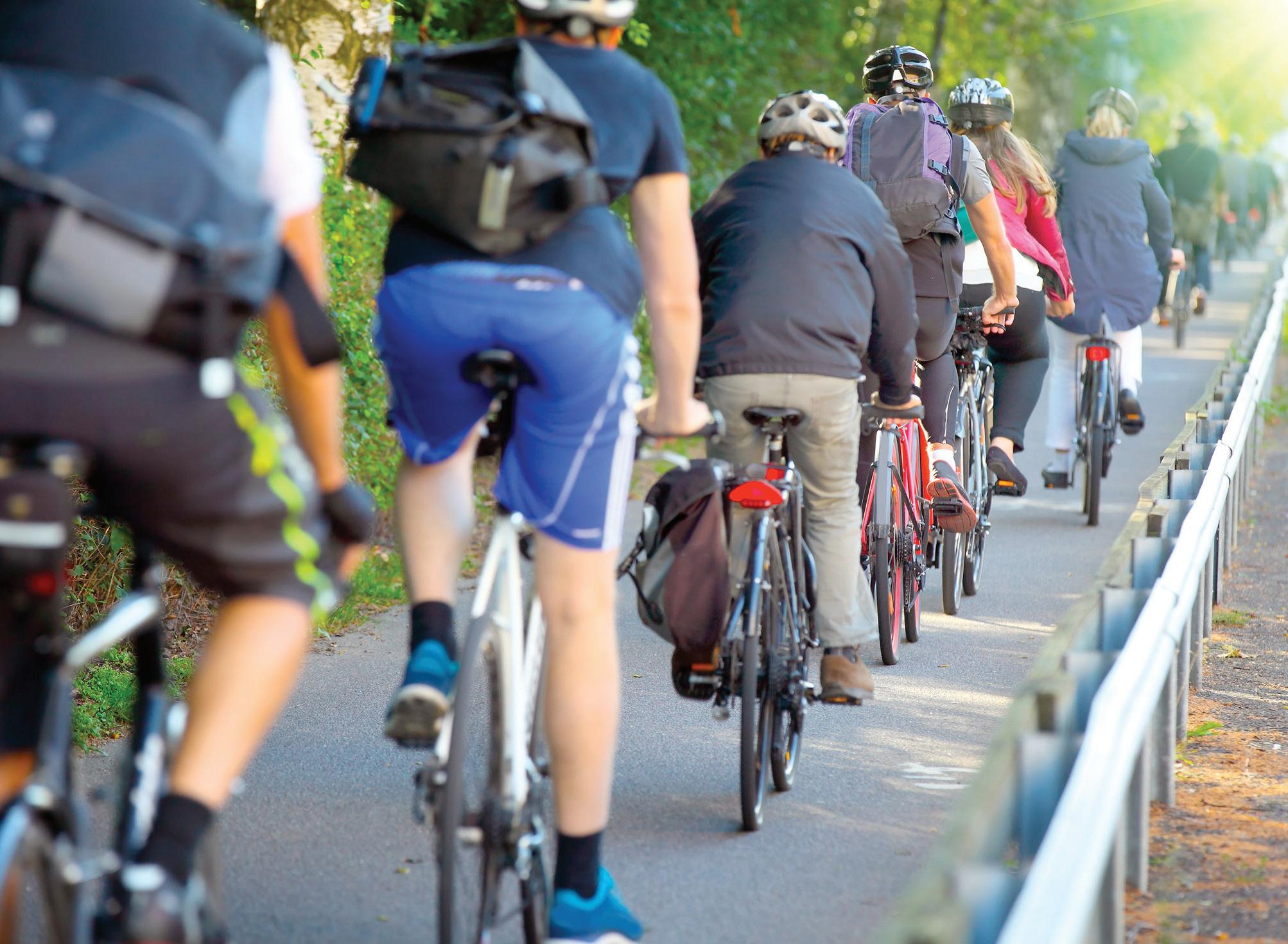
Policymakers are our target with GAPPA and this new global status report, but another important audience is the professionals, community members and parents who work with and influence those policymakers.
Things such as national policy, national measurement and monitoring, national targets and national coordination are all enabling factors for better promotion of physical activity, and their impact should filter down to the local level. But in themselves, they don’t change physical activity. They enable the three drivers of physical activity: promotion, places and programmes. We’ve measured these in the report, too: Are we promoting physical activity? Are we planning our environments to create safe places and opportunities for it? Are we creating and providing communities with the programmes they need?
This is certainly where the sport, exercise and physical activity sector comes in, as a vital part of a whole system approach to getting more people active; our Active technical package, released alongside GAPPA in 2018, provides valuable guidance on how to implement the policy recommendations.
This is also where local communities come in, holding governments to account and calling on them to deliver on the policies, directions and targets they’ve written but aren’t currently delivering on. We all need to show
39 ©Cybertrek 2022 Issue 11 2022
People need to be given more opportunities to be physically active
photo: shutterstock/Mikael
Da M kier
Ministries of transport must enable commuters to leave their cars


INTERVIEW 40 Issue 11 2022 ©Cybertrek 2022
We’ll be launching a Register of Commitments, asking industry, academics and NGOs to support implementation in their countries
PHOTO: SHUTTERSTOCK/VTT STUDIO
at home
concern and commitment to support and help create the spaces, places and communities we want to live in. We all need to create a demand for physical activity.
Any other advice for the fitness sector?
The opportunities for the sector include the enormous workforce that can be mobilised to promote physical activity, both inside and outside of gyms and clubs, to provide more opportunities. But demonstrating impact is also going to be key. Without it, we’re just asking governments for charity.
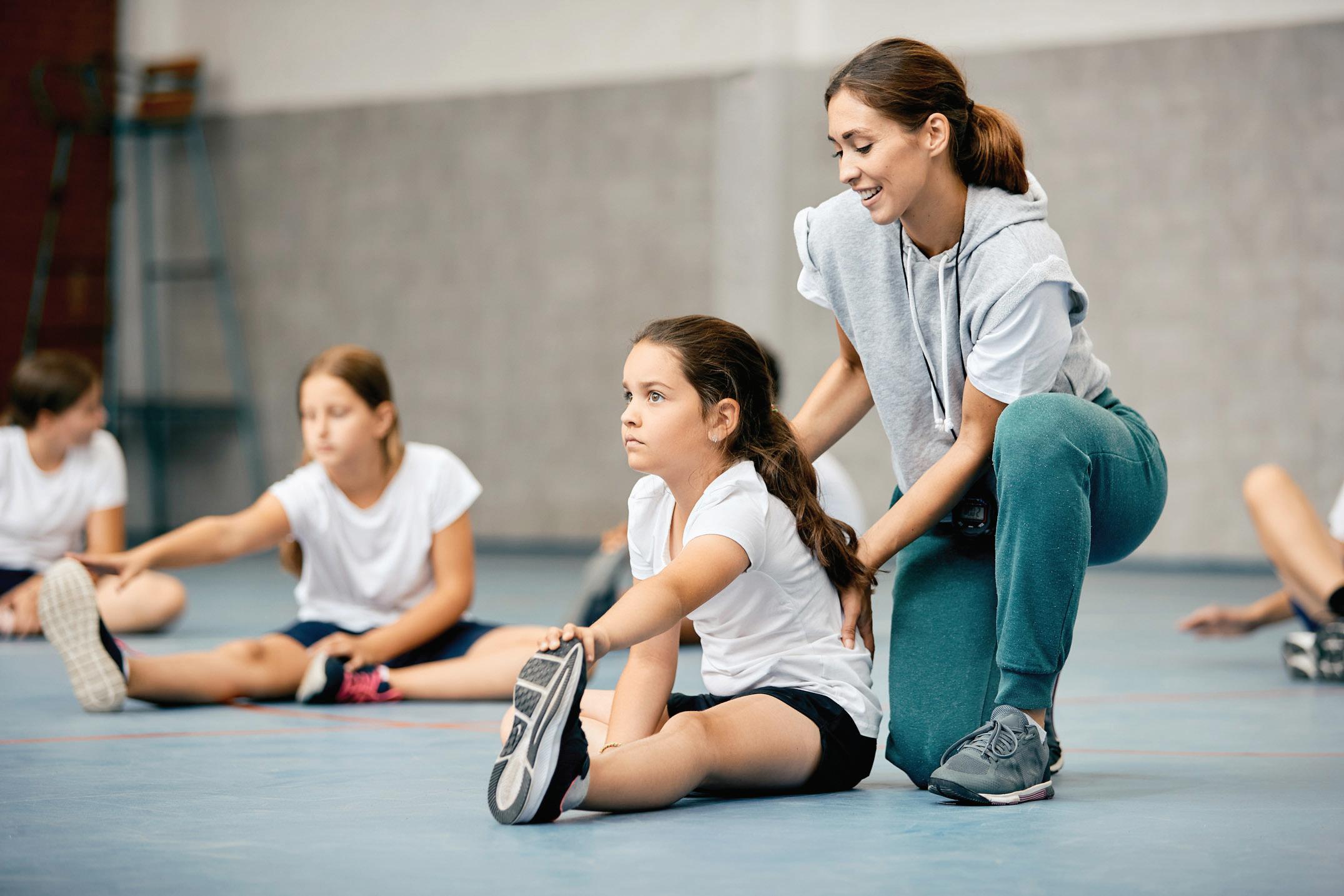
We’re already good at demonstrating the evident health benefits of physical activity, but we need to strengthen the evidence base around the wider benefits: economic, community, social, environmental. In fact, work is already underway to improve the methodologies used to demonstrate social return on investment, in collaboration with organisations, such as Europe Active.
I also call on the sector to reinvent the ways in which it promotes and provides physical activity to people of all ages and all abilities. I remain disappointed by the sector’s response to date in terms of diversifying employment, so it’s representative of all ages and all abilities, as well as its programmes and services to ensure they meet the needs and interests of more people.
There’s also an opportunity to influence governments’ prioritisation of physical activity and positively shape policy through advocacy. But here it’s vital – for

example, in discussions with the UN system and agencies such as the World Health Organization – that the industry has one clear, representative voice that can communicate the roles, directions and responses the sector can provide in promoting physical activity globally. This is my suggestion for the sector.
What are the next steps for your team?
This report is a wake-up call, providing robust evidence of what is and isn’t yet happening, and this allows us to get bolder and clearer in what we’re saying.
We’ll be launching a Register of Commitments as our next major project, asking for the commitments of civil society, academics, industry and non-government organisations to support implementation in their countries.
Maybe that isn’t clear enough; we’re trying to use plainer English at the WHO, not wrapping things up in language that isn’t needed. When we say ‘policy implementation’, what we mean is helping more countries provide more programmes, more opportunities and more safe environments for physical activity for more people.
We want to secure commitments from all those who can help, for example in supporting more local parks, more safe crossings, more cycle lanes, more opportunities to be physically active.
But I think what’s needed now is for us to show action and best practice, to motivate countries and demonstrate that it’s possible. It may seem an
41 ©Cybertrek 2022 Issue 11 2022
Learning self care must start in schools
photo: shutterstock/Drazen z igic
There’s far wider recognition now of the role of physical activity in preventing chronic disease


overwhelming task – too difficult even – but that’s not the case. As an example, we saw through the COVID-19 pandemic how quickly streetscapes could be changed, providing pop-up cycle lanes and more provision for walking, quite simply because it was needed. We’ve been advocating for this for decades, but when the pressing need was there, it happened within weeks and months.
There are already examples of countries taking positive steps, too, such as French schools adding more PE to the curriculum and Paris creating more walking and cycling areas, all spurred on by the 2024 Olympic Games.
So, we know we can do it. The next task for my team will be to share those positive examples of best practice. That will be one of our next reports.
In the meantime, I would suggest that our global status report shows the urgency and need for all of us to help make sure policy implementation actually happens.
As the Director General of the WHO said at the launch of the global status report: “Let’s get moving”. ●
WHO:

Further reading
● Global Action Plan for Physical Activity 2018-2030 (GAPPA) status report can be downloaded at www.hcmmag.com/gappa
● The Active toolkit is available at www.hcmmag.com/Active and designed to support countries in achieving the goals of GAPPA.

● Download the full global status report and watch a summary video at www.hcmmag.com/StatusReport
● See HCM ’s previous interview with Dr Fiona Bull, when GAPPA was launched in 2018 at www.hcmmag.com/FionaBull1
42 Issue 11 2022 ©Cybertrek 2022
INTERVIEW
The policy-toaction gap needs to be closed
PHOTO:
GETTY IMAGES / UNSPLASH
Giving
voice to
global fitness and physical activity industry



The COVID-19 pandemic caught the sector off guard; its impact not only redefined our way of living, but also reinforced the urgency to strengthen worldwide coordination.
In this context, the World Active Forum was officially launched in June 2021, as a platform designed to bring all stakeholders around the table, as a way to stimulate dialogue, share best practice and respond to the World Health Organization’s call to set up one clear voice for promoting physical activity at the global level. This initiative, meant to unite the sector, is based on values such as inclusiveness, transparency and accountability. All continents are represented within the Forum, and the invitation to participate remains open to all organisations from across the globe.
Rising cost of ill-health

The recently released status report of the Global Action Plan on Physical Activity 2018-2030 revealed the enormous potential burden of physical inactivity on the healthcare systems, with up to a half billion new non-communicable disease cases internationally with an annual cost of US$27bn in treatment. High-income countries are expected to be the most impacted if the situation stays the same.

The World Active Forum aims to enhance collaboration with governments and United Nations agencies, thus repositioning the fitness and physical activity sector as an integral component of the preventative health environment. The final purpose is to speak with a singular, strong voice to achieve this much-needed systemic change.
‘Four pillars’
To successfully achieve these aspirations, the current global platform will transform into a Federation, next April, during the FIBO trade show. Its structure will be based on four thematic pillars: Research and Social Impact, Gender-Equality and Inclusion, Public Affairs, and Skills and Workforce. Aiming to get “more people, more active, more often”, the World Active Federation will work towards a physically active, healthier world. This is our objective, and we can achieve this by all working together.
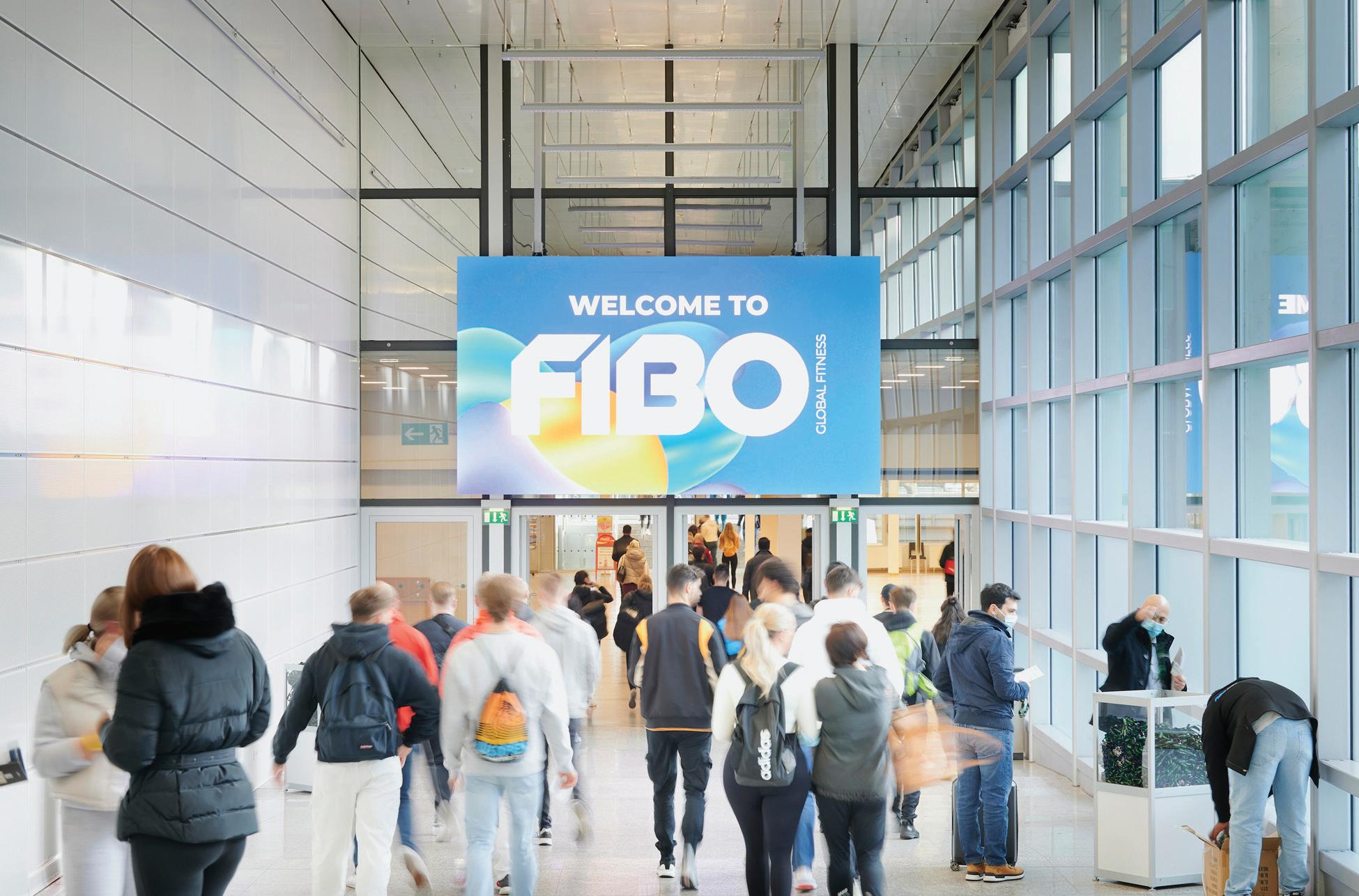
●

43 ©Cybertrek 2022 Issue 11 2022
one
the
Barrie Elvish CEO of AUSactive and interim chair of the World Active Forum
The World Active Forum will be constituted as a Federation at FIBO 2023
The World Active Federation
PHOTO: REED EXHIBITIONS DEUTSCHLAND
Women in fitness Everyone’s talking about
Health and fitness is a young, dynamic industry seeking to appeal to people of all genders, so why are women are still under-represented, asks Kath Hudson
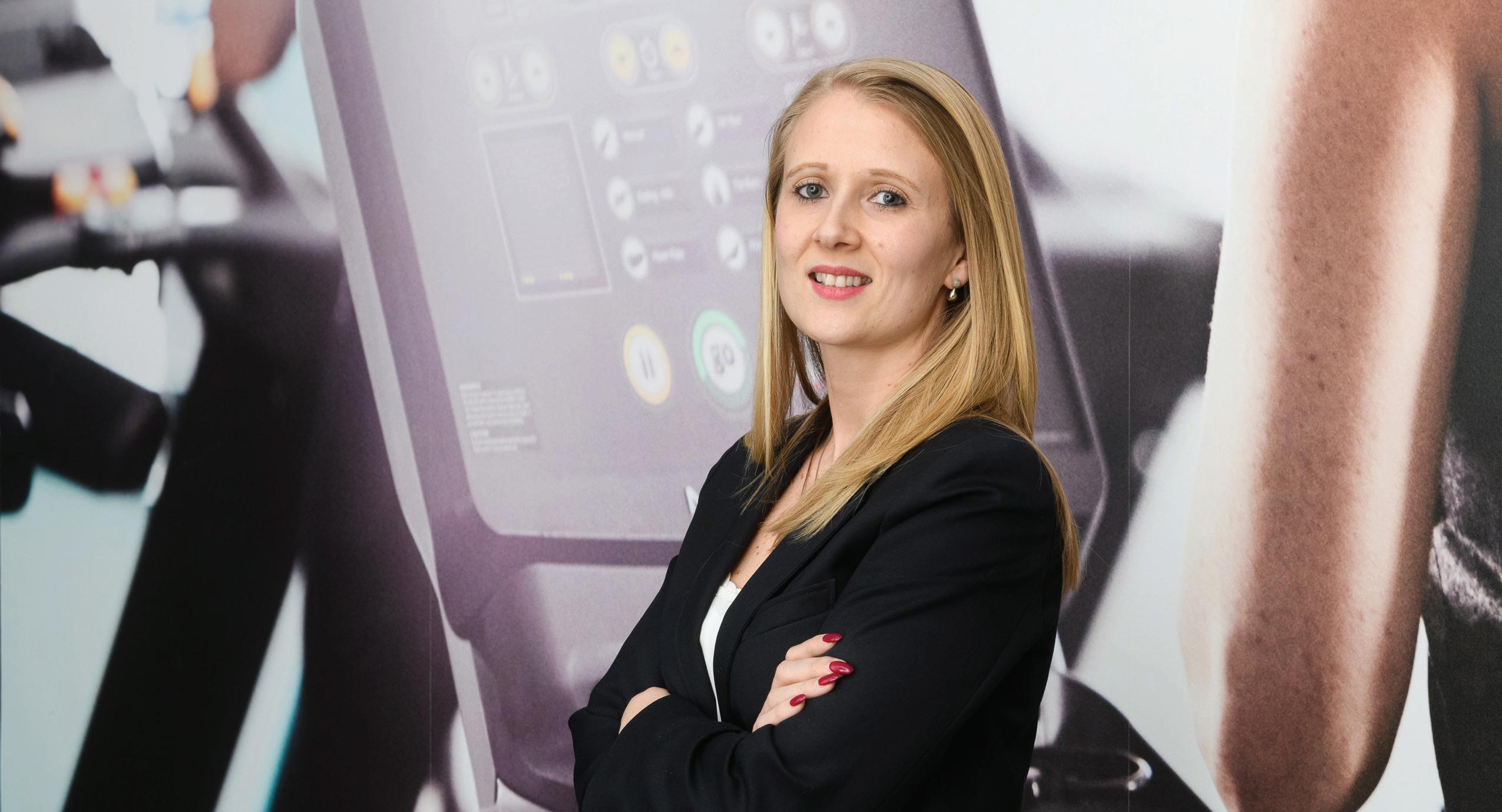
There’s been a dearth of women at a number of industry events this year and this isn’t an anomaly, research backs it up. according to the Gender Equality in the Fitness Industry 2022 report, produced by the Women in Fitness a ssociation, being a boss is still too much a male domain in this industry.
The report found men hold more leadership roles in the fitness industry than women; there are fewer career opportunities for females; men are less concerned about gender bias and the importance of equality than women and few companies are doing anything to address gender discrimination.
according to the report, 47 per cent of men have a leadership or senior role when working for a company, compared with 36 per cent of women. Furthermore, self-employed men are more likely to be club owners – 70 per cent – whereas self-employed women tend to be trainers, with only 29 per cent owning a business.
it’s time for change and as WiFa’s Jennifer Halsall says, the benefits of creating gender equity are both social and economic: “We know if women participated equally to men in the economy, it would increase the global gDp by US$28tr by 2025,” she explains.
Mck insey research shows the most diverse companies are more likely to outperform their
less diverse peers when it comes to profitability. a 2019 analysis showed that companies in the top quartile for gender diversity on executive teams were 25 per cent more likely to have above-average profitability than companies in the bottom quartile. Those companies yet to embrace diversity are already shown to be lagging. The W i Fa /Sport a lliance report identified an old boy’s club or ‘lad culture’ mentality exists in some parts of the industry – not a great advert as our sector vies with other industries to recruit the brightest talent. patriarchal structures – often as negative for young men as they are for women – need breaking down. o ver to the experts…
44 Issue 11 2022 ©Cybertrek 2022
Above: Rebecca Passmore is Pure Gym’s UK MD
photo: James m c c auley / pu R e G ym
I’m a relative latecomer to the world of fitness and remember thinking it remarkable, when I attended my first industry forum in 2015, that every panel participant was male and middle-aged! This, after all, is an industry with a lot of young participants and which endeavours to serve both women and men in broadly equal numbers.
Gender requirements should be important areas of consideration for management teams, as men and women have different habits and needs. For example, gym intimidation is a specific challenge facing women. A gym business which lacks different voices, experiences and perspectives will struggle to deliver the best proposition, making it a clear commercial imperative to have female voices at all levels.

Pure Gym was, and is, a disruptor. We’re a business that wants to tear down barriers to exercise, hence our ‘Everybody welcome’ approach and from the outset I wanted to build a company which genuinely reflects our membership base.
This is as much about policies as it is about having a collective mindset, which says we’ll be better if we’re representative of the population we seek to serve.
We want to be at the vanguard of progressive working policies, so we’ve enhanced maternity cover and introduced flexible working, which is helpful for our colleagues who have to care for others There’s no doubt this helps women with children who previously might have dropped out.
Our guiding principle is to hire the best person for the job and to find them by turning over every
stone and never compromising. At the same time we want, and need, to assemble a diverse team.
Historically, part of the problem has been that the talent pipeline has not been representative. This remains a problem in some areas, for example, tech is still male-dominated, however, guided by this approach we’re delighted to have built a top team comprising four men and four women.
Once you have more gender diversity it gathers momentum, as women are more likely to want to work at a company where they see other women, particularly senior women, who demonstrate there’s no upper limit to progress.
I feel lucky I have some of the industry’s best talent on our team, including MD, Rebecca Passmore. I knew straight away she was the perfect fit and she’s a fantastic asset for the group.
Rebecca was promoted to her role on the same day she went on maternity leave, which was impactful both for her and other women in the industry.
I would advise women to be forthright in what they’re looking for
in their careers. There’s a professional/ personal trade-off for everyone, but it’s still more challenging for women because of the way childcare duties continue to fall. However, it shouldn’t be a barrier to getting top jobs, so they should do their research to find companies that allow them to live the way they want to.
 Cobbold says management teams must be a male-female mix
Cobbold says management teams must be a male-female mix
45 ©Cybertrek 2022 Issue 11 2022
Rebecca Passmore was promoted to her role as MD of Pure Gym on the same day she went on maternity leave, which was impactful both for her and other women in the industry
Humphrey Cobbold
Pure Gym: CEO
photo: James m c c auley / pu R e G ym
CEO, IHRSA
I‘ve been a fighter and climber my whole life. I was the first person in my family to graduate from college, let alone get a Masters Degree. I arrived in Washington DC with one friend, who is now my husband, and began working for a trade association as a secretary. I volunteered for any jobs or work assignments I could get, in order to grow and learn. As a result, I quickly received promotions and responsibility. If I didn’t know how to do the job, I figured it out or asked my teammates for help. I don’t think I had to fight harder as a woman, I just decided to work harder.
Every industry I’ve ever worked in has been male-dominated, so I took every opportunity to learn from those men, find the seasoned women who wanted to help young hustlers (because not all of them did) and surround myself with colleagues who were collaborative and positive. If I was overlooked I used the energy to create a new project where I could shine, excel and be a force to be recognised.
As the first female CEO of IHRSA it feels like equal opportunity has
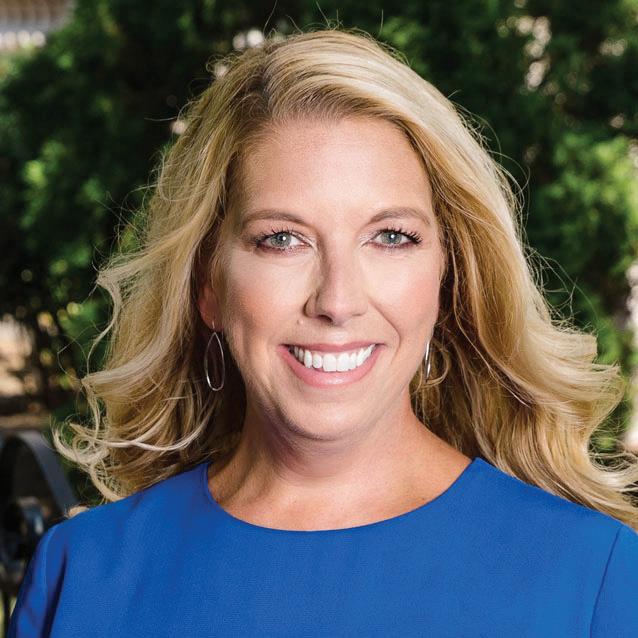

been achieved at the highest level.
Although we have a lot of work to do, I actually believe we’re ahead of many industries. Due to the nature of our industry, there is equal opportunity to join as a trainer and go on to become managers and ultimately owners. Women have pioneered methods such as yoga and group exercise and it only continues.
In addition to hard work, I’m a curious person and love learning from people, whether I’m at the gas station, the grocery store or the IHRSA annual convention. I’m also creative, which has helped to solve problems, create initiatives and grow partnerships. Empathy has lately become a buzzword and it’s a quality I try to apply to my management style. You never know what people are going through but there are ways to be demanding and kind at the same time.
Humour is also critical. Life is tough and unpredictable, but you just have to laugh and surround yourself with those who can laugh with you to get through difficult times.
I’ve had to make personal sacrifices: I have a terrible work-life balance
and don’t spend enough time with my family. Because I have a lot of meetings during the day, I need to actually get work done in the evenings. I’m doing my best to give myself the weekend, enjoy kids’ soccer games, and bike rides, but it doesn’t always work that way.
I’m also lucky because my husband, who is also in the association business, keeps our kids fed and bills paid, and it’s great to have a partner who understands it all.
I’d recommend young women say yes to any opportunity, even if it’s grunt work. Nobody starts at the top, but hard work can get you there. Surround yourself with positive people, as negative ones will hold you back.
46 Issue 11 2022 ©Cybertrek 2022
T AL k IN g p OINT
People in fitness can climb the ‘corporate ladder’ if they persist
Liz Clark
We’re ahead of many industries. There’s equal opportunity to join as a trainer and go on to become a manager and ultimately an owner
photo: S t E ph EN G o SLING / h RSA
photo: S hutt ERS tock / Mo N k E y Bu SINESS MAGES
Sophie Lawler CEO, Total Fitness

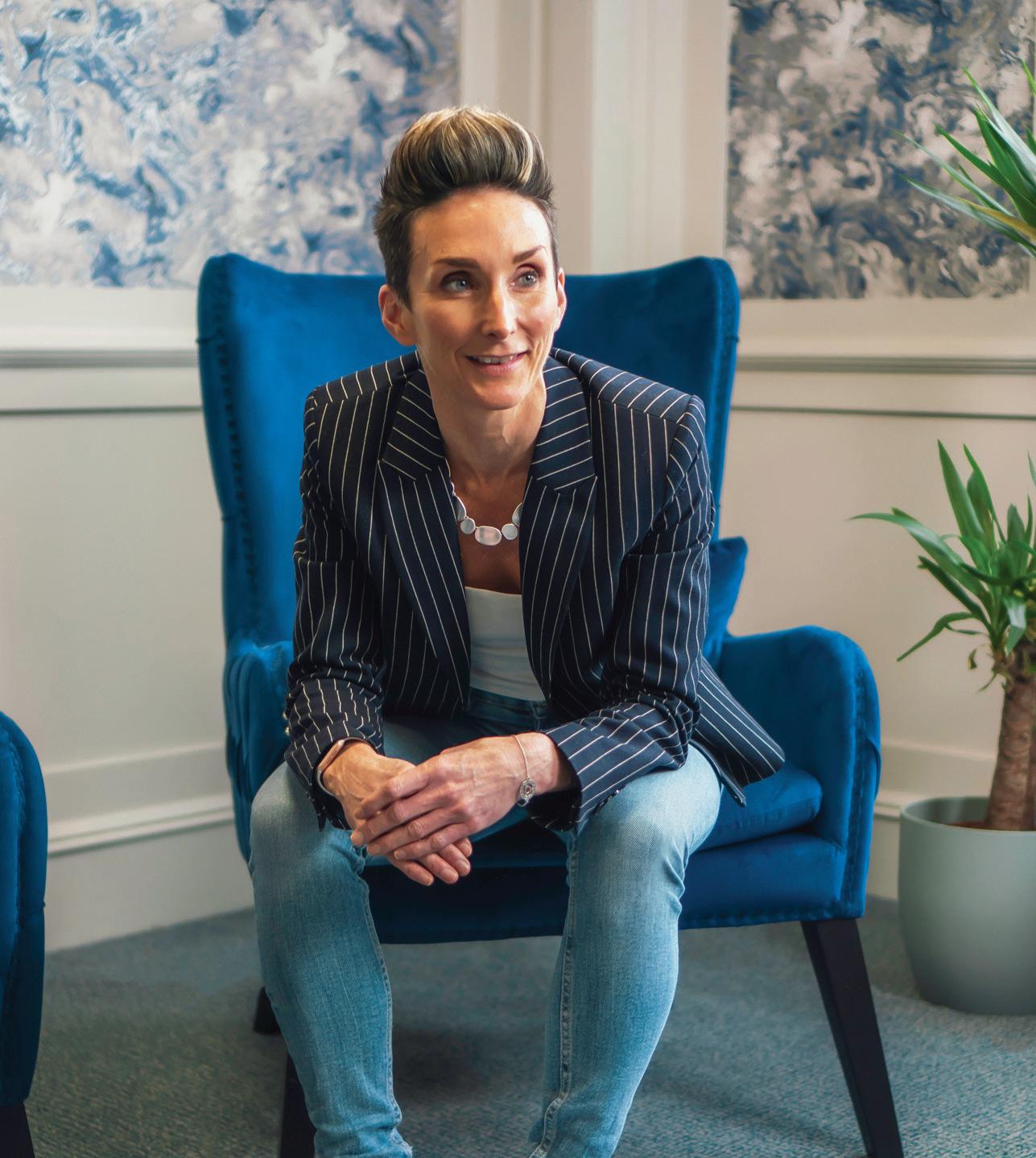
When it comes to culture and people strategy, gender equality is not –and has never been – a specific focus for me in my career, or my team. I know it’s an important topic and I feel beholden to say things that will empower and embolden women in particular, but my truth on this subject doesn’t speak to gender directly. It speaks to everyone. My specific focus is building a culture where everyone can achieve some level of personal growth, whoever they are and whatever that growth looks like for them.
People are unique and complex, so one person’s growth is different from another’s. For some, it’s about climbing the career ladder and fulfilling a senior professional role, but I know first-hand that this isn’t the case for many of our team members. Their growth could be about forging better relationships with their families, leaving a relationship that doesn’t serve them, overcoming a deep-seated fear of rejection, or saving for their first property.
I believe my responsibility is to create an environment where
they can move forwards towards whatever they choose. The general term “glass ceiling” doesn’t accommodate for that as I believe everyone has their own glass ceiling or even several. Our role is to help our team members to understand what theirs is and what, if anything, they would like to do about it.
Statistical tools are valuable, but I don’t think you can use
them to measure career growth. They are only a small part of a rich and colourful picture. And outwith the reams of data we have, I’m very proud to know that overwhelmingly our team at Total Fitness feels it is a business with a culture that feels inclusive, diverse and supportive of their growth.
Gender-specific topics – such as menopause – do have a place, and these can be best addressed by building an inclusive culture. I also think our industry should be more considerate of our women members in relation to our products, such as our gym floors and our pool halls, and how comfortable and accessible they feel.
On my path to CEO I encountered challenges, many of which were personal, not professional, and selfcreated rather than imposed. I serve the CEO role because I earned it and I’m the best person for that job.
47 ©Cybertrek 2022 Issue 11 2022
Everyone has their own glass ceiling. Our role is to help team members understand what theirs is and what, if anything, they’d like to do about it
Lawler – encouraging inclusivity and diversity
Working
to support team members to achieve personal goals
photo: tot AL FI t NESS
photo: tot AL FI t NESS
Dillon CEO, CIMSPA
Istarted my career in 1987 as a lifeguard at a leisure centre where all supervisory and management positions were held by men. I moved to another local authority for a supervisor’s role and after a few years applied for a management position. The job was given to a more junior male colleague. My manager explained it was because he was older and had more life experience than me.
That was my first experience of being overlooked in favour of a male colleague, but at the time I didn’t recognise it for what it was. I just felt crushed at the injustice of losing out to someone who was less qualified for the position. As it turned out, the role proved too big a jump for my colleague and I was given the job a few months later.

I didn’t find it particularly hard to progress in my career, and have been supported by both men and women throughout, but for too many years I was one of few female senior managers in the sector and I often felt I had to be part of the ‘boys’ club’. I wasn’t offended by it. It wasn’t malicious and I didn’t feel disrespected, I was able to hold my own and it was easier just to get on

with it, because what else can you do when you’re the only female?
But I wouldn’t want my nieces, or any other young women entering the sector, to be the only female in the group and feel compelled to be part of the boys’ club.
With hindsight, I regret not voicing this at the time, to help pave the way for the next generation of female leaders.
In another senior role I discovered I was being paid less than my male predecessor. Management said it was because he had more experience than me, yet we had the same experience. gain, I was stung by the unfairness. My response was to get a bigger and better-paid job elsewhere.
I’m competitive by nature and my sports background has taught me that you only get picked for the team if you’re good enough.
My advice to young women in the sector is to pick your spot and go for it. There’s only a glass ceiling if you choose to see it. Look for the limitless opportunities in front of you and set goals. In my 20s I was convinced I would have one of the industry’s top jobs by the time I was in my 50s, and that’s what I’ve achieved, through long-term planning.
48 Issue 11 2022 ©Cybertrek 2022 T AL k I ng po I n T
Tara
In my 20s I was convinced I’d have one of the industry’s top jobs by the time I was in my 50s, and that’s what I’ve achieved, through long-term planning
photo: Bojan Milinkov / shutterstock
photo: christian an D erson / ci M spa
All types of workplace inequality must be addressed
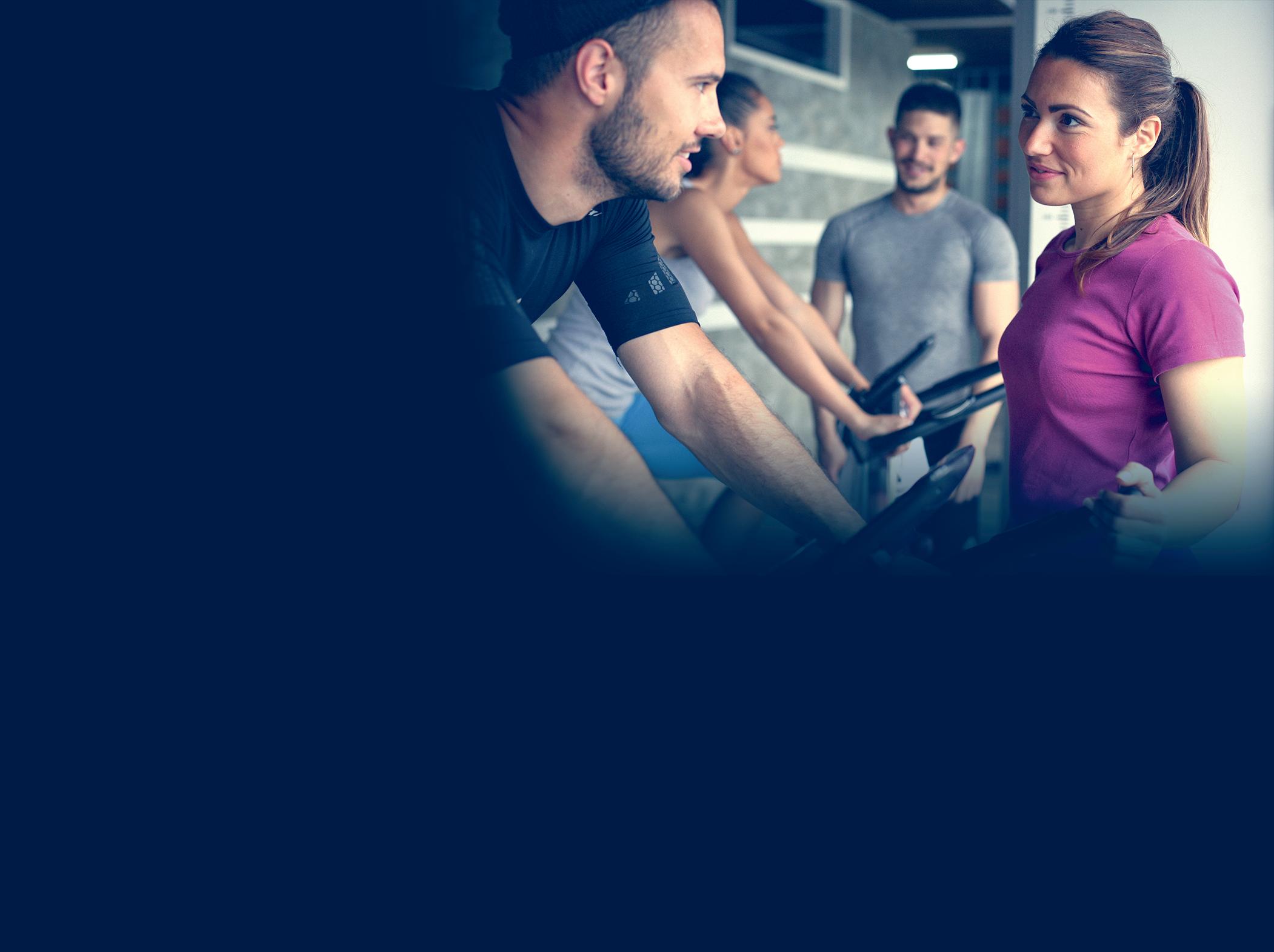


















49 ©Cybertrek 2022 Issue 11 2022 0 5 25 75 95 100 fitness compared advert 172 x 127 - dec 2022 15 December 2022 16:05:39 By FitnessOnDemand ® SO1O FEATURES: • Turnkey Virtual Fitness Station • 43“ Screen with Multi-Touch Technology • Minimal Space Required • 500+ Workouts from Top Industry Brands All-in-one virtual fitness station with over 500 guided workouts available at your members’ fingertips. Contact us to request a demo! fodvirtual.com
CEO, Alliance Leisure Services

Ilaunched Alliance Leisure Services (ALS) in 1998, shortly after the birth of my third child. Previously, I was assistant direct services organisation manager at Bristol City Council, when public sector leisure was built around the traditional model of a sports hall, swimming pool and gym. The sector was behind the private leisure offer, but couldn’t access funding for development, so I saw a gap to sell funding mechanisms to local authorities for their leisure facilities. I couldn’t do a spreadsheet, but I knew I could improve public leisure.
Aligning myself with Life Fitness, my first project was facilitating £1m for Hull City Council, whose funding for three leisure refurbishments had fallen through at the last minute. That was our launchpad, without that lucky break I’m not sure ALS would be here 23 years later. Now we have 45 employees and still work with some of our earliest clients.
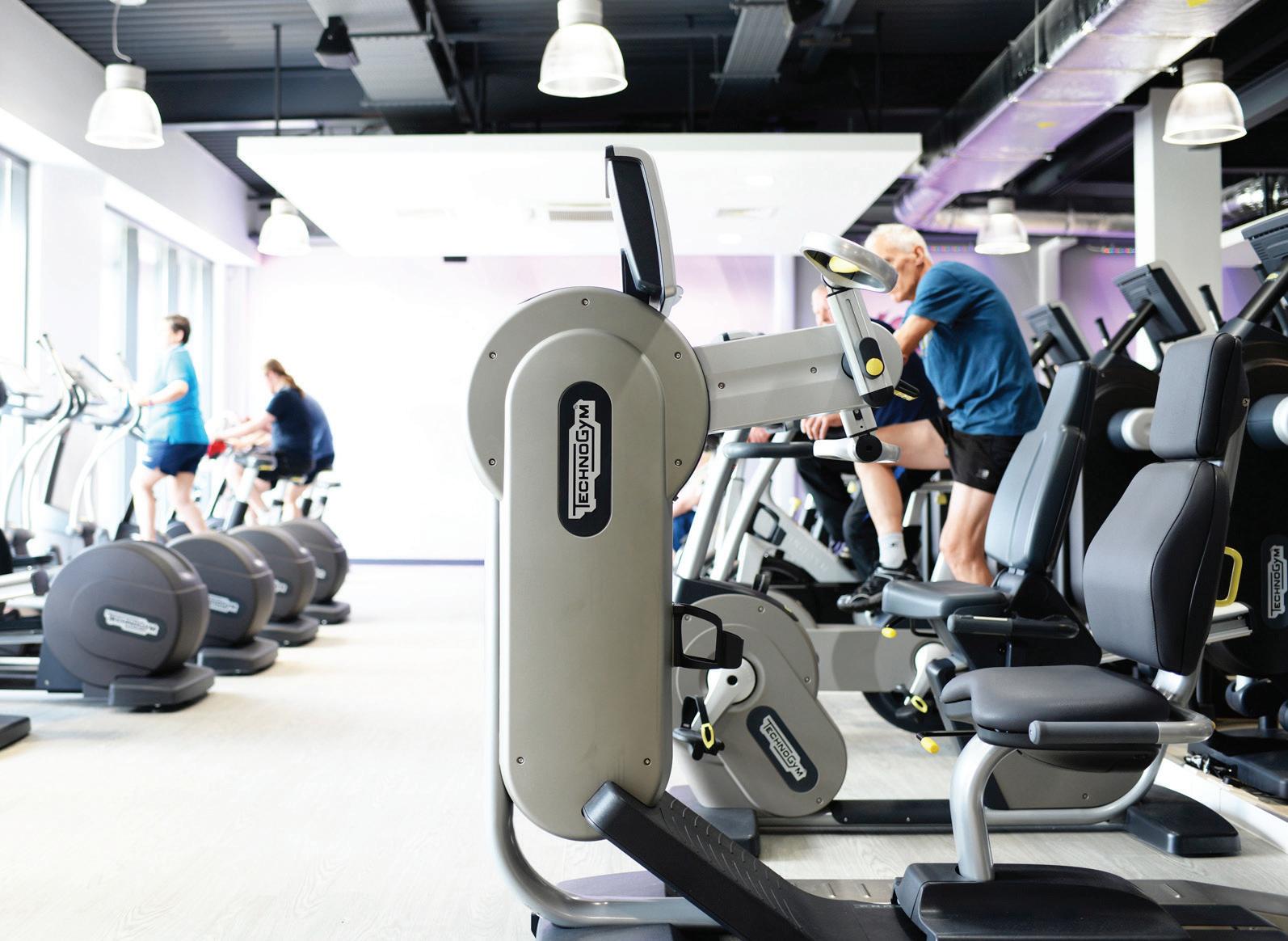
Back then the sector was incredibly male-dominated, with most of the CEO, finance and legal positions held by men. I’d walk into a meeting with my number two, Paul Cluett, and the clients would automatically ask him the questions.
I’ve made minor sacrifices along the way. For example, missing my daughters in their Christmas productions – although I made 80 per cent of them – and working at night after they were tucked up in bed. Overall, the sacrifices weren’t that great and my daughters say they always felt they were my priority.
Generally, I find women diffuse situations: I don’t do business with testosterone. I’m tenacious, patient, humorous and balanced. My staff describe me as inspirational, entrepreneurial, bonkers, loyal and fair. I’ve nurtured the business, and the team, as a mother. As a result, the company respects our people and appreciates they have lives outside the business. I understand what they’re going through with children, elderly parents and so on, because I’ve been there myself. I encourage the team to keep off work emails after 6.30pm and at weekends. Everyone needs a good work-life balance. Myself, I never switch off, but I’m not a workaholic.
My advice for ambitious young women in the fitness sector is to find something you love, it’s easier to be great if you’re passionate. Don’t feel defeated if you get knocked back. Believe in yourself and your abilities, and find a great mentor. I still love my job and am hugely excited for Paul and I to steer ALS through its next phase of unprecedented growth.
Talking poin T
I’d walk into a meeting with my number two, Paul Cluett, and the clients would automatically ask him the questions
Sarah Watts
Watts: ‘I nuture the business and team as a mother’
Watts says passion and ability can shine through
photo: Alli A nce l esiure services
nce
eisure
photo:
Alli A
l
services




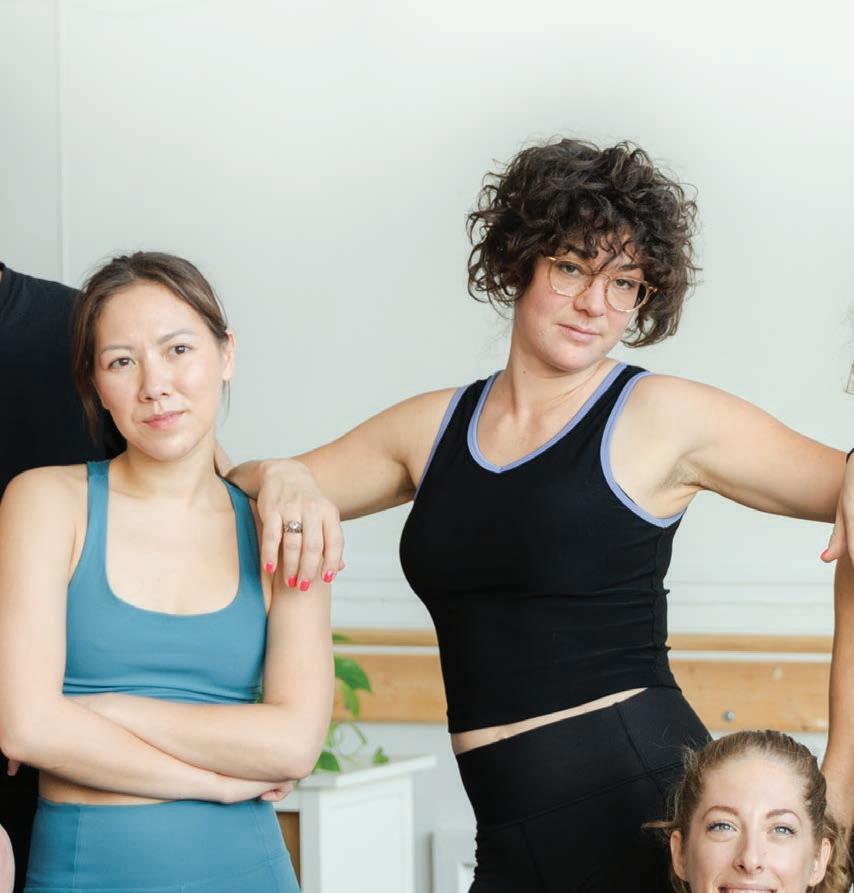
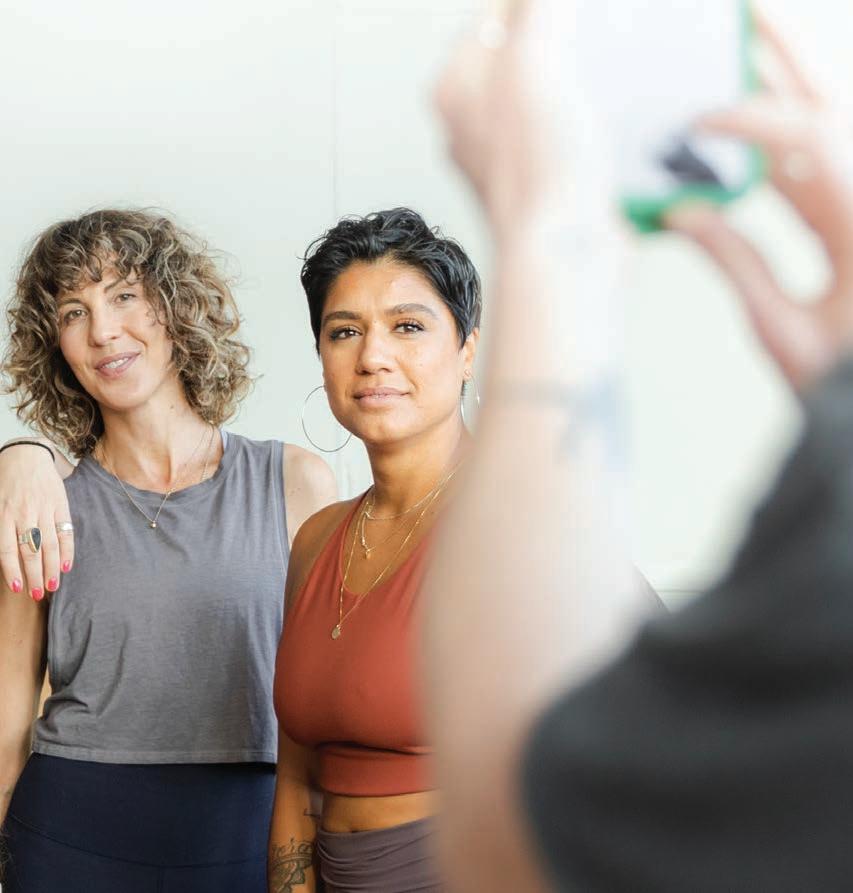
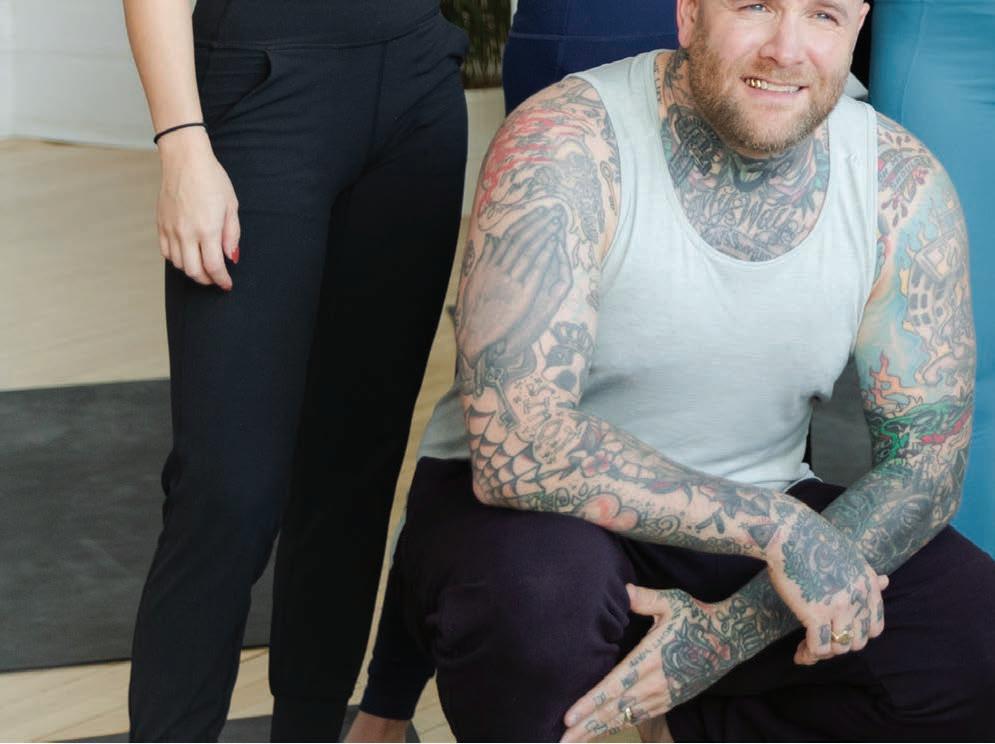
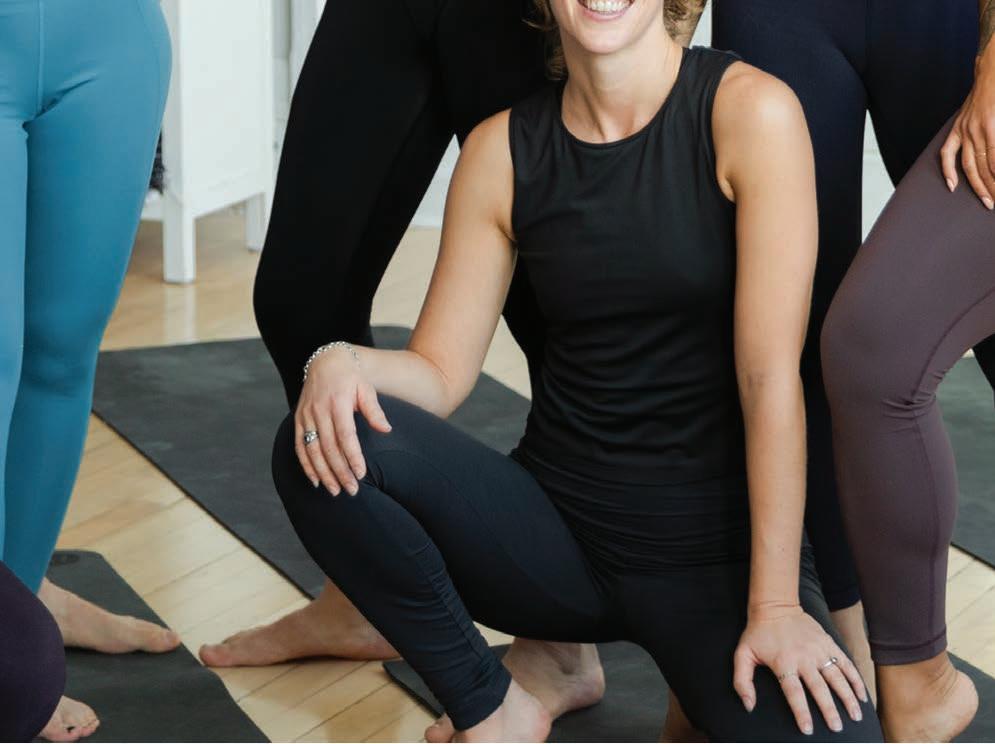
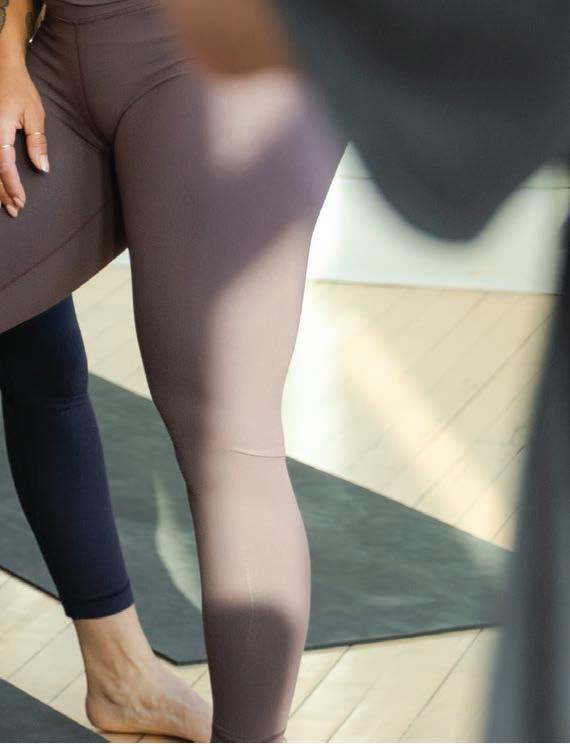
There’s only one studio like yours. Everything you need to run—and grow—your business. There’s only one software like ours.
book a demo or learn more, visit uk.mindbodyonline.com
To
REGENERATE
Gen Zers are about to surpass millennials as the biggest generation on earth and their attitude to wellbeing is a game changer, as Miranda Markham reports
When you think about today’s youngest workers, you could be forgiven for jumping to stereotypes about entitled young people rejecting the idea of hard work. After all, members of the so-called “Snowflake” generation – which encompasses anyone who became an adult after the 2010s – have been routinely criticised in the media for their lack of resilience, unwarranted entitlement and willingness to abandon traditional jobs.
However, a new report from corporate wellbeing platform Gympass has found that despite Gen Z’s reputation for shirking hard work, they’re actually happier and more engaged than many of their older workmates.
The State of Work-Life Wellness ‘22 report is based on a survey of 9,000 employees across nine countries, including the US, UK and Brazil, and uncovers insights regarding how employees feel about workplace happiness, burnout, productivity and employee engagement. The report outlines findings, as well as trend predictions for 2023 and offers recommendations for business leaders to integrate into their work policies.
Key findings
The report found that in the UK, 75 per cent of Gen Z workers are happy at work, compared to just 60 per cent of the over-50s. What’s more, Gen Z are three times more likely to rank wellbeing at work as important when compared to the older workforce.
The early fitness industry grew parallel with the coming of age of Baby Boomers and Gen X (those born from the mid-1960s to 1980) and the model was designed to meet their needs as a result, but today, with millennials and Gen Z making up a huge chunk of many health club memberships, it’s important operators continue to evolve to keep pace with the

52 Issue 11 2022 ©Cybertrek 2022
WELLNESS
health club
growing expectations of today’s youngest consumers. When done right, it presents an opportunity for operators to get a larger slice of the corporate market.
Data from the State of Work-Life Wellness ‘22 report showed Gen Zers have their own perspectives on careers and how to define success, both in life and work. Wellbeing is cited as a top priority for Gen Z employees, with 83 per cent saying it’s on a par with salary. This is a major shift in mindset and one to which both companies and wellness operators should pay attention.
According to the research, people of this generation are 20 per cent more likely to engage with employee benefits packages than older colleagues. They’re also three times more likely to rank wellbeing at work as critically important when compared to colleagues aged 50+.
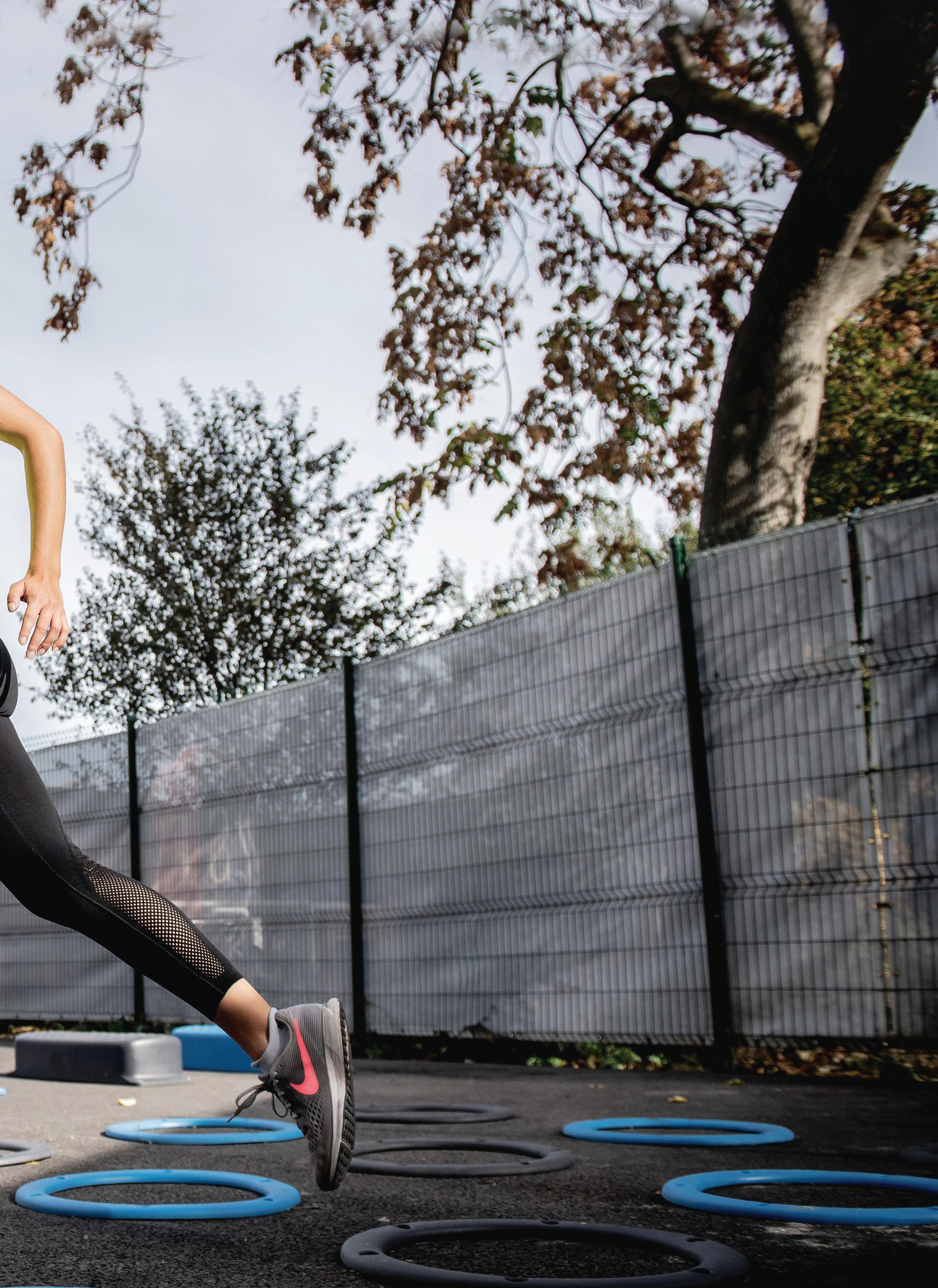
“The pandemic changed people’s approach to wellbeing but it appears this has been felt most with the youngest workers,” said Gympass’s Luke Bullen. “They’re reassessing their relationship with work in a way older generations never did, prioritising their own wellbeing and taking stock of what they want out of their employment.
“Today, young people are simply not content with jobs they deem unsatisfying or potentially harmful to their health and they’re not shy about sharing these expectations with their employers.”
Marketing messages
It's important to note health and wellness mean something different to this generation. Health isn’t just about regular visits to the GP or going to a class at the gym, for Gen Z, health is holistic and they instinctively integrate health and wellness into their everyday lives. They’re also happy to leverage technology to support their health, easily adopting things such as connected fitness and wearables.
53 ©Cybertrek 2022 Issue 11 2022
With millennials and Gen Z making up a huge chunk of
memberships, operators must evolve to keep pace with their expectations
83 per cent of Gen Z employees, see wellness options as being on a par with salary
PHOTO: GABIN-VALLET / UNSPLASH
Fast facts Gen Z at work
Gen Zers are happier at work than the over-50s
They’re three times more likely than older workers to rank wellbeing at work as important
Gen Z employees cited an improvement in their wellbeing in 2022, unlike employees over 50
Wellbeing is cited as a top priority for many Gen Zers, for 83% it’s on a par with salary
Burnout is no longer attractive to the next generation of workers
Young people are not simply rejecting hard work, they’re prioritising their own wellbeing

Gen Zers are speaking more publicly about the role of work in their lives.
Gen Z chooses fitness as a way to build mental fortitude, resilience and a healthier mindset
When it comes to marketing to this generation, operators should take note. Focusing exclusively on fitness gains will fall flat – marketing should focus on overall wellness, including things such as anxiety, stress management and mindfulness.
Gen Z was raised during times of political and economic turmoil, and this has had a knock-on effect on how they view work and health. Data from the report showed that 77 per cent of Gen Z employees would consider quitting if their company didn’t focus on employee wellbeing. This number provides context alongside recent news of trends such as ‘quiet quitting’ and the ‘Great Resignation’.
“On the surface, it may look as though young workers are quitting their jobs when things get tough,” says Bullen. “But our data shows that the reality is actually more nuanced. More young people are ranking health and wellbeing as a number one priority and they want employers who take this seriously. Corporate wellbeing packages need to cater to these changing needs.”
Improved wellbeing in 2022
Encouragingly, the report showed that Gen Z employees cited an improvement in their wellbeing in 2022, unlike employees over 50 years of age. As Gen Z comes of age amidst a global pandemic, this might come as a surprise, but while this generation reports greater instances of stress, they’re also more likely to talk about it, take action and prioritise their own health and wellbeing.
“Hustle culture is on the decline,” says Bullen. “Burnout and grinding to exhaustion is no longer attractive to the next generation of workers. This
85 per cent of Gen Z are more likely to stay in a job where the employer focuses on wellbeing
54 Issue 11 2022 ©Cybertrek 2022
W E lln E ss
opens doors for employers to offer a package of health resources and services that actively encourages employees to invest time in their wellbeing. When this is done well, employee loyalty will undoubtedly increase.”
Adapting fitness for Gen Z Gen Z will soon surpass millennials as the most populous generation, with more than a third of the world’s population among its number. But for many businesses, the habits of this generation remain mystifying.

“Businesses need new employee engagement tactics in light of this changing demographic,” says Bullen, “So it’s important to question the current narrative. Young people are not simply rejecting hard work and indulging in leisure. They’re actually just prioritising their own wellbeing and speaking more publicly about the role of work in their lives.
“There’s an undeniable mind-body connection that makes fitness a critical tool in mental health and overall wellbeing,” he says. “Gen Zers often choose fitness as a way to build mental fortitude, resilience and a healthier mindset. That’s why fitness options and marketing that focus on mental health will often dominate the Gen Z market.
“Gen Z is changing the fitness industry in a very big way”, says Bullen. “While change can be intimidating, it also presents an opportunity for business leaders to capitalise on Gen Z trends, needs and aspirations. People inherently test and optimise until they find what works for them in fitness and employers should look to support their employees in this process.” l More: www.hcmmag.com/StateofWLW
55 ©Cybertrek 2022 Issue 11 2022
Young people are prioritising their own wellbeing and speaking more openly about the role of work in their lives
photo: logan-weaver / unsplash
Holistic wellbeing
The Ministry, located in Southwark, is an impressive workspace from the founders of legendary music brand, Ministry of Sound. Members benefit from office space where they can hotdesk and enjoy cultural programmes, events, a bar and terrace and the opportunity to network with entrepreneurs, founders, CEOs and creatives.
The Ministry membership originally included access to a boutique studio, but members needed a space to train and access to classes that suited their schedule, so a new gym was installed within the main building a few years ago.
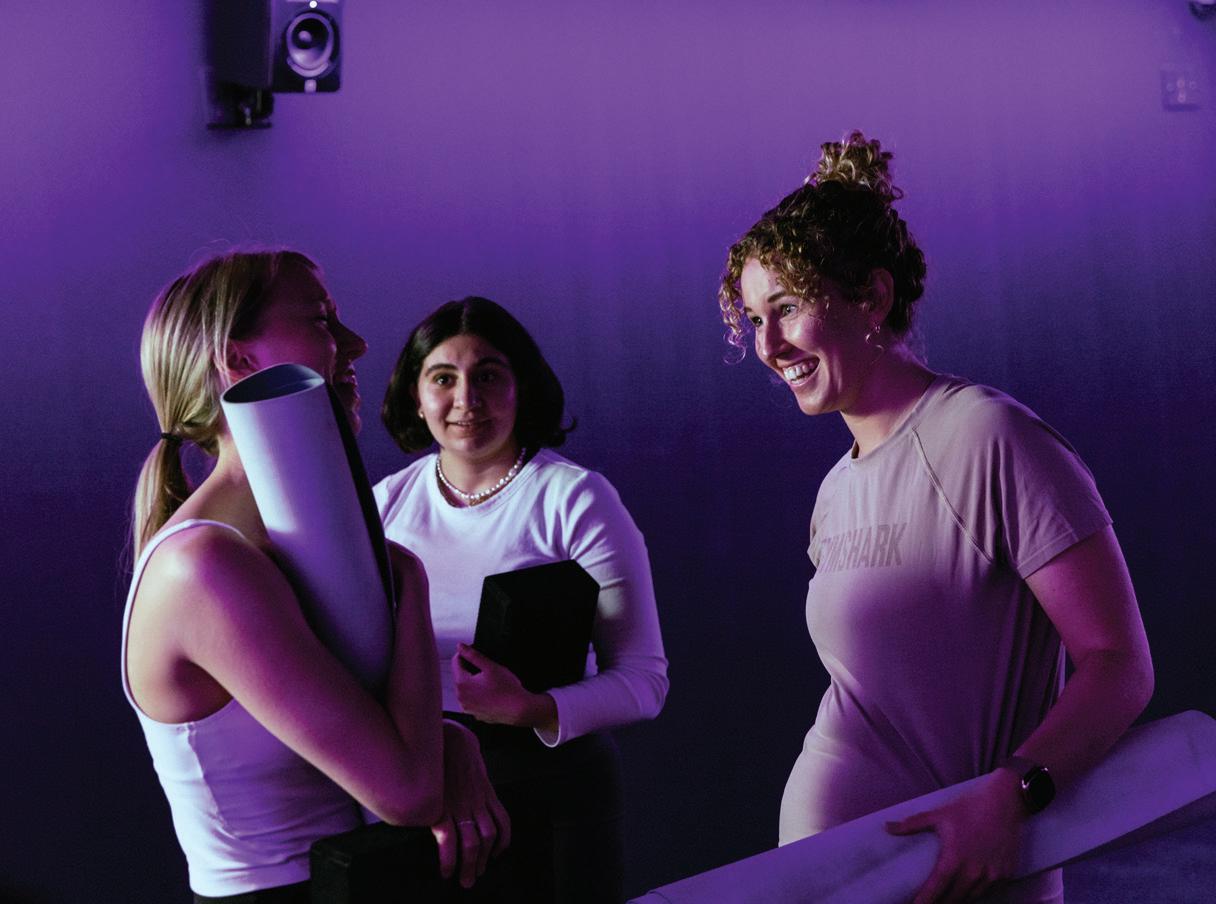
In the pursuit of always improving every minute detail, Ministry has now refurbished the gym and increased its footprint, so members have access to a bigger and more versatile facility.
Kate Corfield, Ministry’s head of fitness development, says it was vital for the space to have a world-class fitness offering.
“We know that when workplace wellness is done well, it has a huge impact on people’s emotional and social wellbeing,” she says. “We were
determined to create a fitness space of such amazing quality, it would not only rival our workspaces as a reason to join, but would also significantly improve our members’ quality of working life.
The Ministry has revolutionised the concept of office gyms with the brand’s approach to décor, lighting, and customer experience. The refurbished space features a large gym floor, fitness studio, an area for holistic therapies and space for educational workshops around fitness, nutrition, wellness and even dog therapy.
“Everything we do for our members supports a holistic approach to their success and wellbeing,

SPONSORED
The Ministry is aiming to set the standard for the best-in-class workplace wellness gym in London
MINIS t RY o F S o UND
photo:
Technogym is a reputable, reliable brand that members trust
Kate Corfield
Wellness and socialising are fundamental to the offering
photo: MINIS t RY o F S o UND

The Ministry set out to revolutionise the concept of a corporate gym
57 ©Cybertrek 2022 Issue 11 2022
photo: MINIS t RY o F S o UND
Networking and co-working sit alongside the fitness offer

and this goes way beyond the gym and studio,” Corfield says. “The refurbishment was a chance for us to up our game with a world-class workspace gym for members to use whenever they want.”
Compelling benefit
She continues: “The Ministry’s new gym is equipped to such a high standard some members say it’s now their main reason for joining, while others are quitting their existing gym to join. PTs are also getting in touch to train their clients in this space.
“This represents a significant shift in the workspace model, which has traditionally led with office space, meeting rooms and communications tech as the most compelling offer. The strength of The Ministry’s fitness offer shows how serious the brand is about nurturing physical and emotional wellbeing at work.”
The Ministry gym is included in membership, which Corfield says is proving to be a huge benefit to members and to recruiters who are leveraging the gym offer to attract and retain talent.
Partnering with Technogym
Corfield and her team scoured the market to identify the best fitness kit and chose Technogym Skillrun and Skillmill machines. She says: “Skillrun is the best on the market. It offers so much versatility for individual training, PT and small group circuits that we’ll never have to compromise on quality, and Technogym is helping us deliver on this promise.”
The gym serves people with different goals and experience levels, with the advanced functionality and user-friendly connectivity of Technogym Skillmill and
Skillrun helping all users get an effective workout. And as Corfield says, Skillrun’s aesthetics make it a prime candidate for sharing on members’ social media feeds.
Mywellness – connecting colleagues
Technogym Mywellness is a key part of the digital member journey at Ministry. “It’s a great tool for members who need the support of a virtual trainer, and adds a friendly level of competition between colleagues who can show up on each other’s Skillrun screens,” says Corfield.
“Technogym is a reputable, reliable brand that members trust,” she says. “For me, it’s about all the ways Technogym goes above and beyond, with support such as the maintenance plan and team training.
“As a female in this industry it’s a pleasure to work with people who respect you – Technogym’s attitude throughout our partnership has been refreshing.”
After the success of The Ministry’s new gym project, the team is now planning an exciting new development at its Shepherd’s Bush location in West London, which will once again offer a combination networking, fitness and wellness for an ultra-modern take on co-working spaces. l
More: www.technogym.com
58 Issue 11 2022 ©Cybertrek 2022 SPONSORED
Technogym’s attitude throughout our partnership has been refreshing
photo: MINIS t RY o F S o UND
Kate Corfield

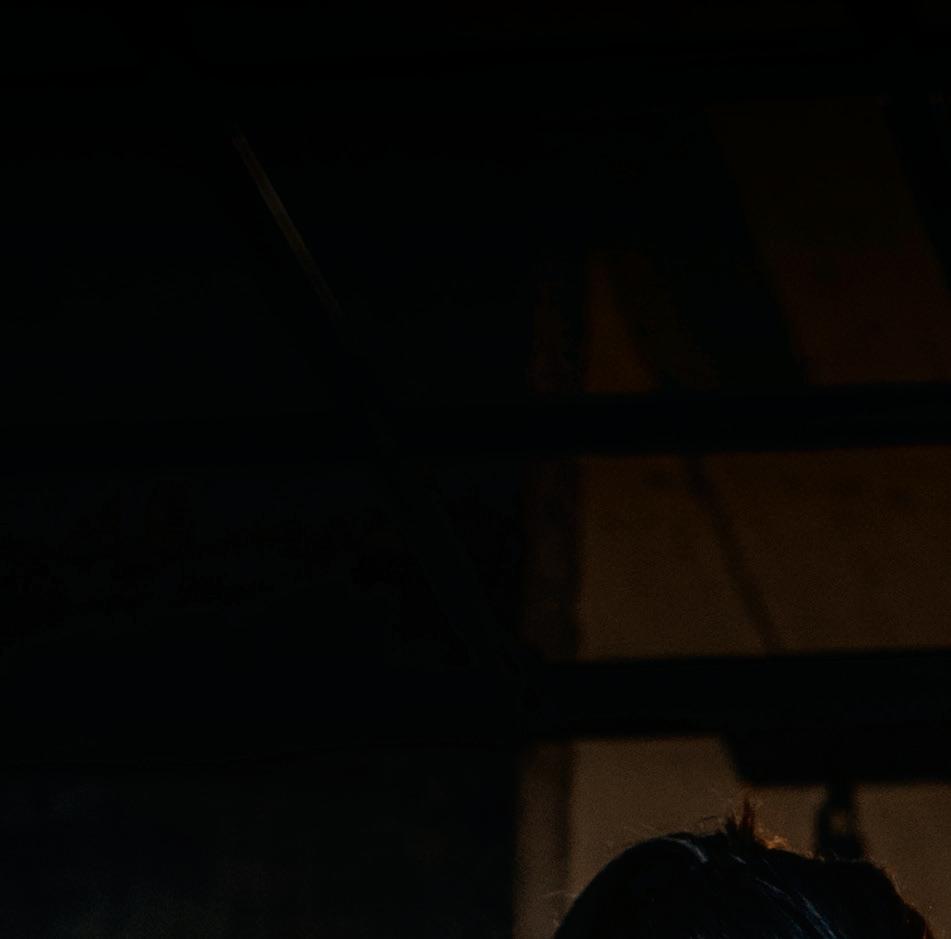
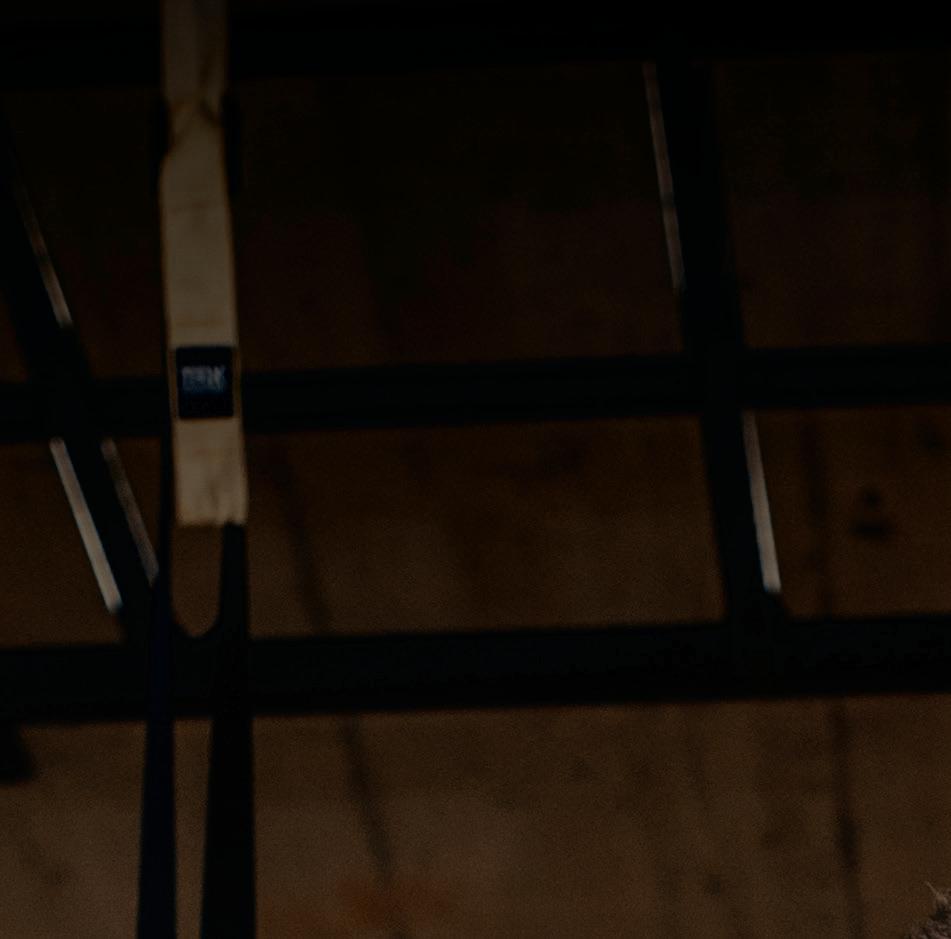






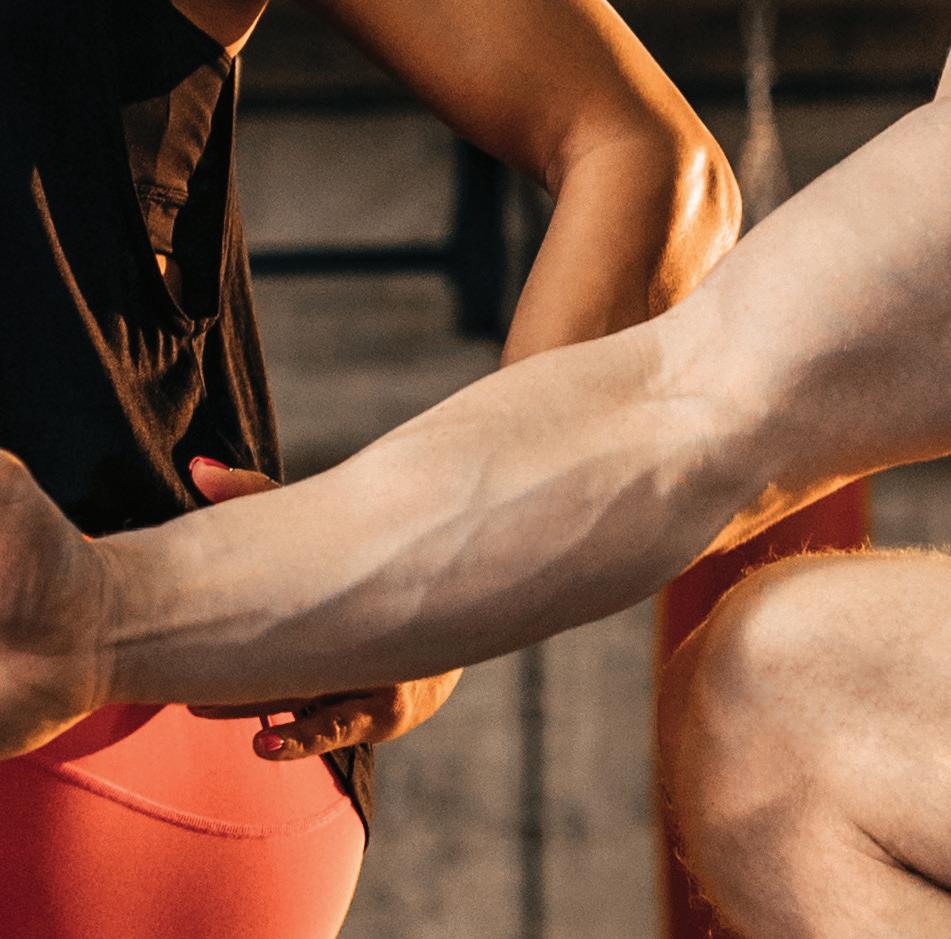
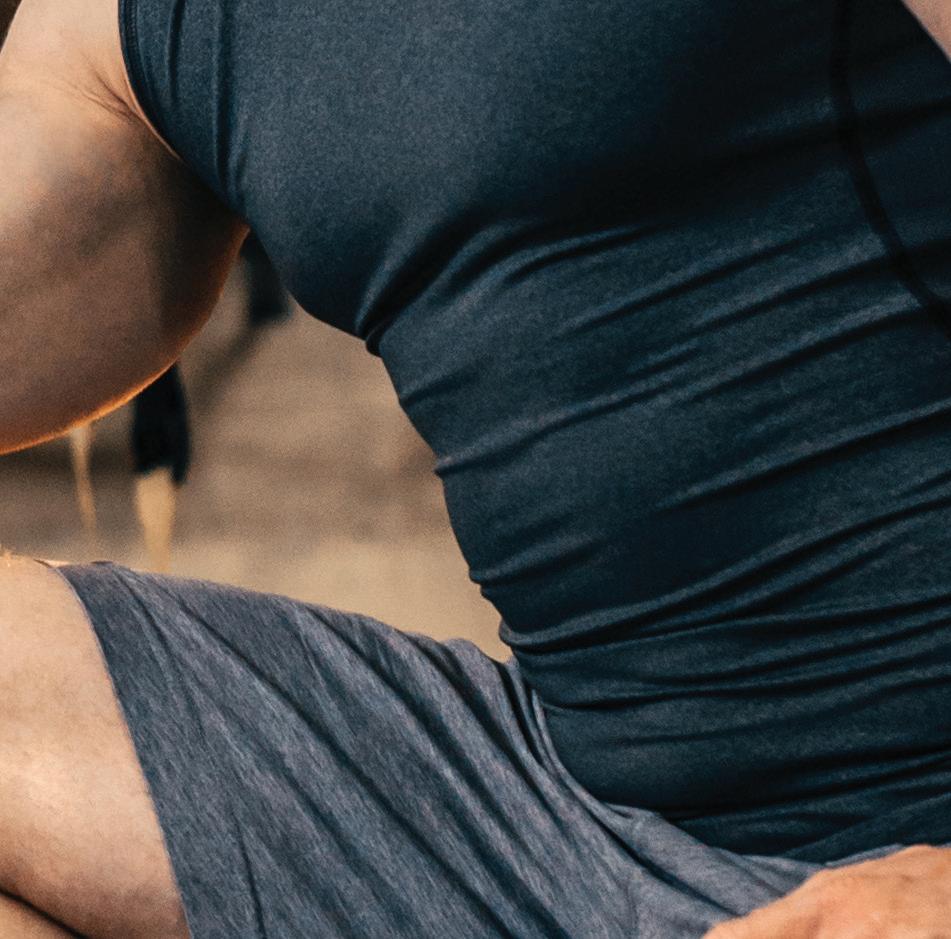









Keeping business moving. THE UK'S FITNESS, SPORTS THERAPY AND PHYSICAL ACTIVITY TRADE SHOW 14-15 JUNE 2023 | EX CEL | LO NDON www.elevatearena.com
Digital
futures
The presence of digital services in fitness and leisure may seem a given in today’s market, as consumer demands and expectations accelerate in all areas of life. But as health club and leisure operators continue to evolve and develop their services it’s inevitable that they find themselves at different stages of the journey.
UK Active and Sport England have published the second edition of the Digital Futures report to support operators in accelerating their digital strategies. It provides an update on the digital maturity and effectiveness of the sector, with operators using UK Active’s free Digital Maturity and Effectiveness Index Tool to get their score and advice about next steps.
The findings are based on consultation with 93 public and private sector operators, representing
more than 1,800 sites across the UK and serving an estimated 4.5 million consumers nationwide. Using more than 6,700 data points, analysts from consultancy Rewrite Digital were able to provide a year-on-year measure of progress for the sector, while also benchmarking it against other sectors.
The publication was supported by UK Active and its strategic partners, E Gym, Gladstone, Les Mills, Myzone, Technogym and Xplor, and forms part of UK Active’s Digital Futures strategy, in partnership with Sport England.
The report provides a series of strategic and practical recommendations for operators of all sizes to improve their approach. These include advice on developing a digital strategy, personalisation, gaining consumer insights, delivering customer experiences, and digital inclusion.
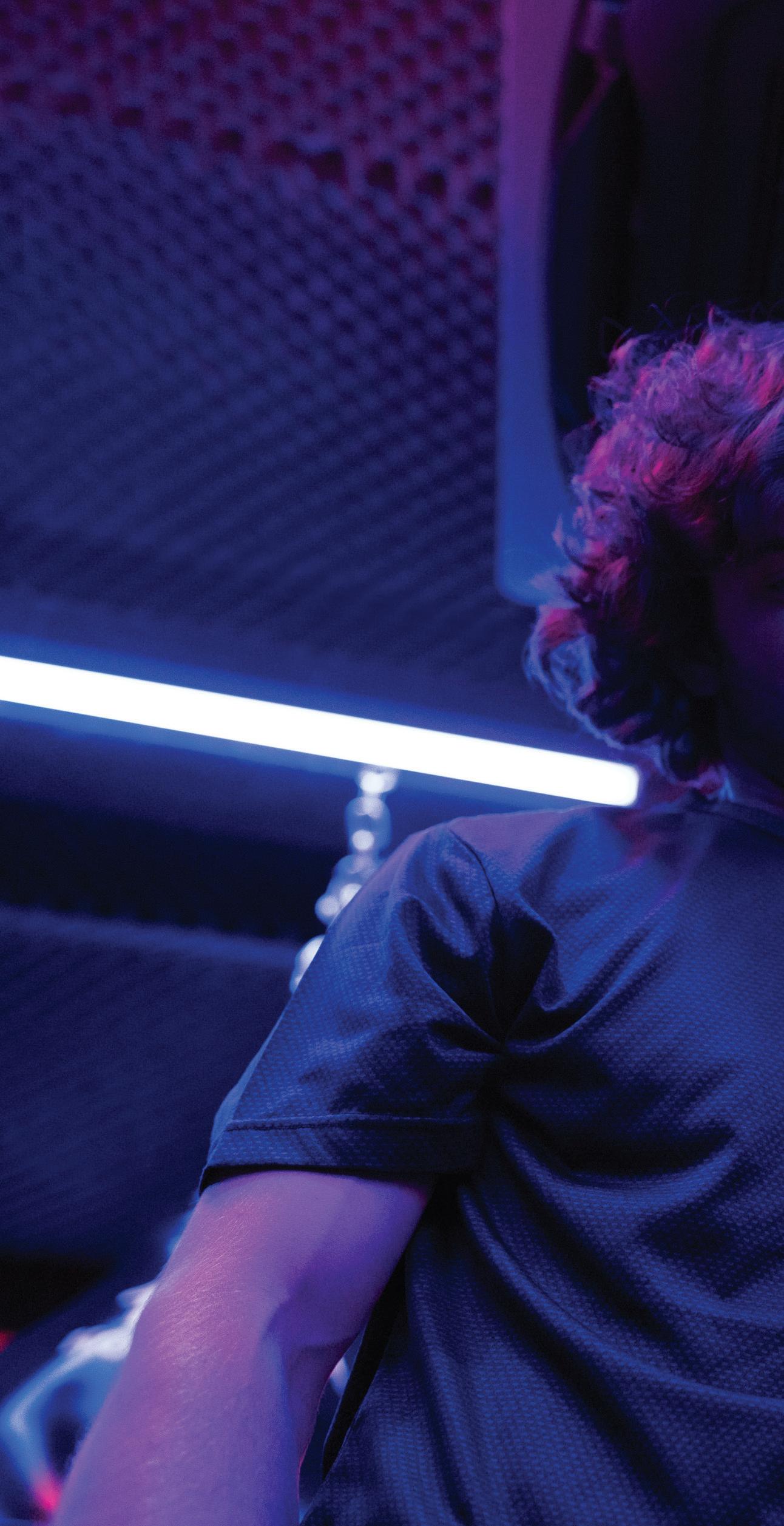
TECH 60 Issue 11 2022 ©Cybertrek 2022
Whether you’re a digital experimenter or a digital leader, 2023 will be a pivotal year in the sector’s tech transformation journey say
Gerrish
The sector’s appreciation of the value of digital is growing stronger, with 46% investing heavily in 2022 vs 34% in 2021
David
and Jon Reay
Here, we answer some of the burning questions for the future of digital in the sector.
What does the latest Digital Futures report tell us about the sector’s digital maturity?
The overall score for the sector this year is 51 per cent, placing it in the ‘Digital Experimenter’ percentile. This means operators are making advances in digital but needs ongoing investment to keep pace with – and respond to – consumer demands.
The average score doesn’t tell the full story, however, as the sample was very diverse, with three ‘Digital Leaders’ scoring 80 per cent or more, versus nearly a quarter (24 per cent) of operators scoring less than 40, showing a huge gap between those who are harnessing digital and those who are falling behind.
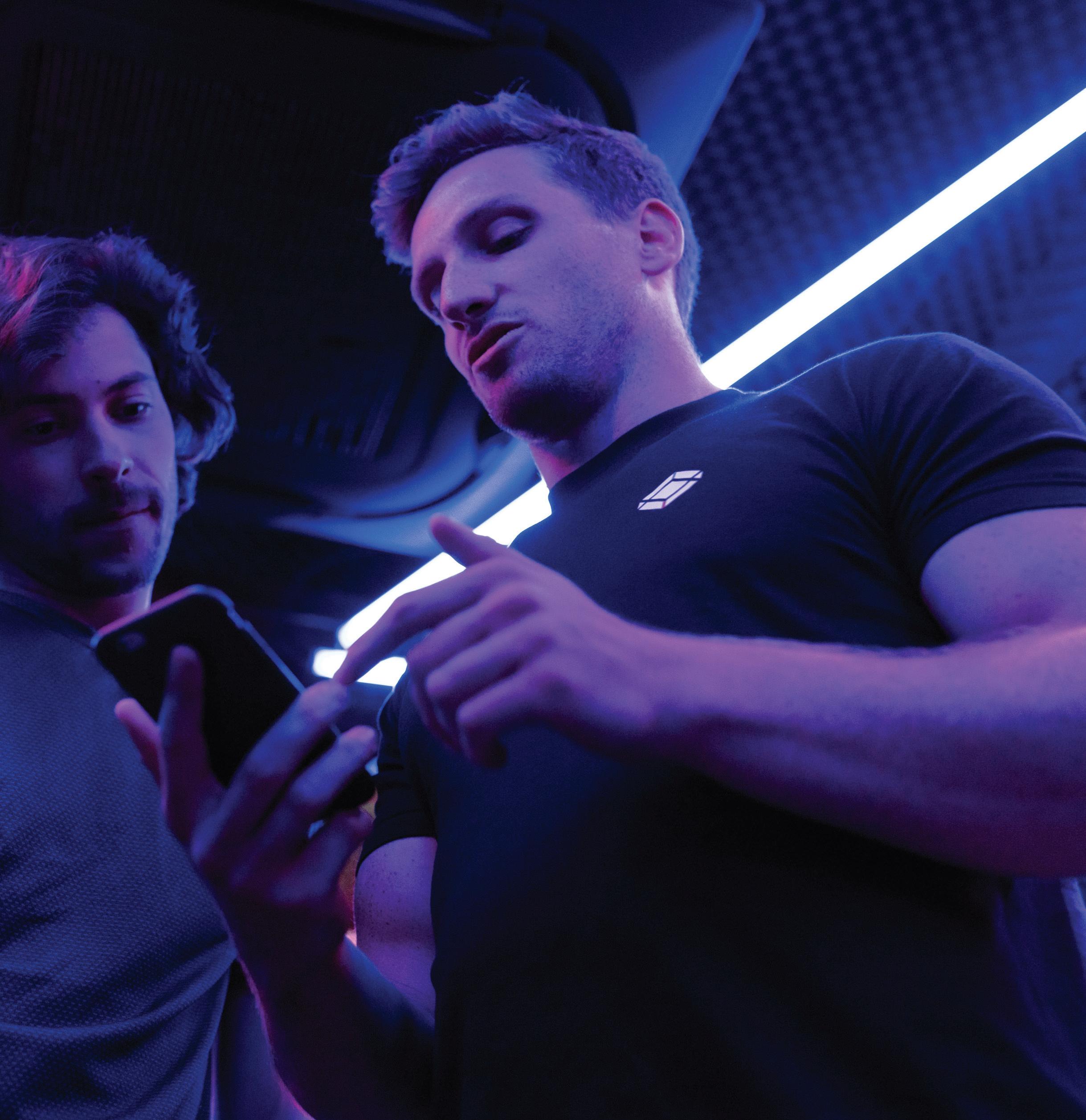
The sector’s overall appreciation of the value digital can have in enriching consumer experiences is growing ever stronger, with 46 per cent saying they’re actively and/or heavily investing in digital compared to 34 per cent in 2021. Digital Future’s role is to elevate the whole sector, so there’s work to do here.
Why has there been a drop in the sector’s overall digital maturity score?
Last year, the score was four percentage points higher at 55 per cent, but this doesn’t necessarily mean digital is less of a priority.
There are a number of possible reasons for this drop. The course of the pandemic will have impacted results, with the reopening of physical facilities reducing some of the dependency on
61 ©Cybertrek 2022 Issue 11 2022
Successful operators are using tech to drive back of house and customer-facing systems
photo: thisisengineering/raeng/unsplash
digital services, while the cost of living crisis has forced businesses to review their own expenses and focus their resources in ‘essential’ areas, which has slowed innovation for some operators.
We also saw higher participation among smaller operators this year and they tend to score lower.
In some cases the greater the knowledge and understanding of digital, the more accurate and realistic – and sometimes lower – the score.
What are the key trends you’re seeing following your consultations in 2021 and 2022?
Top-scoring operators surpassed 2021’s highs in 2022 and the increase in participation from operators demonstrates the greater importance of digital for the sector as a whole.
This year we’ve also seen increased investment in digital and in digital skills and mindsets, as well as the first operators using machine learning in business process automation.
Overall, however, a smaller percentage of operators have a digital strategy than we saw reported in 2021 and systems are still holding operators back.
In response to new questions for this year’s consultation and report, half of operators say they know about the needs and expectations of their customers, but just 15 per cent say the same about their target non-customers. There’s a greater appreciation of the value front-endfacing consumer experiences have when it comes to enriching membership value. There’s also low awareness and adoption of open data.
Which parts of the sector are performing best and what can others learn from this?
The ‘Digital Futures’ cohort of operators – what we call the operators who participated in both the 2021 and 2022 Digital Futures consultation – have performed better on average this year compared to last year and compared to the sector overall.
As with last year, private operators score higher than public operators for all areas of digital, with university operators scoring lower still. The size of the operators surveyed also heavily influences their digital score, with larger operators scoring significantly higher in all areas of digital.
Operators can’t change their size or public/ private status but they can all benefit by engaging with the Digital Futures programme and taking advantage of its free Digital Maturity and Effectiveness Index Tool to help inform improvements in their digital strategy.
How does the health and fitness and leisure sector compare to other sectors? We’re not alone in facing these challenges, but we can also learn from other, arguably more advanced, consumer-facing sectors such as retail, entertainment, and financial services, when it come to how they’re using digital.
In comparison with other sectors, digital skills adoption in fitness and leisure surpasses that of small businesses in other sectors, while operators’ perceived stage of digital maturity and level of progression beats charities and other non-profit organisations. We’ll continue to benchmark against
TECH 62 Issue 11 2022 ©Cybertrek 2022
We can learn from other, arguably more advanced, consumer-facing sectors such as retail, entertainment, and financial services, when it come to how they’re using digital
 Operators are increasingly hiring data analysts and using machine learning to drive decision-making
photo: adam nowakowski/unsplash
Operators are increasingly hiring data analysts and using machine learning to drive decision-making
photo: adam nowakowski/unsplash
other sectors in future years to see how we make gains on sectors that are more digitally mature.
What are the incentives for organisations to improve their digital effectiveness today?
Digital effectiveness is tied to business outcomes such as revenue, member acquisition and retention and cost efficiencies, as well as societal value, so there’s a clear incentive for giving it attention and investment.
Operators that have participated in Digital Futures have seen growth in their digital maturity and effectiveness. There’s no cost for operators when it comes to checking their score using the Digital Maturity and Effectiveness Index Tool, to see where improvements can be made and access resources to help grow their score.
To use this tool, go to www.hcmmag.com/digitalscore.
What are the implications for inclusion and reaching a wider audience?
The digital divide is an unintended consequence of progress and the development of digital transformation and modern life online.
We need to be mindful when a product, service, or customer engagement touchpoint becomes digital-only as we run the risk of excluding consumers who lack basic digital skills, don’t have access to devices or an internet connection, or disabled consumers who may need accessibility features and tools to support them.
While operators claimed they’re more inviting to those consumers who are new to the sector when compared with last year, fewer operators said that they’re providing alternative means of engagement to digital, risking higher rates of digital exclusion among user groups without access.
What’s the next step for Digital Futures? This is a programme for the sector, by the sector, so we encourage operators and suppliers to reach out and tell us what they think will benefit their organisations.
The Digital Futures 2022 report provides 12 important recommendations for how health and fitness operators can enhance their digital effectiveness. As with the 2021 report, two consistent themes have emerged: firstly, the need for greater collaboration to share best practice and case studies to support investment and secondly, simplification to allow operators to maximise their investment, support existing members and increase participation.

64 Issue 11 2022 ©Cybertrek 2022
TECH
photo: p URE GYM
Working alongside Europe Active, UK Active will continue to offer operators practical support in growing their digital maturity
Three operators achieved Digital Leader status, although individual operators were not identified in the study
Additionally, UK Active has been asked to provide further digital knowledge upskilling and – within a crowded marketplace – some form of evaluation of the effectiveness of digital interventions.
UK Active, alongside Europe Active, will continue to offer operators practical support in growing their digital maturity and effectiveness and next year we will once again conduct an operator consultation to build on 2022’s benchmark.
2023 will be a pivotal year for the strategy, as UK Active widens its reach to incorporate all ecosystem partners that connect to the delivery of leisure, fitness and community programmes. In order to influence all touchpoints of the physical activity ecosystem, we will broaden engagement
to the national governing bodies for sport in the UK, the Active Partnership Network, and a wider representation of industry suppliers. We’ll also be benchmarking with operators in territories outside the UK to learn from global leaders.
With that in mind, the Digital Futures team asks all operators that have yet to participate in the review of their digital maturity and effectiveness to do so as soon as possible.

We look forward to continuing to build the digital maturity of the sector in 2023 and beyond. l David Gerrish is strategic lead for digital at UK Active, and Jon Reay is CEO and founder at Rewrite Digital
To read the Digital Futures 2022 report visit: www.ukactive.com/reports/digital-futures-2022
65 ©Cybertrek 2022 Issue 11 2022
Organisational Model Performance & impact Data & insights Digital experiences Accessibility Inclusion & satisfaction 0 20 40 60 80
2022
On average the
scored the same or higher in 2022 vs 2021 in all areas of digital *Operators that participated in 2021 and 2022 Digital Futures consultations
2021
Graph 1
Digital Futures cohort*
Queensland’s legislature quickly established a health-focussed taskforce to work with all industries to develop sector-specific COVID-19-safe protocols




66 Issue 11 2022 ©Cybertrek 2022
SHUTTERSTOCK/MARTIN
PHOTO:
VALIGURSKY
essential status Gyms enjoy Queensland
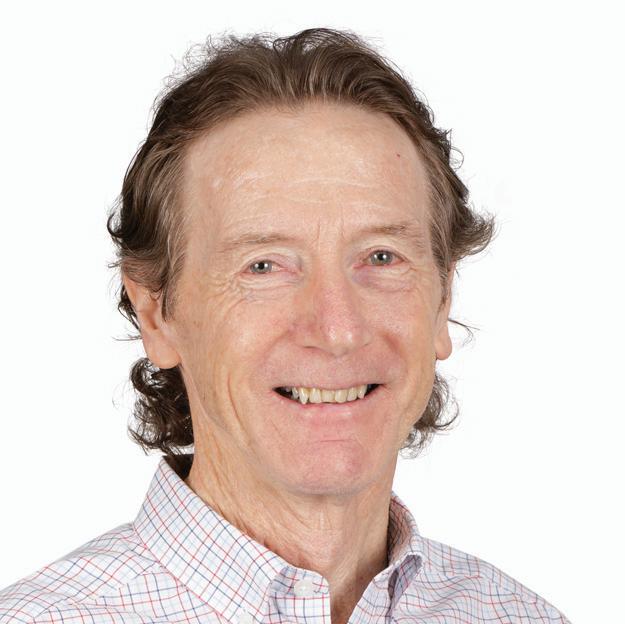


As a federated nation, all Australian states dealt with the impact of COVID-19 very differently. Responses varied from Western Australia – which blocked the entry and exit of other Australians – to Victoria, which imposed the severest, most prolonged lockdowns in the Western world. Australian state governments, and indeed the national government, classified all indoor physical activity as occurring in a “gym”, meaning the perceptions and subsequent treatment of the sector was wildly inconsistent. In March 2019 all “gyms” were closed indefinitely, including facilities that only offered dance, Pilates, tai chi and yoga. No consideration was given to either the relative or actual risks associated with any of these different regimes.
Irrational justification
Despite credible evidence to show the low risk of COVID in gyms, what followed was an at times irrational justification for the blanket closures of all these facilities; it seemed to many that a convenient scapegoat had been
The state of Queensland in Australia gave gyms essential status following extensive collaboration with trade body Aus Active. Barrie Elvish shares the background
Jetts operates in Queensland, where fitness is a priority
photo: Jetts Gumdale Queensland
identified in the form of the closure of the activity sector to enable health authorities to appear decisive and strong in their responses.
One state government stood its ground, however, as Queensland’s legislature quickly established a health-focused, crossdepartmental taskforce and charged it with working with all industries to develop sector-specific COVID-19-safe protocols.
The state – home to Brisbane, the Gold Coast, the Sunshine Coast, the 2023 Olympic Games and the Great Barrier Reef – engaged constructively and expeditiously with Aus Active (under our previous guise as Fitness Australia) and worked with us to develop an appropriate code of safe practice for indoor facilities.
The consultation process worked so effectively that of all industries, fitness and exercise was the first to have its COVID-safe suggestions ratified by Queensland’s state government.
Queensland led the way It’s worth noting that although all other states undertook some form of industry engagement, none was as comprehensive or consultative as Queensland and this state’s proactive responses have enabled Aus Active to have an ongoing dialogue with health authorities as the COVID saga has evolved over the past two years.
At this juncture, it’s important to understand that exercise, physical activity and fitness in all its iterations is compartmentalised at both Australian federal and state level under Departments of Sport and Recreation.
We are not sport, of course, but that’s a story for another time.
During the lockdowns across Australia, similar to other countries, heads of our health authorities – often flanked by politicians –frequently reminded us that we could legally only venture outside for one of four reasons, medical appointments, critical shopping, going to work – if working from home was not feasible – and outdoor exercise. Fitness or visiting the gym was not classed as a valid reason anywhere but Queensland, which stood alone in supporting the sector.
The irony of promoting the importance of exercise while shutting indoor facilities and thereby denying exercise to the 30 per cent of Australians over the age of fifteen who nominate gyms as their preferred exercise venue, seemed lost on most bureaucrats, including chief health officers.
The move to essential status Our ongoing and productive dialogue with Queensland Health (www.health.qld.gov.au), combined with evidence-based research commissioned by Aus Active, culminated in a statement in November 2021 when Queensland’s chief health officer announced that access to gyms was ‘essential’ for Queenslanders – both vaccinated and unvaccinated – in being able to maintain good physical and mental health.
This move to essential status is a critical mindset breakthrough that needs to be leveraged nationally and we’re working hard to extend this policy to all areas of Australia.
68 Issue 11 2022 ©Cybertrek 2022
POLICY
Queensland announced that access to gyms was ‘essential’ for both vaccinated and unvaccinated people in being able to maintain good physical and mental health
Body Fit Training
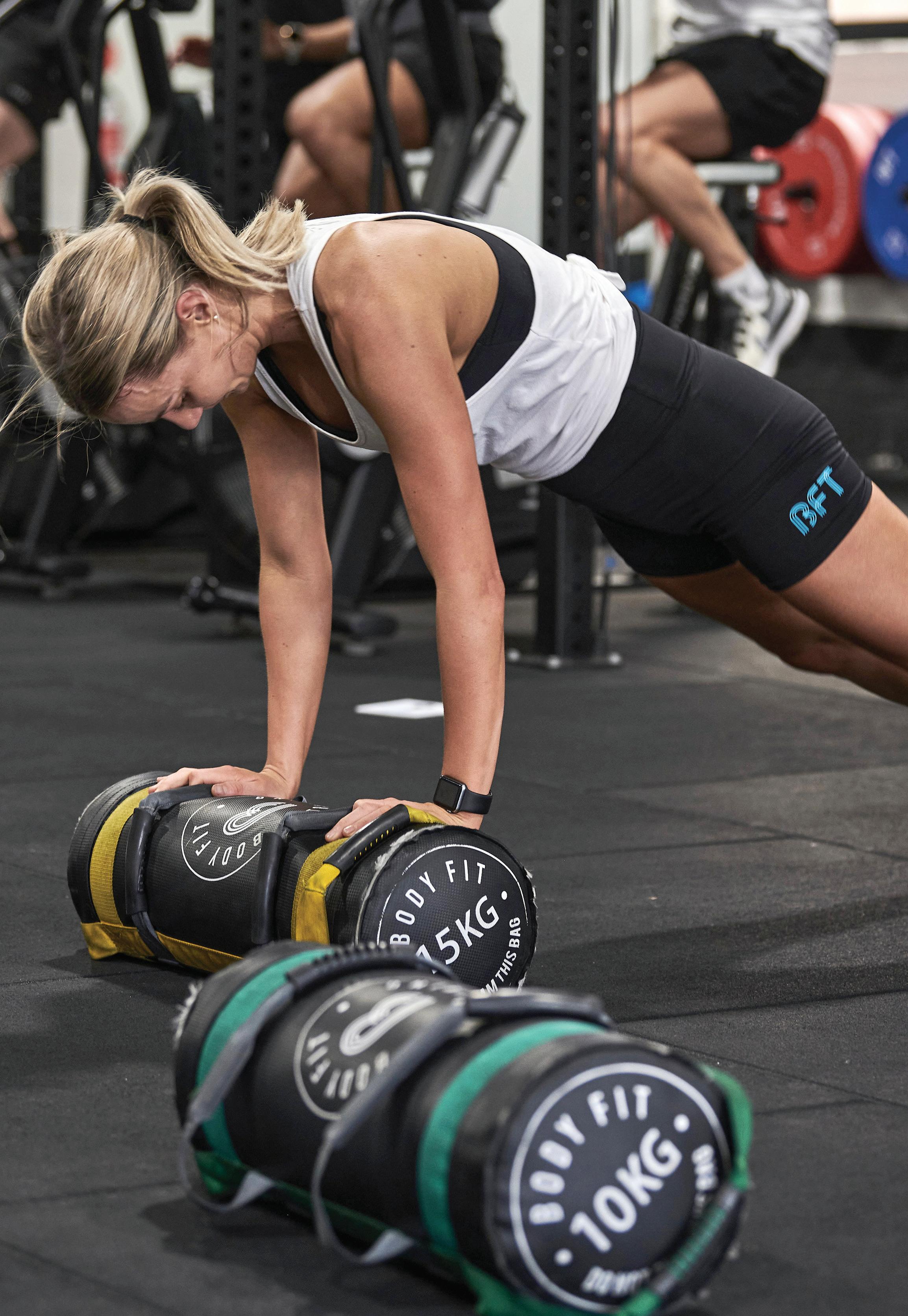
69 ©Cybertrek 2022 Issue 11 2022
Queensland has benefitted from the State’s policy
photo: Body Fit t raining Queensland
Queensland
Health and wellbeing
The state of Queensland, Australia, has its own independent health agency called Health and Wellbeing Queensland (HWQld) which was fortuitously established in 2019, following community consultation, putting it in the best position to support people through the pandemic.
The organisation’s strapline is ‘a bold idea to make healthy happen’, its patron is the governor of Queensland, Dr Jeannette Young and CEO is Robyn Littlewood.
The organisation is already delivering on a wide range of initiatives to get Queenslanders active, improve food literacy and overcome inequity, with one example being the Generation Queensland (Gen Q) campaign, an initiative that envisions children born today experiencing better health outcomes than the generations of Queenslanders before them.
The Gen Q vision is supported by actions designed to deliver by bringing together various parts of the preventative health system, including a population data platform, a grants scheme, a community insights panel and a health and wellbeing centre for research innovation.
“By applying a collective, equity-informed approach, a generational shift can be achieved to better the health and wellbeing of all Queenslanders,” says HWQld, “particularly children and young people.”
HWQld is also collaborating with Jamie Oliver’s Ministry of Food and Food Revolution Campaign (www.jamiesministryoffood.com) and Good Foundation (www.thegoodfoundation.com.au) to deliver hands-on food literacy training.

POLICY 70 Issue 11 2022 ©Cybertrek 2022
Queensland has a history of prioritising health and wellbeing, with a recently-established agency taking the lead, says Liz Terry
We’ve been given a mandate to develop a new way of working that requires an element of risk-taking government is not well placed to deliver
The Gen Q campaign envisions children born today experiencing better health outcomes
PHOTO: SHUTTERSTOCK/ROSIE FRASER
For almost ten years the partnership has supported the successful delivery of the Jamie Oliver Ministry of Food programmes in Queensland, bringing Jamie’s easy and healthy cooking classes and healthy tips and tricks to Queenslanders across the state.

Gen Q and the Jamie Oliver collaboration are just two examples of work being undertaken to drive change in levels of wellbeing in Queensland and HWQld has programmes operating and in development across a wide range of other areas of health and prevention.
Whole government approach
The organisation is develop a whole-government response to challenges and lack of healthy equity that have been amplified by the pandemic.
Queensland has a number of key issues to address, as obesity rate forecasts indicate that children born in 2023 could have a reduction in life expectancy of between 0.6 and 4.1 years depending on where they live.
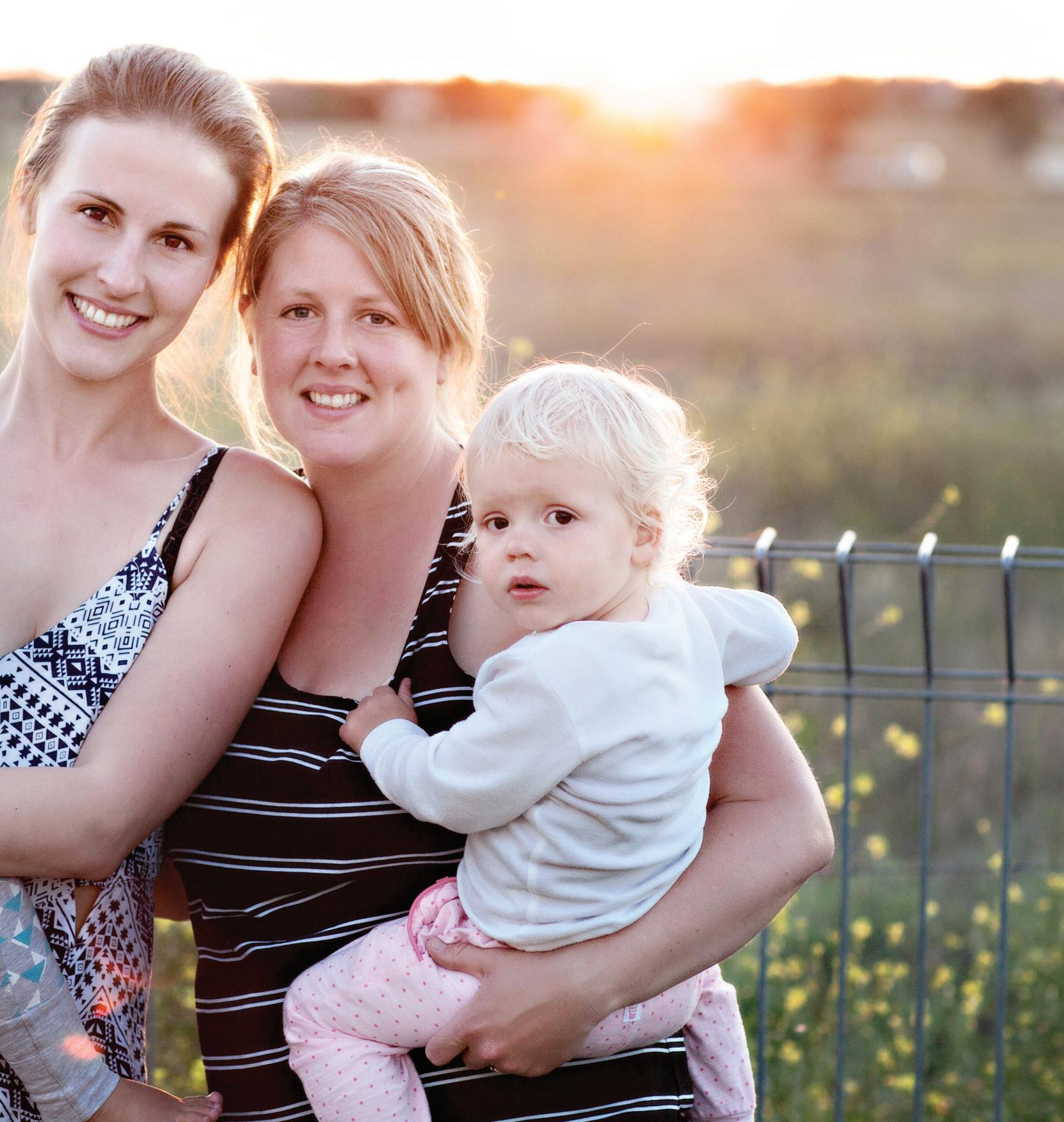
This means the median age of death in Brisbane is 82 years versus 51 years in parts of North Queensland – a difference of 31 years in the same state.
Health and Wellbeing
This is partly because the obesity rates of First Nations children aged 10-14 years are almost double that of non-First Nations Children in the same age group. “These are systemic challenges and they require systemic responses to bring systems together,” says HWQld, “We must align drivers and policy innovations across government while also energising and engaging across sectors and with the community.”
HWQld has worked with stakeholders and funded research to guide the development of major government strategies around obesity, prevention, remote food security and equity, that will be key to ensuring better health for the children of tomorrow.
“We began as a simple idea for a health promotion agency,” says HWQld. “We’ve been given a mandate to develop a new way of working that requires innovation, partnerships and an element of risk-taking that government is not well placed to deliver.
“While we’re accountable to government and the broader community, we’re also an independent organisation that will work relentlessly to achieve outcomes that benefit the whole of Queensland.” l
71 ©Cybertrek 2022 Issue 11 2022
Queensland is collaborating with Jamie Oliver’s Ministry of Food and The Good Foundation to deliver handson food literacy training
Food literacy from Jamie Oliver
photo: shutterstock/Mr p ics
A well FUTURE












The 16th annual Global Wellness Summit brought upwards of 400 delegates representing 50 countries to convene in Israel’s commercial capital, Tel Aviv, to discuss themes of technology and healthcare, longevity, inclusive wellness, faith’s role in wellbeing, nutrition, art and music and the natural world.





As has become tradition at GWS, filmmaker Louie Schwartzberg opened with a preview of his new film, Gratitude Revealed, which set the tone for the three days ahead, reminding delegates of the power of being grateful for both our physical and mental wellbeing.

GWS chair Susie Ellis also reminded delegates of all the things we have to be grateful for as an industry: the Global Wellness Institute is predicting that the wellness market has surpassed 2019, pre-pandemic levels – when it was valued at US$4.9tr – to more than US$5tr this year, and that it will grow at an impressive 10 per cent annual pace through to 2025. Wellness travel is set to grow 21 per cent a year from 2020 through 2025 – from a US$720bn market to over US$1tr in 2025.
“What’s happening in the industry is in a way, astonishing,” she said. “People are demanding that wellness be at the centre of almost everything they do. From where and how they live, to where and how they work, to how they travel and what they want to experience while travelling, to how they track their health, hack their biology and be the best they can be, physically and mentally. Whether this is a reaction to pandemic times, or simply a new consciousness about the importance of both healthcare and self-care, all of it adds up to increased opportunities for our industry.”
Co-hosts Amir Alroy, co-founder of Welltech Ventures in Israel, and Omer Isvan , president of Servotel in Turkey, delivered a packed three-day programme with the theme of ‘Open Minds. Open Hearts. Open for Business,” designed to recognise the importance of embracing an open attitude as the world reels from years of challenges. They brought some of the top minds from Israel and around the world in medicine and technology to speak to delegates, alongside familiar faces from the wellness industry.
WELLNESS
The 16th Global Wellness Summit convened in Tel Aviv to discuss the biggest issues in wellness. Jane Kitchen was there for HCM
Tel Aviv was chosen as the GWS venue for its booming welltech scene
PHOTO: SHUTTERSTOCK/ROOFSOLDIER
Susie Ellis
The
The power of nature was a major theme at GWS 2022

73 ©Cybertrek 2022 Issue 11 2022
wellness market has surpassed 2019 levels, when it was valued at US$4.9tr, to more than US$5tr this year. It will grow at 10 per cent annual pace to 2025
X )-UNSPLASH
PHOTO:
Alroy explained that wellness innovation in Israel is on the rise, with more than 500 wellness startups and 2,000 health tech companies in the country.
“The wellness arena in the Middle East is vast, both in needs and offerings,” he said. Isvan said that while hospitality has been important in integrating wellness into life, he thinks we’re graduating out of that space now. “We’re seeing a change, moving from the hands of the wellness industry provider into the hands of the individual,” he explained.
“Knowledge and self-adoption of wellness regimes have integrated into daily life. We need to be so much more mindful of the sophistication of the individual.”
HEALTH, TECHNOLOGY AND LONGEVITY Technology is one reason for the increasing sophistication of the individual when it comes to wellness and its ability to both inform and connect means people are increasingly taking greater control of their own wellness and discovering new ways to track and boost their health.
Michael Roizen , chief wellness officer for the Cleveland Clinic, reminded us that society has expanded life expectancy by about two and a half years every ten years since 1890. “We are entering a great age reboot,” he said, where you can control your genetic inheritance and how you function epigenetically by your actions, through exercise diet and technology such as Crispr, so that we can live not just longer, but better.”
Roizen, who was Summit chair in 2021, was joined on stage in Tel Aviv with Tzipora Strauss , head of neonatology at the Sheba Medical Center in Israel and head of the hospital’s upcoming Longevity Center. She spoke about technology’s role in longevity medicine, where AI is increasingly important, as well as the need to motivate people to maintain their performance as long as possible. “Babies that are born today will live at least 100 to 150 years,” she said. “We need to bring those babies not just lifespan, but healthspan.”
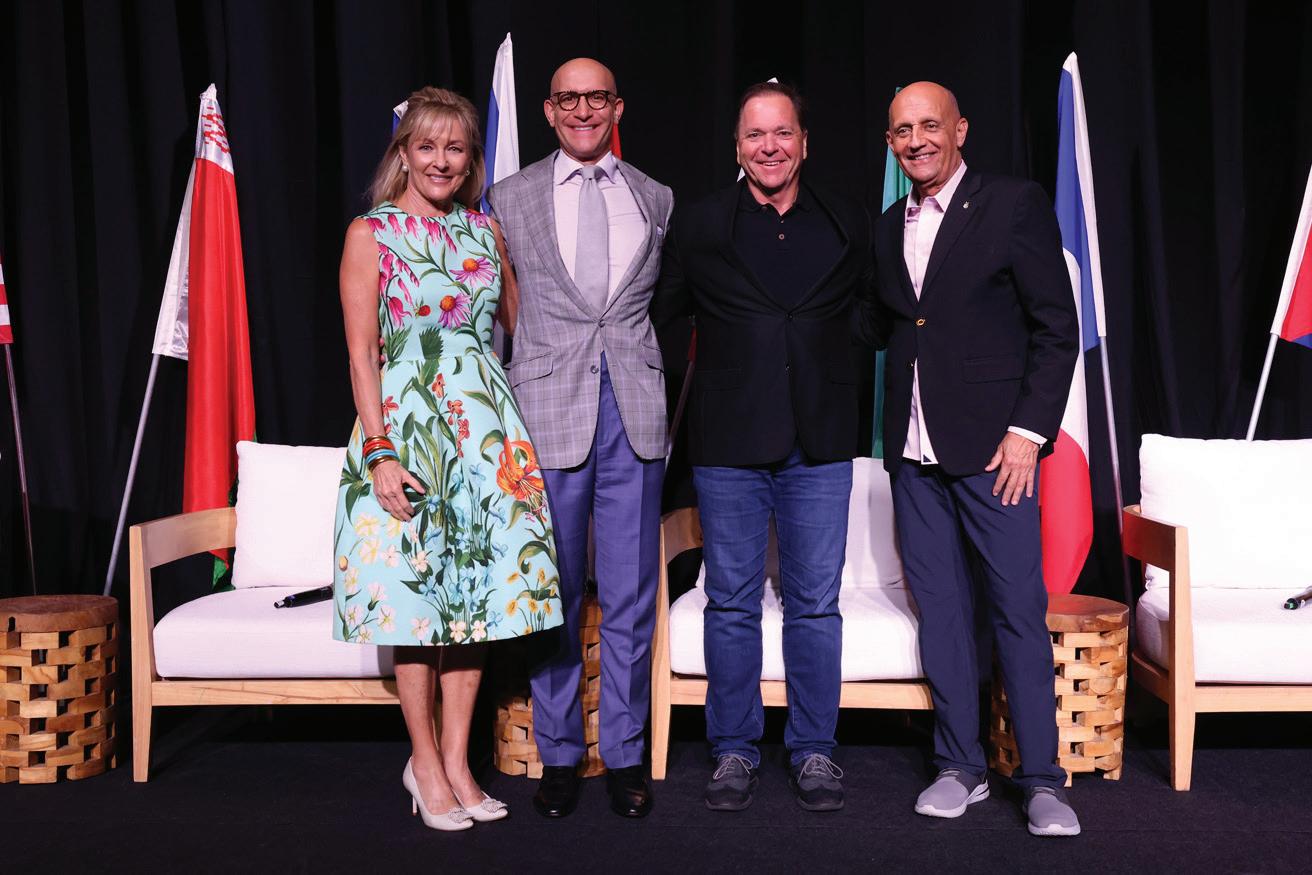
Shai Efrati, a professor at the Sackler School of Medicine & Sagol School of Neuroscience at Tel Aviv University and director of the Sago Center for Hyperbaric Medicine & Research at Shamir Medical Center in Israel, spoke about one way to do that: through the game-changing science of
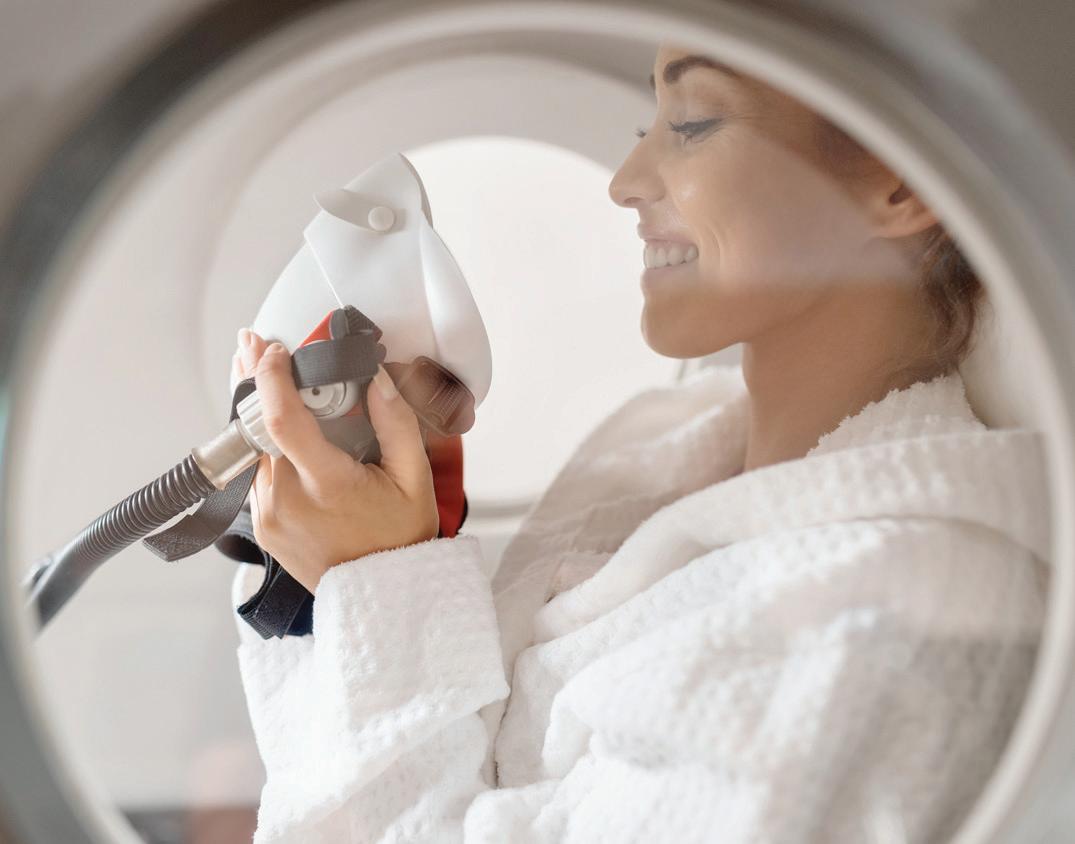

74 Issue 11 2022 ©Cybertrek 2022
z igic
photo:
shutterstock/Drazen
Hyperbaric treatments can build brain tissue
WELLNESS
The Wellness Moonshot is a mission to eradicate preventable disease which is sponsored by Fountain Life, a company aiming to identify and treat illnesses in their earliest stages
GWI CEO Susie Ellis, with Dr Carmona (right) and the Fountain Life team
photo: g W s
hyperbaric medicine. Efrati detailed how hyperbaric chambers, which have been successfully used for wound healing for decades, can help with brain health and function as well, effectively reversing ageing by improving cognitive function, memory, attention and executive function. “We are actually taking the biology back in time,” he said. “We can reverse many things in the past that we thought were not reversible. We can actually generate neurons. We can build brain tissue like we build muscle.”
It’s these kinds of medical advances that have the wellness industry inspired to take on bigger issues of health and longevity, such as the Wellness Moonshot for a world free of preventable disease (www.globalwellnessinstitute.org/wellness-moonshot).
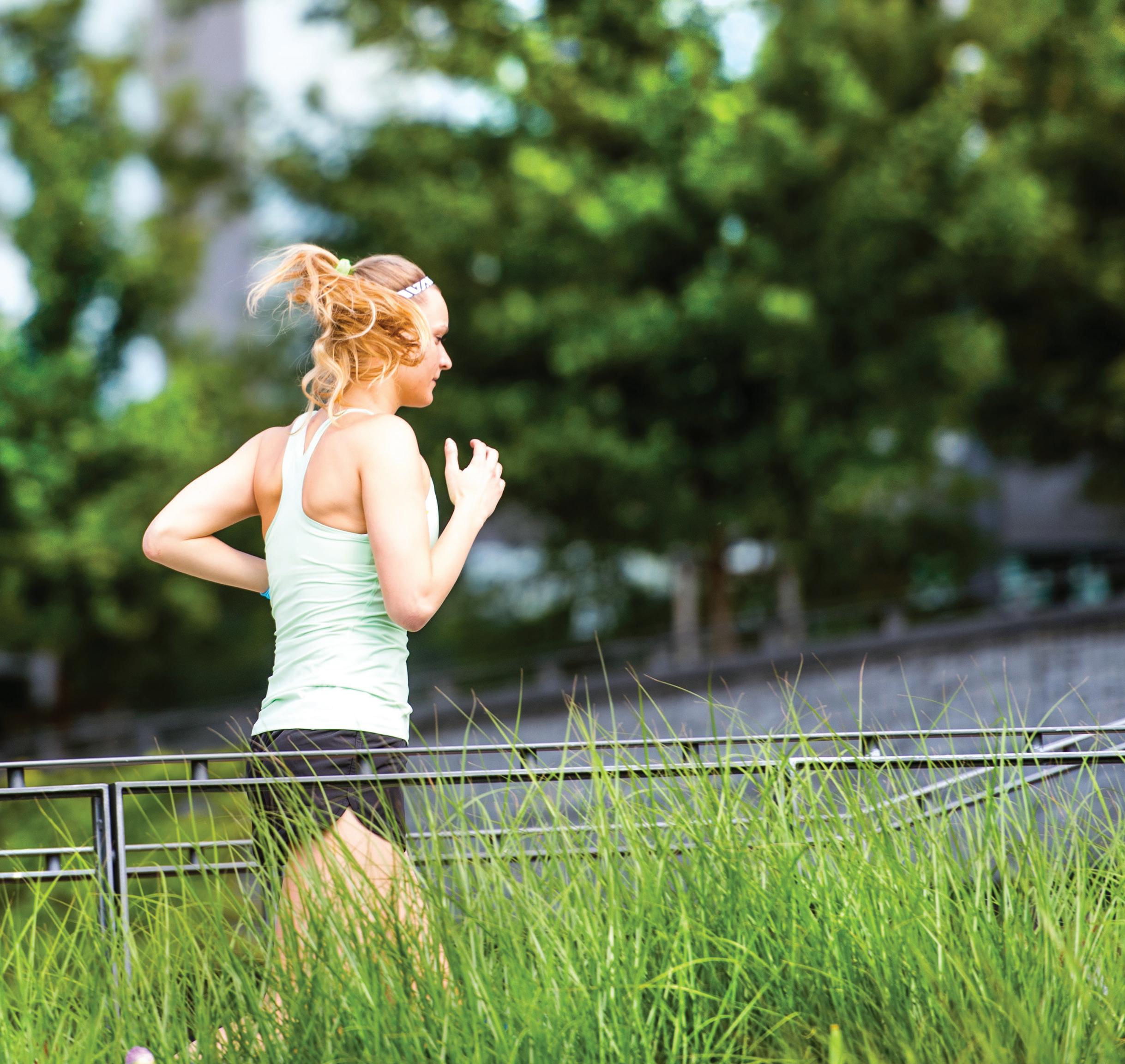
Despite the multi-trillion-dollar wellness market, the World Health Organization reports that in 2022, 74 per cent of all deaths globally
are the result of non-communicable diseases and obesity, diabetes and hypertension rates have more than doubled in the last two decades.
First launched at the 2017 Global Wellness Summit, the Wellness Moonshot is a mission to eradicate preventable, chronic diseases, and this year, it received a boost from a sponsorship by Fountain Life, a fast-growing company with a preventative healthcare model to identify and treat illnesses at their earliest stages (www.fountainlife.com).
Fountain Life’s co-founders, doctors Peter Diamandis and Bill Kapp, were on stage at the Summit to discuss the mission, while high-profile co-founder of Fountain Life and philanthropist Tony Robbins sent a pre-recorded video message to delegates.

75 ©Cybertrek 2022 Issue 11 2022
You can design cities to either make people healthy and well, or you can do the opposite
Ricky Burdett
The role of urban planning and the public realm was under the spotlight
photo: getty images / unsplash
photo: g W s
Healthy lifestyles, combined with gene editing will make 90 the new 40


Kapp said: “This is the seminal issue of our time. we want to help people become the C eO of their own health,” while Diamandis explained further: “Technologies are converging to give us insight into the molecular biology of ageing – we’re in the middle of this revolution,” he said. This includes senolytic medicine, stem cells, gene therapy and Crispr.
In a separate session, Dr Richard Carmona , chief of health innovation at Canyon Ranch and 17th surgeon General of the U s , discussed the epigenetics of wellness and asked delegates to think of genes as embedded software systems: “If you give them good input, these genes act in a positive way,” he explained. “Your whole life you get to re-code your genes by the actions you take.”
Naveen Jain, C eO of Viome, a company that offers gut microbiome testing, echoed that sentiment. “Your genes are not your destiny,” he said. “How you express your genes is your destiny.” A holistic view of wellness should include a focus on nutrition, stress reduction, exercise, sleep and mindset, he said. “The body is all connected, and that’s how you have to look at wellness,” he explained.
Dan Buettner, founder of Blue Zones, who spoke at the 2018 summit in Italy, was back to talk about longevity and wellness and what he’s found based
on the research into the healthiest communities around the world. with a new cookbook out, called Blue Zone Kitchen, Buettner focused his talk on the role nutrition plays in longevity and health – “The runway to health is through our mouth,” he said.
e ach of the Blue Zones has different diets – sourdough bread in s ardinia, purple sweet potatoes in Okinawa – but they are all 90-100 per cent whole food and plant-based, with meat less than five times a month, and beans are the cornerstone of every Blue Zones diet in the world. Most Americans don’t eat anywhere near this, and Buettner said that the standard American diet will kill 680,000 Americans prematurely this year. “This is the n umber 1 enemy to wellbeing worldwide,” he said. “Our environment has changed, and if we really want to promote wellness, we need to shift our focus to our homes, our neighbourhoods and our nations, so the healthy choice is not only the easy choice, but the unavoidable choice.”
76 Issue 11 2022 ©Cybertrek 2022 wellness
photo: shutterstock/Gorodenkoff
Blue Zones diets are all 90-100 per cent wholefood and plant-based
INCLUSIVE AND EVERYDAY WELLNESS

The idea of making wellness easy and accessible was echoed throughout the Summit, and it’s no wonder; if there’s one thing that we’ve learned during the pandemic years, it’s how interconnected we all are when it comes to health and wellness, but how disproportionate our healthcare and access to wellness is.

Denise Bober, SVP of human resources for The Breakers, detailed the Florida resort’s recent partnership with Dr Nicola Finley to create a pilot programme on health equity for team members of colour, which has shown promising real results. “We wanted to make sure our team members feel seen, heard and cared for,” said Bober.
In a panel on wellness real estate, Amy McDonald, CEO of Under a Tree Health & Wellness Consulting,
said that many of her projects are moving from spa and wellness to mixed-use and residential, with developers interested in bringing wellness into every aspect of the design. Ricky Burdett , director of LSE Cities and professor of urban studies at London School of Economics, outlined the development of the east London neighbourhood of Stratford, which has built wellbeing into the design, saying: “You can design cities to either make people healthy and well, or you can do the opposite.”
Even the GWI’s research this year focuses on wellness policy, in an effort to bring wellness to more people. “The wellness economy is going to leave behind people who don’t have the money to spend on it,” said Ophelia Yeung , GWI research fellow and co-author of the study. “We have reached a turning point and we need to act now.”
77 ©Cybertrek 2022 Issue 11 2022
If we want to promote wellness, we need to shift our focus to our homes, neighbourhoods and nations, so the healthy choice is not only the easy choice, but the unavoidable choice
Dan Buettner
photo: GWS
photo: cdc/un S pla S h
Katherine Johnston , co-author and senior research fellow with the GWI, explained how micro-level policies such as warning labels on food can nudge our behaviour towards wellness, meso-level infrastructure at the community level like schools, workplaces or parks can help even further, but that on the macro level, things such as poverty or the environment often feel out of our control and need help from government policies. “Wellness shouldn’t be a luxury,” said Johnston. And importantly, she said, “wellness policy is not the same as health policy; wellness policy needs to cut across all different government domains.”
And wellness policy can have real results; Johnston estimates that for every dollar invested in health prevention and promotion, there is an ROI of US$4 to $14, and importantly, wellness spending is correlated with both happiness and life expectancy.



ART, MUSIC & COLOUR


Beauty and peace are very much a part of wellness. This year’s Summit reflected that through an exploration into the role that art, music and colour can play in our wellbeing.
Tai Danai, founder and CEO of Artlink, discussed his company’s culturally sensitive, narrative-based approach to providing art in the hospitality industry. “There are many ways to tell stories with art, to inspire, to uplift,” he said.


The BBC’s Simon Shelley, VP of Storyworks, returned to showcase several episodes of the series created in conjunction with the Global Wellness Institute, “In Pursuit of Wellness: The Art & Science of Living Well.” This included a segment on music for neurodiversity and a look at young Kenyans who are finding appreciation for the benefits of Africa’s healing plants. “Wellness is ubiquitous, but

WELLNESS
Palm Reading captures biodata from plants, which is then translated into notes that create musical compositions
Charlie Laubacher and Skooby Laposky
78 Issue 11 2022 ©Cybertrek 2022
Charlie Laubacher and Skooby Laposky presented music from Israeli and Palestinian territory
it’s often misunderstood,” said Shelley. The series focused on “improving understanding, recognising the evidence, and encouraging a collective pursuit.”
Ari Peralta , neuroscientist and sensory designer for My Cocoon, led a fascinating breakout session on the power of colour to affect mood. “What we perceive is what we feel – sensation, perception and attention are all intricately linked,” he said. “Perception is key to wellbeing, and the senses can influence each other and shift perception, offering new opportunities to promote wellness outcomes.”
The way our brain processes music is equally complex, as illustrated by a live musical performance by music savant Derek Paravicini, who is both autistic and blind. Paravicini is able to play almost any piece of music in any key on the piano after hearing it just once, and wowed the audience with live, real-time requests.
Freddie Moross, managing director of Myndstream, a provider of music for health and wellbeing, brought Paravicini to the Summit to illustrate the incredible power of music for wellbeing. Moross was later awarded the Debra Simon Award for Leader in Furthering Mental Wellness for his work using music as a tool for healing and a bridge to help people feel included and respected, and particularly for his impact on neurodiverse communities.
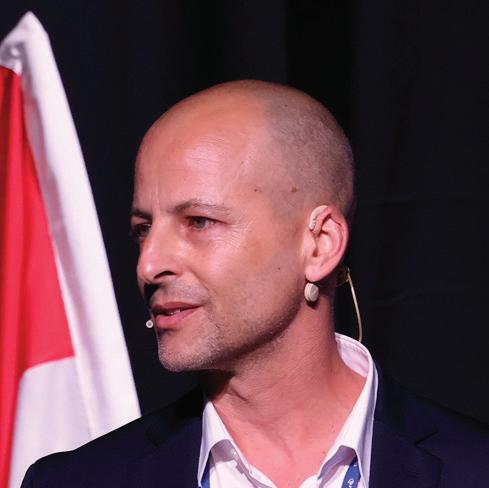
Think of your genes as embedded software systems, if you give them good input, they act in a positive way. Your whole life you get to re-code your genes by the actions you take Dr Richard Carmona, former Surgeon General
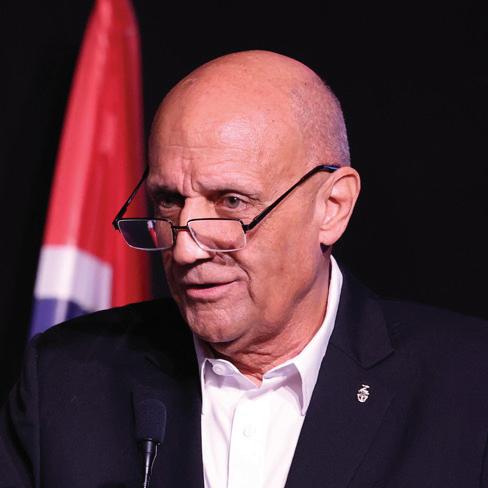
The wellness arena in the Middle East is vast, both in needs and offerings. Knowledge and selfadoption of wellness regimes have been integrated into daily life
Amir Alroy, Welltech Ventures


Moross also brought the musical duo of Charlie Laubacher and Skooby Laposky, known as Palm Reading, who presented their unique musical talents. Palm Reading captures biodata from plants, which is then translated into notes that create musical compositions. Laubacher and Laposky found their inspiration through a quest to listen more closely to nature and have recorded plants everywhere from Malibu to California and the Joshua Tree National Park. But at the GWS, they unveiled a short video in which they had captured music from plants in both Israeli and Palestinian territories the week before the Summit, showing that nature knows no political boundaries.
NATURE & WELLNESS

The power of nature to heal has always been a strong theme in the spa and wellness industry, but never more so than in the years since COVID, when people have looked to the natural world as a way to recover from years of lockdown and uncertainty.

Global economist Thierry Malleret , co-founder and managing partner of the Monthly Barometer, asked us to start thinking about nature as a form of capital: “Half of the world’s GDP is dependent on nature,” he explained. “Nature is a perfect antidote to today’s ills.”

79 ©Cybertrek 2022 Issue 11 2022
PHOTO: GWS
PHOTO: GWS
PHOTO: PALM READING
Wellbeing is the third pillar gaining traction in the metaverse, because we’ve moved from a model focused on a diet, exercise and traditional medicine to a social model with a holistic focus

Noam Gabison, Meta
Because of this, there’s been a recent “explosion of start-ups that provide nature-based solutions,” he said.
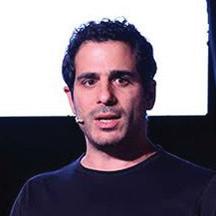
“You have to look at things from a holistic perspective and ensure that we don’t just achieve individual wellbeing, but the wellbeing of society and our planet. The wellness of our environment is absolutely critical to our personal wellbeing.”
social wellness
Robbie Hammond, who was responsible for bringing The High Line to New York City and who has recently taken on a job with Therme Group US as president and chief strategy officer, explored the idea of nature in cities and its ability to create community. Hammond came up with the concept of The High Line as a way to bring nature, art, entertainment, play, wellness and community together in a disused rail line, with events such as the Mile-Long Opera inspiring a new, younger generation to explore the arts and the outdoors at the same time. “The way people want to consume leisure or culture has changed,” said Hammond. “People want to do things together, and they want to have an experience.” It’s that sentiment that has brought Hammond to Therme Group, which provides an accessible thermal experience in cities through a volume business model – its Bucharest location can handle 10,000 people at a time, and Hammond reports that only 10 per cent of them are going alone.
Therme is expanding globally with two locations already announced for the UK and more on the way, in addition to upcoming developments in the US, South Korea and Canada.
The social component of thermal bathing was explored further in a panel featuring Tina newman , director of sales and marketing for Castle Hot Springs in Arizona; stellan i acob, COO and senior VP of Therme Group, and Bharat Mitra , co-owner of
Peninsula Hot Springs in Australia. “Where there is community, there is wellness,” said Iacob, whose Bucharest Therme welcomes 1.4 million visitors each year. Mitra agreed, and detailed the plans of additional hot springs resorts that he’s developing in Australia.
“Our goal is to create immersive experiences for people to relax in nature, connect with themselves, each other, and the inner world of their being,” he said. “It’s about community – we’re trying to make it accessible to as many people as possible.”
wellness 80 Issue 11 2022 ©Cybertrek 2022
photo: GWS


81 ©Cybertrek 2022 Issue 11 2022
People want to do things together and they want to have an experience. Therme Group’s locations can handle up to 10,000 people at a time and only 10 per cent of them are going alone
Robbie Hammond
Therme Group is extending into the UK, Korea and Canada
photo: GWS
photo: Dra G o S t oa D er
Start thinking about nature as a form of capital. Half of the world’s GDP is dependent on it and the wellness of our environment is also critical to our personal wellbeing

Thierry Malleret, economist

But perhaps the most striking look at the natural world was a presentation from Oded Rahav of the Dead Sea Guardians, who reported that every day, we lose ½ a centimetre of water from the Dead Sea, in large part due to man-made activities. This has led to a series of sinkholes – now number more than 7,000 – and if left unchecked, the Dead Sea will vanish in our lifetime. Rahav has dedicated his life to saving it and remains optimistic this is possible.
LOOKING TO THE FUTURE
Noam Gabison, industry manager for digital health at Meta Israel (Facebook), had us looking at a very different kind of future – one that involves meeting up in the metaverse. While many in spa and wellness are still trying to wrap their heads around what the metaverse is, Gabison explained why it’s important for our industry: “Health and wellbeing is the third pillar gaining traction in the metaverse,” he explained. Part of this is because how we approach healthcare has changed, he said; we’ve moved from a personal model focused on a physical approach that includes diet, exercise and traditional medicine to a social model with a holistic focus including diet, exercise, traditional medicine, mental health, alternative medicine and more. And importantly, “metaverse experiences are social first,” he said.
Six Senses CEO Neil Jacobs once again took to the stage in conversation with Global Wellness Summit executive director Nancy Davis to talk about the future of hospitality, highlighting themes of community and connection, regenerative travel and transformative travel. “People have changed,” said Jacobs. “They want a takeaway from hotels and resorts – they want places with personalities and a very strong story – there needs to be more to their stay.”
LEADING WOMAN IN WELLNESS

Sue Harmsworth, founder of ESPA, spoke about what she thinks is important to our industry: teaching resilience, focusing on innovation, clearing up the confusion between spa and wellness, helping with anxiety, supporting the public health system, and giving more than lip service to sustainability.
Harmsworth, a 50-year veteran of the industry, was later given the 2022 Leading Woman in Wellness award. In accepting the award, she said: “This industry has been a lifetime’s work for me. It gives me so much spirit and energy. If I think back to the early days of my career and how life evolves, I can see it goes in cycles, and I believe the wellness industry is more important now than it ever has been…This tribe of people who are driving change across the wellness industry keeps developing and changing and becoming more effective and dynamic.” ●
● The Global Wellness Summit 2023 will be held in Qatar, with dates TBC www.globalwellnesssummit.com
GWS report courtesy of Spa Business – the sister magazine of HCM – and its editor-at-large, Jane Kitchen
Get more spa and wellness news: sign up for free digital magazines and news feeds at www.spabusiness.com/signup


82 Issue 11 2022 ©Cybertrek 2022
WELLNESS
PHOTO: GWS

People are demanding that wellness is at the centre of everything they do
PHOTO: ALEXANDER_MAGNUM/SHUTTERSTOCK
The way we approach health has changed from a model that includes diet, exercise and traditional medicine to a holistic model that includes every aspect of wellness

ASK FOR YOUR FREE DEMO TODAY! REALTIME BOOKINGS & PAYMENTS LIVE-STREAMING & ON-DEMAND ASSESSMENTS & PROGRAMMING STAFF MANAGEMENT & EDUCATION REPORTING & BUSINESS ANALYSIS INTEGRATION & CUSTOM DEVELOPMENT LET’S GET DIGITAL WWW.FISIKAL.COM
Appy Christmas
Central YMCA engaged Fisikal to build a custombranded app to manage its 2022 Christmas member acquisition promotion.
Built and delivered within a threeweek window, the app enables invited individuals to activate a festive pass to Central YMCA, while also functioning as their electronic membership card throughout the 12 consecutive days of the promotion.

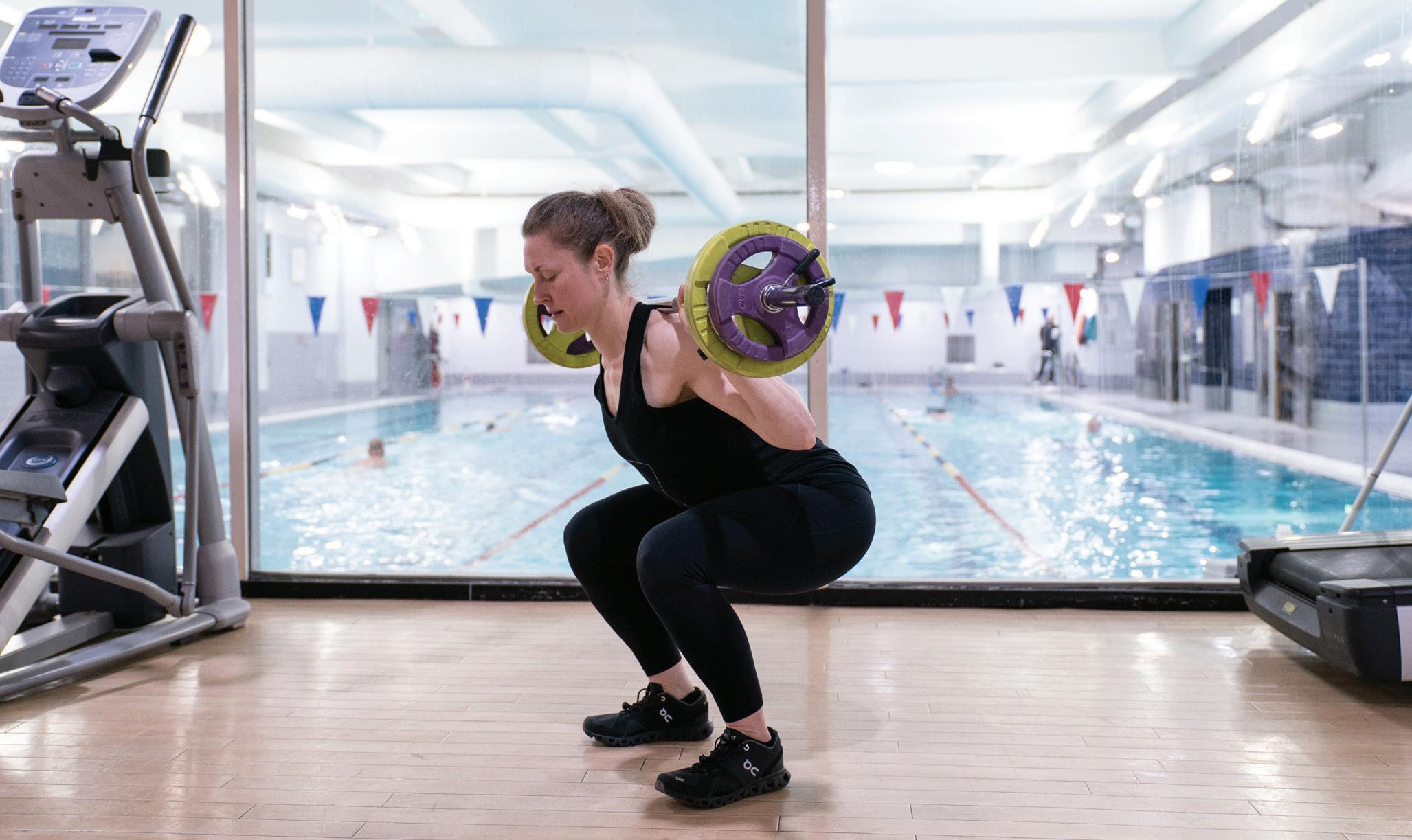
Getting more efficient Ryan Palmer, COO at Central YMCA explains how this digital solution will elevate the user experience and create business efficiencies.
“Like so many operators, COVID hit our membership numbers hard. In October this year, we engaged Doug Miller, to work with us to develop our ongoing member acquisition strategy.
“To kick start the campaign, he suggested we run a digital version of the traditional 12-days of Fitness promotion. Digitalising the execution removes inefficiencies of a paperbased system while also providing real-time access to user profiles, plus activation and engagement data.
“We didn’t have the capability within our current ecosystem to make this happen. That’s when Doug put us in touch with Fisikal,” says Palmer. “Three weeks later, we had a fully functioning, custom-branded app to support our promotional needs.”
The Central YMCA Club app can be downloaded, free of charge, from the Apple App Store or Google Play Store. Content is then unlocked via a secure code provided by Central YMCA. Once inside, users can access details of the promotion and after answering profiling questions, arrange to visit the club and complete a tour.
Once in the Club, a QR code stored in the app, verifies the user, grants access and logs the initial visit and subsequent visits. The code remains active for the term of the promotion, automatically switching off at the end.
Palmer adds: “The app is a game changer. Not only does it modernise the experience of the customer, it also gives us access to real-time data that helps us to understand the popularity of the promotion and the behaviours of those involved.

“We’re able to pull customised reports to show how many people
have activated the promotion, the profile of those involved, the days and times they’re visiting, how many times they visit and when the promotion is due to end, so we can intervene and encourage them to join Central YMCA Club.
A worthwhile investment “I’m confident the revenue we generate from new memberships will far outweigh the investment,” says Palmer.
“While we’ve introduced the app to manage our seasonal promotion, now the functionality has been developed we can apply it to anything. Fisikal has opened our eyes to new possibilities and I’m excited to explore what this partnership can achieve and how it can develop. ●
● www.fisikal.com



85 ©Cybertrek 2022 Issue 11 2022
Central YMCA says the cost of the app has been paid for by the promotion
Fisikal has opened our eyes to new possibilities
Ryan Palmer, YMCA
PHOTO: YMCA
Central YMCA has partnered with Fisikal to digitise its festive promotions
S HO
CAS E • SUP P LIER • SC
PHOTO: CENTRAL YMCA
W
ADDING VALUE
Gray Core Health and Fitness
As a focal point on the gym floor, the rig is a powerhouse for functional training and a resource to optimise space and boost membership.
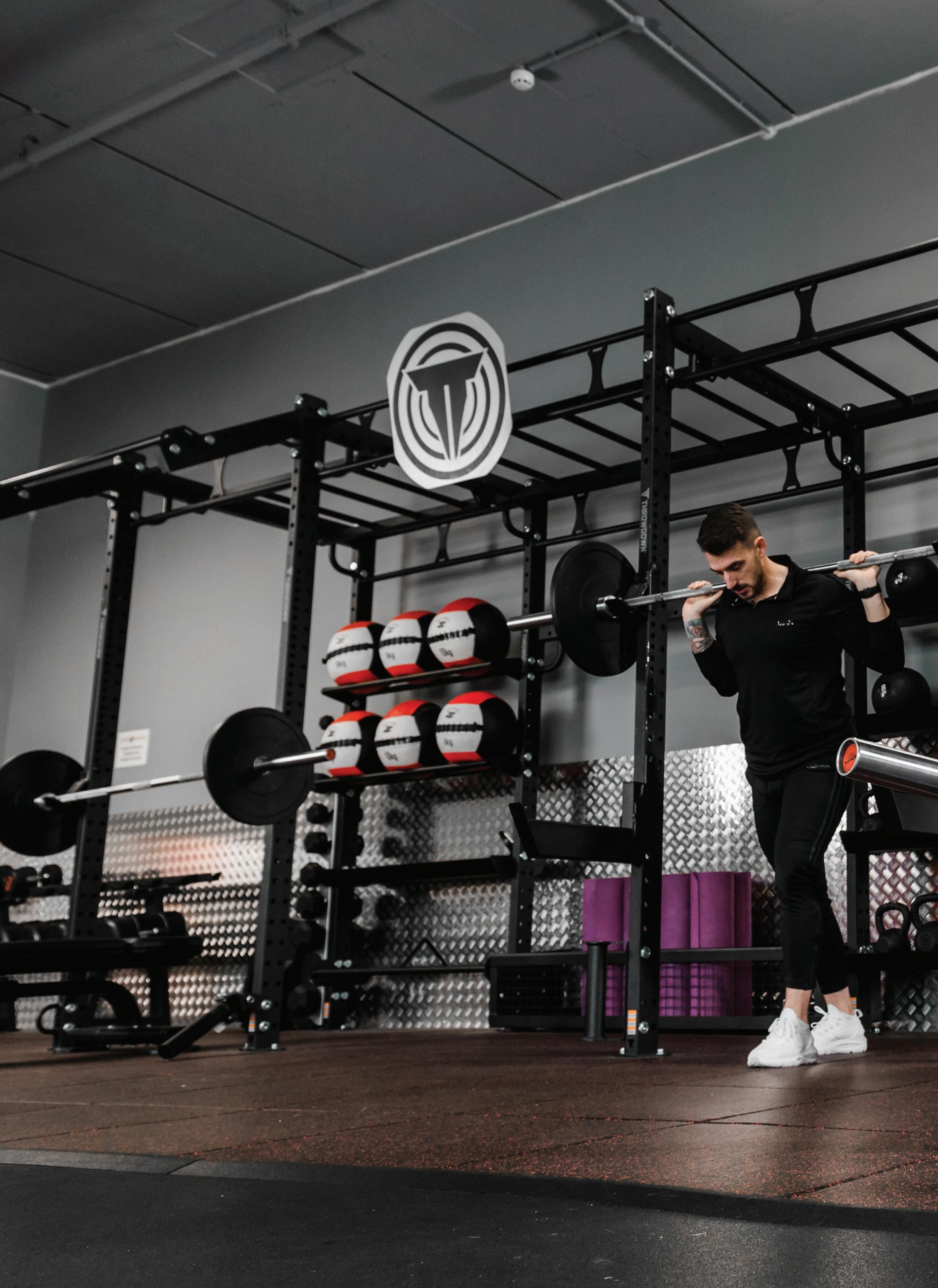
Rigs add value to the gym floor and to the member experience, and usage can be maximised through programming, events and customisation.
Programming creates a community of fans and can either be fee-based per workout, membership-tiered, or a value-add option, helping members achieve their goals while differentiating the facility from competitors. A creatively branded programme with excellent workouts will help build a community of participants.


A rig is often the backdrop for social media posts, tags and check-ins. By hosting ‘workouts for a cause’ you can build community support using your rig – events generate buzz for the equipment itself, the gym and the sponsored cause.
With the popularity of charity and community fundraising events, competitors will be eager to join a rig-centered competition. From pull-ups to deadlifts, building an event to generate support for a local charity or to sponsor a fundraiser is mutually beneficial. Customisation is our favourite rig dimension. As the most economical way to build out a gym, the rig is not lacking in capability. We design rigs to meet needs with storage solutions and in-demand HIIT and functional training spaces, but the reach doesn’t stop there, the rig brings the wow factor to the gym floor and is on trend with what members are currently looking for in a facility.
MORE: www.corehandf.com
86 Issue 11 2022 ©Cybertrek 2022
The rig brings the wow factor to the gym floor and is on trend with what members are looking for
Tony
FUNCTIONAL
Rigs have become a familiar sight in health clubs. Frances Marcellin asks suppliers how they can be fully optimised
PHOTO: CORE HEALTH AND FITNESS
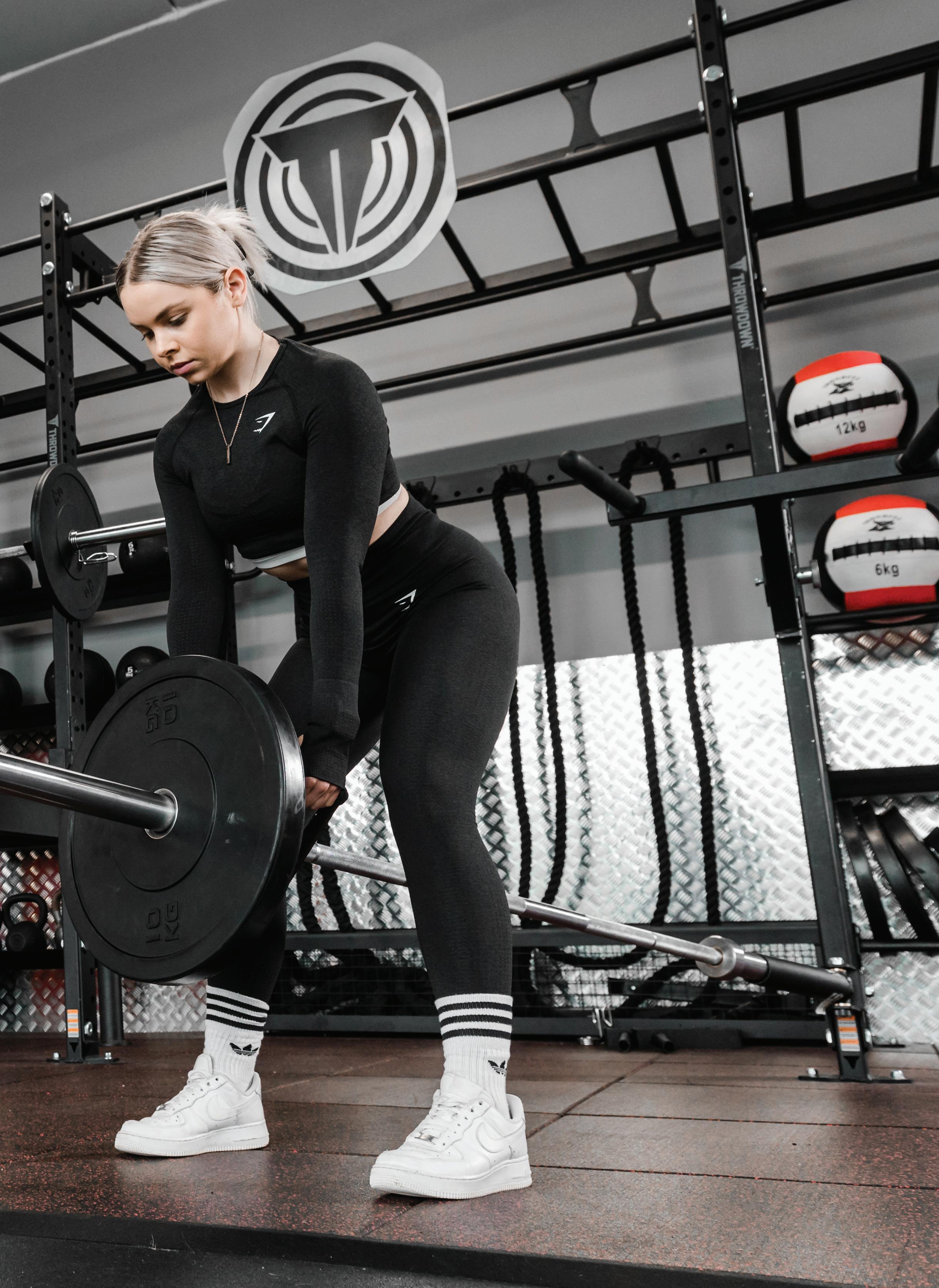
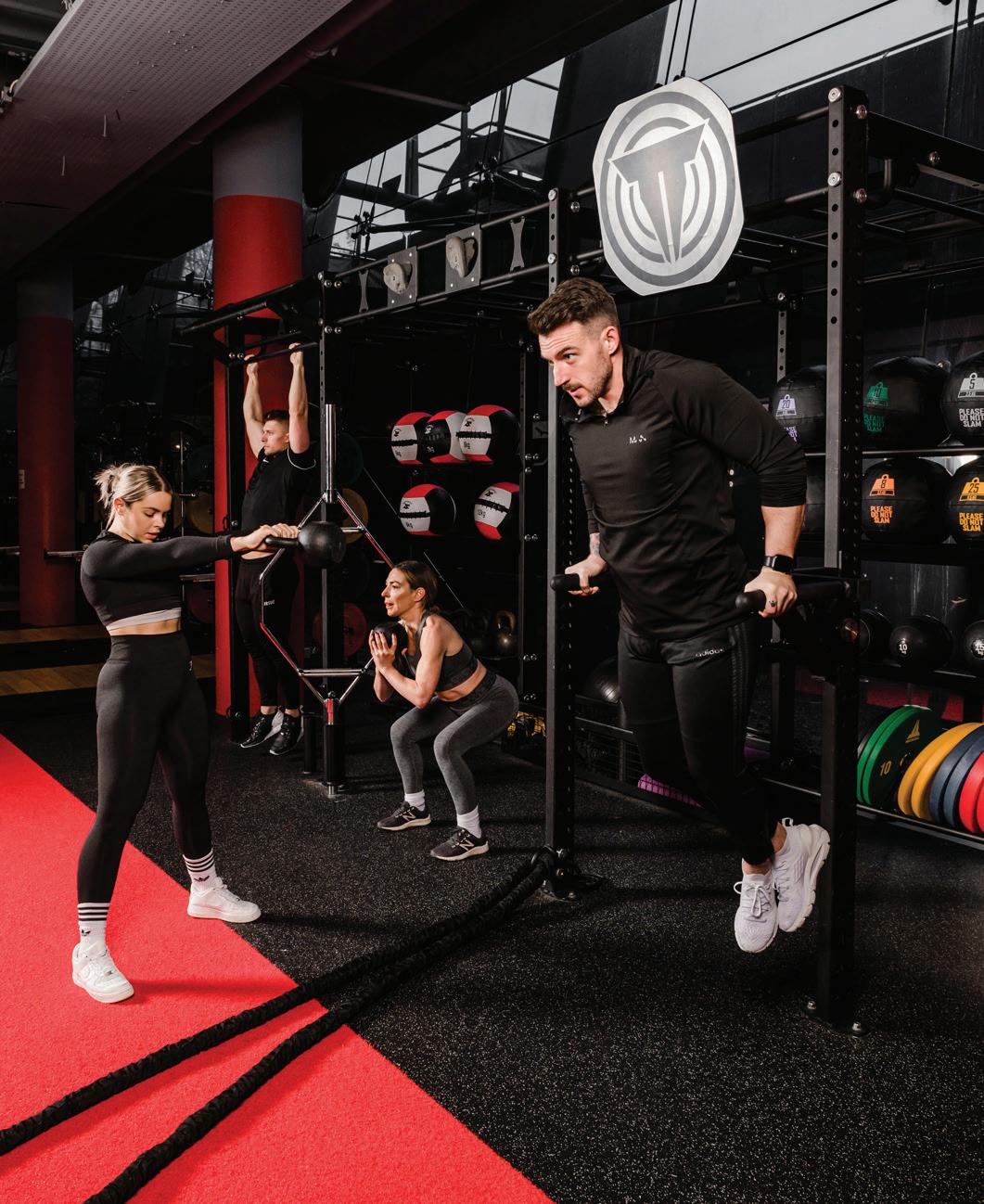 Rigs can be used as the location for charity competitions
Rigs bring the wow! Factor to the gym floor, says Gray
photo: Core h ealth and Fitness
Rigs can be used as the location for charity competitions
Rigs bring the wow! Factor to the gym floor, says Gray
photo: Core h ealth and Fitness
A functional rig can be the heart of the gym
Tom Rooke Indigo Fitness

The effectiveness of a functional rig really starts at conception. Operators need to be clear on the usage of a functional space, whether it’s for individuals, group classes or both. When not thought through in enough detail and without dynamic programming to support it, the functional rig can end up being under-utilised.
Success is always about designing and providing a full solution, rather than just an off-the-shelf product. A functional rig in the right space should cater for all abilities and uses, making it the heart of the gym.


Great rig design, coupled with suppliers’ knowledge of training and configuration enables operators to maximise the functionality and usage of their training space.
more: www.indigofitness.com
88 Issue 11 2022 ©Cybertrek 2022
Function must come before form says Rooke
Functi O n A l
Indigo Fitness installs rigs to order, based on anticipated usage
photo: Ind go F I tness
photo: Core h ealth and F I tness
We’ve launched a rig driven by servomotors
Juan Pedro Alonso Smart Tone

Rigs offer cost-effective group training and circuit work and maximise space utilisation. We believe so much in the possibilities of rig platforms that we’ve taken them to the next level with the launch of a rig driven by servomotors.
The new Smart Force rack includes digitised stations with automatic weight loading to save users time.
The software-driven equipment provides three kinds of training plans: HIIT, HIST and adaptive resistance training – a workout where we give every rep our all to reach complete muscle failure
with the least amount of reps possible, thus reducing training time and revolutionising standard routines.
Intelligent aids, such as laser spotting, automatically detect the user’s stress point so muscles can work to failure as many times as the user wishes, accelerating hypertrophy and making workouts productive.
The Smart Force rack is versatile and can fit in a 1.8m x 3m area. It provides extensive possibilities for users and allows measurements, training plans and progress to be saved within a functional training circuit.
Each parameter for every exercise can be programmed to optimise workout results – concentric time, eccentric time, rest time between sets – all can be input and displayed by a virtual on-screen trainer who guides the user through the workout. more: www.nexarevolution.com

89 ©Cybertrek 2022 Issue 11 2022
The Smart Force rack has resistance delivered by servo motors
photo: Nexa Smartto N e
photo: Davi D r o D riguez Sala S
Dale Beech Eleiko

When it comes to indoor training areas, in general we’re seeing a decline in the use of basic rig solutions in favour of more inclusive, spaceefficient alternatives – exclusive of purely functional or cross Fit facilities, where the needs are very different. typically, we’re seeing a trend where users try and do as much of their workout as possible in a smaller area. a s a result, the inclusion of storage for things such as dumbbells and kettlebells is becoming more common, as is the introduction of cable systems. We recently launched our Prestera cable attachment and the uptake has been far greater than expected. the creation of Strength Stations has created the perfect area for P ts and small
group classes with a strength focus, to thrive – again, another building trend. outdoors, a rig is a very cost-effective way of increasing training and facility footprint. i t doesn’t need to be as intricate but if accessorised correctly, can be a great use of space for additional sessions such as boot camps.
more: www.eleiko.com
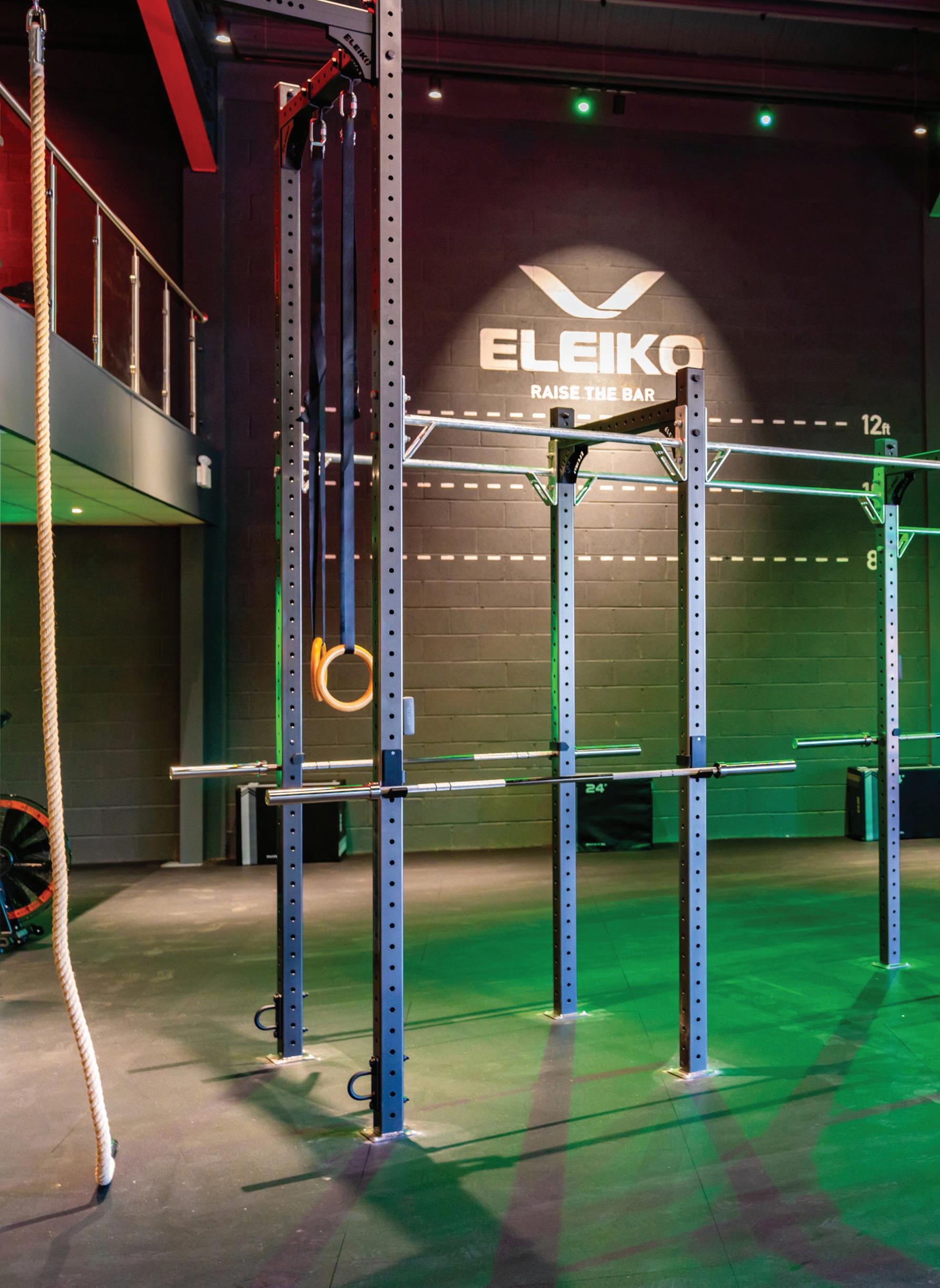
90 Issue 11 2022 ©Cybertrek 2022 Functional
We’re seeing a trend where users try and do as much of their workout as possible in a smaller area
photoS: El E iko

91 ©Cybertrek 2022 Issue 11 2022
Eleiko adds rig elements to support workout trends such as small group training
Each health club has its own requirements and challenges, but the right software solution can make all the difference, as Steph Eaves discovers

SOLUTION FINDERS
Jason Watts
Xn
Leisure
Xn Leisure recently began working with Walsall Council’s sports and leisure arm, Walsall Leisure. Prior to our partnership, its key challenges were to become more commercial in operation and grow sales.
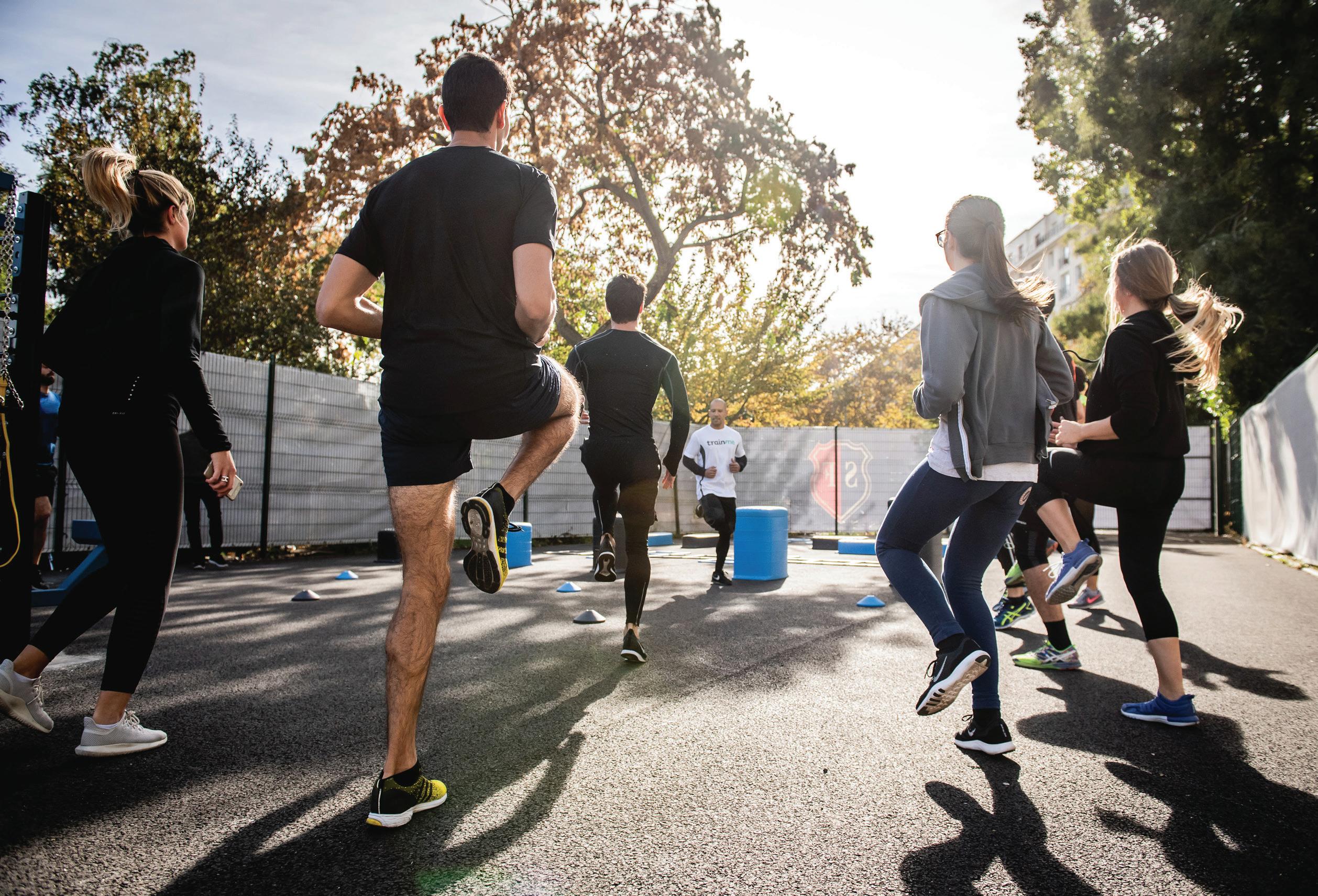
The team at Walsall were looking for reliable and easy-to-use ways to increase member retention, satisfaction and revenue. After putting out a tender, they teamed up with us.

We supported the installation of turnstiles, self-serve kiosks and on-site membership joining tablets, as well as an integrated online joining system, a swim lesson ‘home portal’ and electronic registers for instructors. Through Xn’s Leisure Hub, Walsall has moved to a unified solution that improves customer service and cuts administration costs and time.
Our technology solutions streamline the booking and membership process – taking away the frustrating barriers and lengthy paperwork increases member satisfaction. Members can also manage their membership
Members are able to manage their membership virtually
virtually, which can boost retention and revenue. The introduction of turnstiles, self-service kiosks, and online booking and joining systems, has cut employees’ administrative tasks, leaving them free to help customers in other areas.

92 Issue 11 2022 ©Cybertrek 2022
Walsall has moved to a unified solution that improves service and cuts admin costs
SOFTWARE
PHOTO: GABIN-VALLET/UNSPLASH
PHOTO: XN LEISURE
PHOTO: XN LEISURE
Fitness businesses can be transformed by fi nding the right software solution for their needs
Steffie Bryant Gym Sales

We recently worked with UFC Gym Nottingham to implement a new lead management system. When I first met with UFC Gym, the sales team had challenges cohesively managing appointments. When one team member booked an appointment, a second team member confirmed the appointment and a third carried it out.

This created a disconnect, often with tasks slipping through and impacted the lead journey, which made it difficult to track lead status, conversion and team member KPI performance. The entire lead journey was outdated, with no real structure to the system.
Once Gym Sales was live, the first step UFC Gym took was to create and design automated items for the member journey, which included emails, text messages and scheduled follow-up calls for the team.
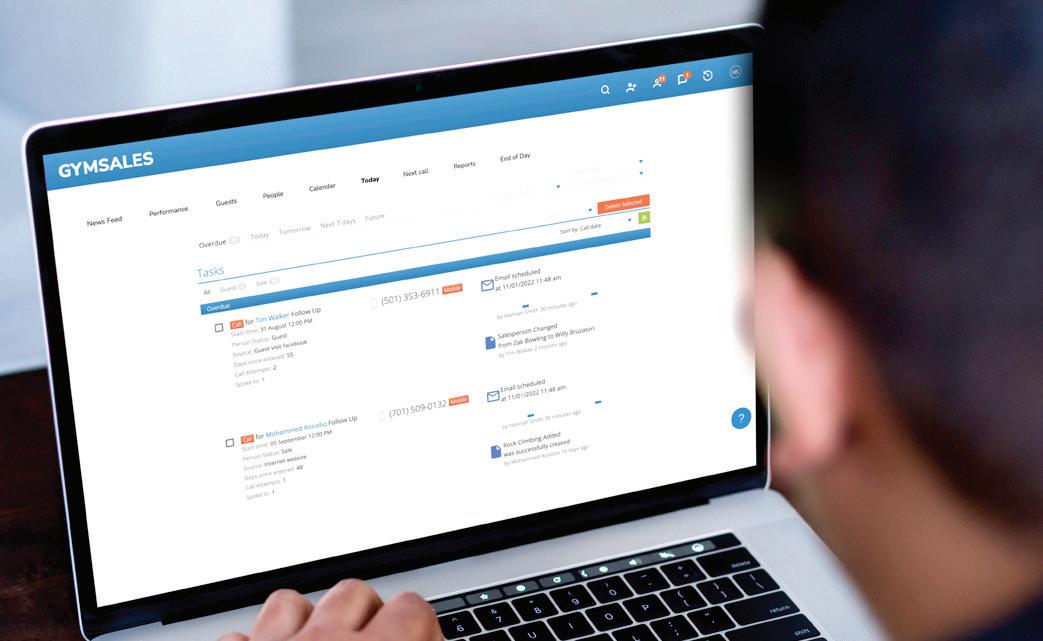
UFC Gym’s outdated system was overhauled
Using a booking link embedded in their email and text messages, potential members were able to select an appointment slot that worked for their schedule and automatically receive appointment confirmations via email and text. The calendar in Gym Sales was a great resource, and managers quickly saw all team members using it, providing a view into the sales activity.
UFC Gym’s marketing team created a series of images, videos, links, and web pages that could be used to support the current sales campaign or referral promotion, in a fully customisable setup.
Gym Sales provided UFC Gym with the tools to add structure to an already busy sales environment, allowing their team members to collaborate better.
93 ©Cybertrek 2022 Issue 11 2022
The first step UFC Gym took was to create and design automated items for the new member journey
UFC Gym can connect to its members via texts, emails and calls
photo: GYM SALES
photo: GYM SALES
photo: UFC GYM / GYM SALES
SLL and InspireAll integrated Course Pro customer management software into their sign-up process
Connah Lloyd Fitronics

SLL and InspireAll teams were overrun with enquiries from parents who wanted their children to change courses or move to a different level. This was beginning to frustrate both customers and staff, so they contacted Fitronics to discuss the implementation of Course Pro, its customer management software, into the sign-up process.
One of the benefits of Course Pro is its ability to trigger emails, which reduces customers’ admin time and means the parent or guardian can be contacted
at the click of a button. Within hours of a child being assessed, an automated email notification can be sent via the built-in Course Pro interface.
On receiving the email, parents can log into their online Course Pro account to pick and choose the most suitable date and time available. This functionality frees up both the reception staff and swim managers, as well as enabling parents to be more involved in their child’s progress, in their own time, and without having to queue at reception or wait on the phone lines.
According to SLL and InspireAll, Course Pro has greatly cut administration time, freeing up staff for other areas.
to start its journey to a cloud native environment
One Leisure
Claire Rollins
 Gladstone
Gladstone
One Leisure’s Huntingdon team wanted to pursue a digital transformation by moving from an on-premise infrastructure to a cloud-based solution. They were seeking to remove internal barriers and build a more efficient working practice using central IT.
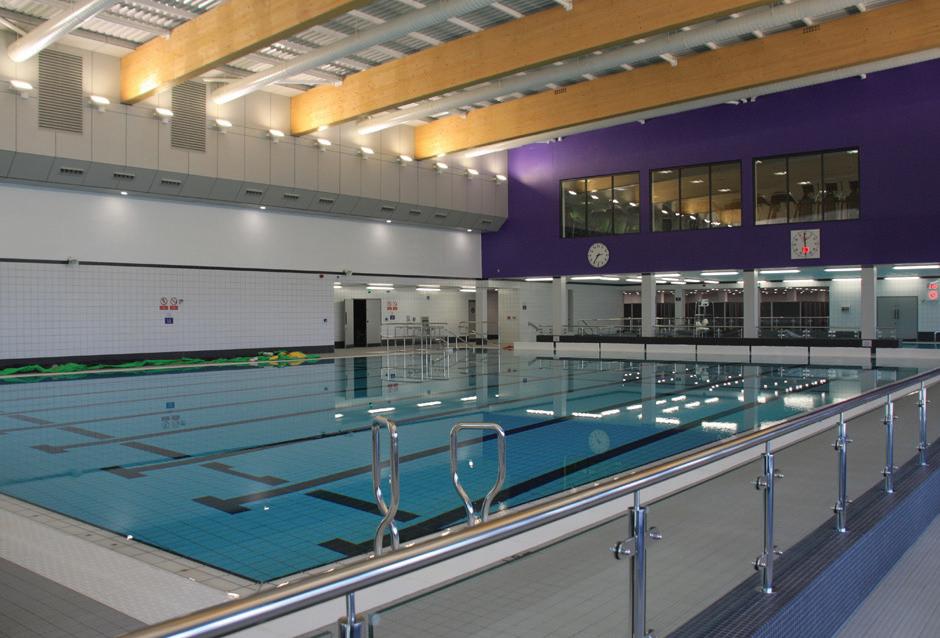
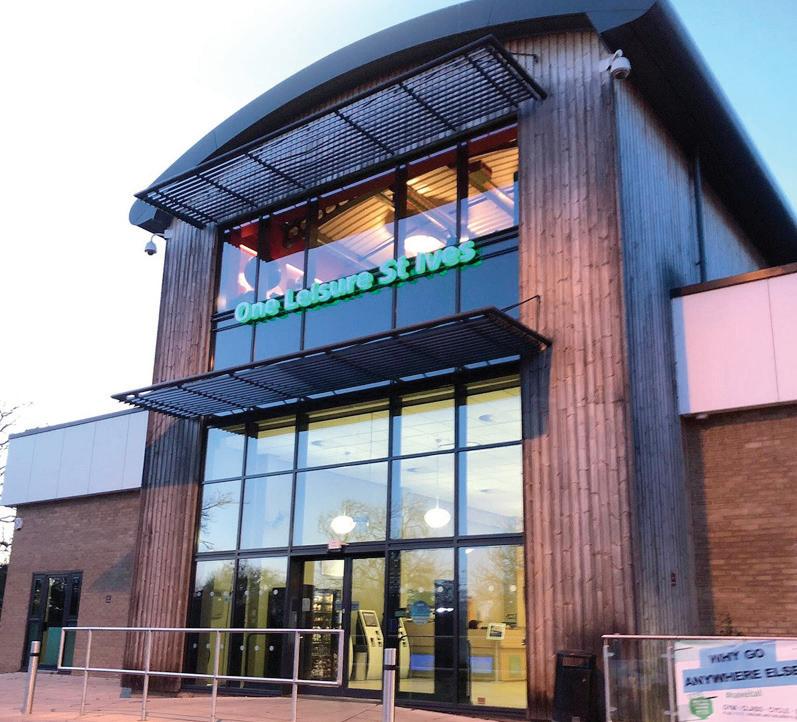
They decided to take a phased approach to the Gladstone Cloud, which involved migrating a multi-database signature environment to a dedicated area in the cloud. This effectively mirrors the on-premise environment, as well as providing all the benefits of a managed infrastructure in the cloud.
This move means One Leisure can now adopt new technology faster, reduce reliance on internal IT services, and work
on projects where innovation is at the forefront. Overall, services are more efficient and the organisation can provide an elevated digital experience for customers.
Gladstone and the One Leisure team are committed to their journey to the cloud and its ability to remove operational challenges. The adoption of a phased approach has also enabled One Leisure to start the journey at its own pace.
94 Issue 11 2022 ©Cybertrek 2022
has been able
Parents can check on their child’s progress via the portal
One Leisure can now adopt new tech faster
photo: Fitronics
photo: Fitronics
photo: Gladstone
SOFTWARE
photo: Gladstone

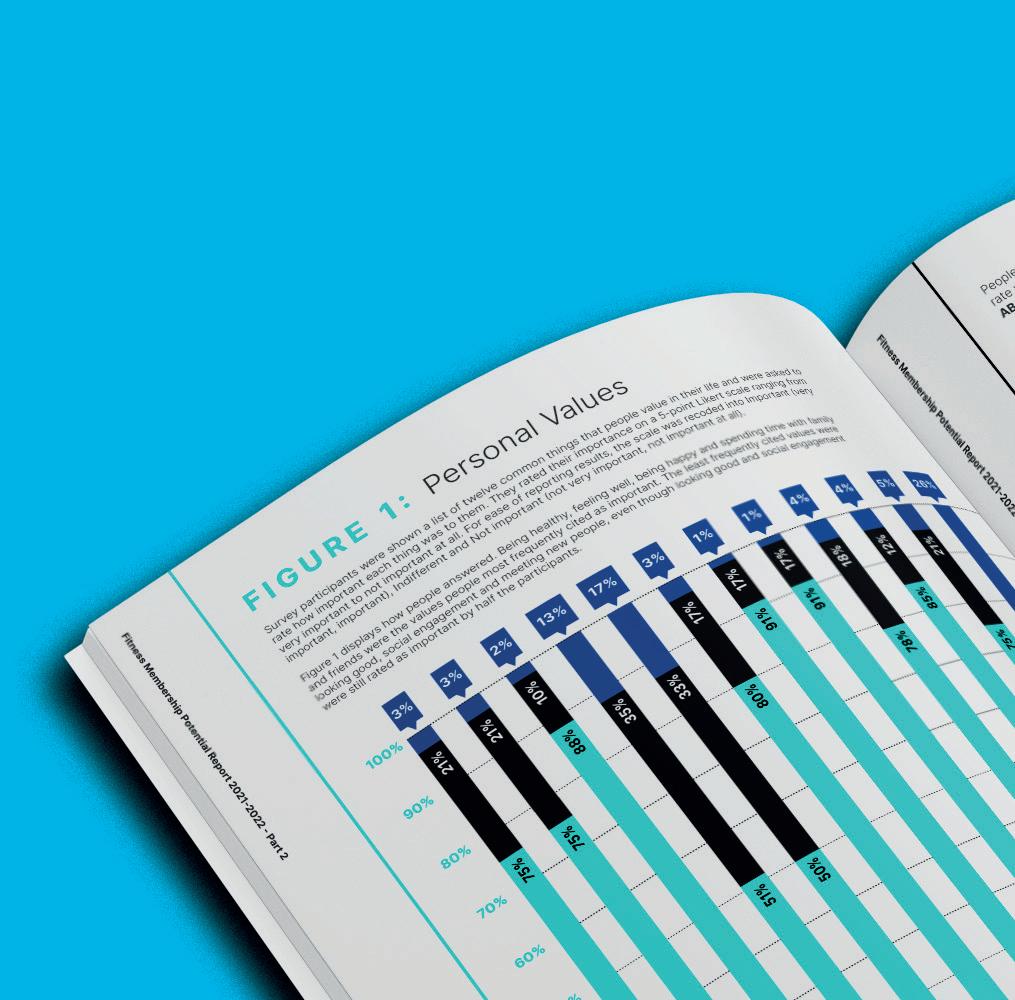



your membership in 2022 Scan QR or visit fitronics.com TAP INTO UK’S LATEST MARKET POTENTIAL
fitness managers increase
Product innovation
Frances Marcellin rounds up the latest in health and fitness

Eleiko has launched the Prestera cable attachment which saves space, increases training options and maximises usage of the
Prestera rack system. It offers a single or dual pulley configuration and a range of handles to create a more powerful strength station for gyms and lifters.
“The demand for strength training continues to grow, and space optimisation and training experiences are vital considerations for facilities,” said Erik Blomberg, CEO of Eleiko. “Integrating an adjustable cable system into our Prestera range will fundamentally shift how we design and build training spaces.
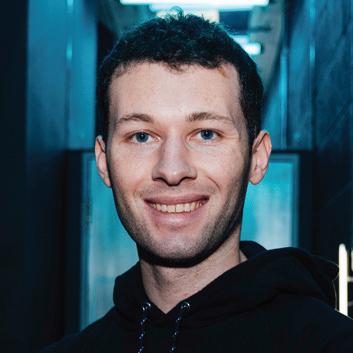
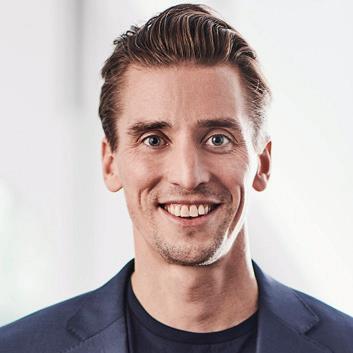

our fi rst step in redefining what’s possible and creating bespoke strength training environments that deliver stronger member and athlete experiences.”
The cable attachments fi t within the Prestera side uprights and the 270-degree pulley means training can take place in the under-
utilised space at the sides of the rack. This increases fl oor space usage and functionality. The attachment has a 120 kg (264 lb) weight stack with a 1:2 resistance ratio delivering 60kg (120lb) of pulling resistance. Dual stacks can also be connected.
Eleiko fitness-kit.net KEYWORD
Rowcave, a rowing simulator studio that can be set up in gyms and clubs introduces immersive rowing to the group class format. The new brand is the result of a merger with Rowbots which operates two rowing studios in London. Rowbots classes consist of 50-minute sessions of maximum-intensity training
split between the fl oor and rowing machine.
The concept of Rowcave aims to bring the outdoor experience of rowing inside. The studio uses LED screens to project an immersive river view of “meticulously re-created courses” where boat speeds for every user are adjusted according to rower output. Rowers’ peripheral vision picks up the visuals from the start line and along the course, to simulate a close to realistic experience.
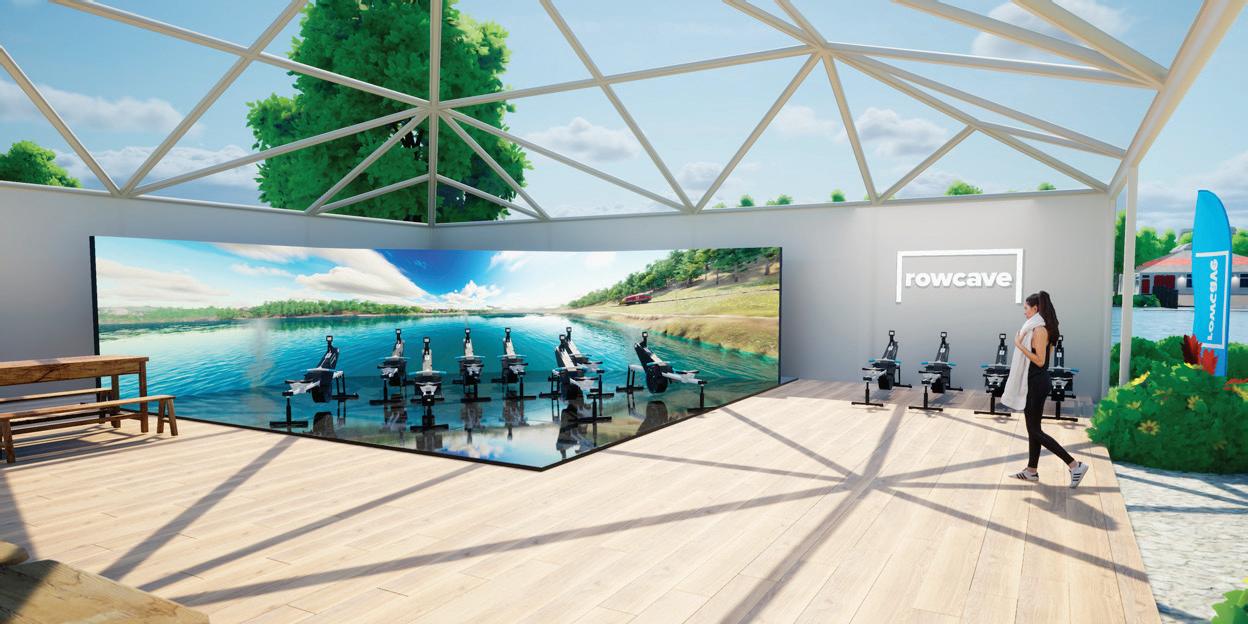
“Rowcave is a new kind of indoor training tool, created
to empower individuals to reach their best levels of performance,” said Theo Rigden, founder of Rowcave. “Athletes can train together in beautiful and detailed environments which immerse them in some of the world’s best waterways – all from the convenience of their clubs, gyms or boathouses.”
From Spring 2023, Rowcavers will be able to connect through World Rowing racing software, for a real-time experience.
fitness-kit.net
KEYWORDS
FITNESS-KIT.NET
This is
We bring the ‘Eleiko feeling’ to cable-based training Erik Blomberg
The Prestera range will fundamentally shift how we design and build training spaces, says Erik Blomberg
Rowcave
Rowcave is a new kind of indoor training tool, says Theo Rigden
Athletes can train together, immersed in some of the world’s best waterways Theo Rigden
● Prestera off ers space saving options for gyms
● Sites need a minimum 4.5m wide space to start a studio
PHOTO: ELEIKO
PHOTO: ELEIKO
PHOTO: ROWCAVE
PHOTO: ROWCAVE
Aktiv Solutions has partnered with Xponential Fitness on its Gym Rax functional training range to create Xponential+ branded on-demand exercise areas. They are set to debut across the US in early 2023.
The digitally-connected fitness spaces will provide guided boutique classes in hotels, resorts and high-end residential.
“The commercial fitness industry has become
increasingly competitive, and operators of all types can no longer simply offer traditional equipment solutions,” said Bryan Green, CEO of Aktiv Solutions. “They must also deliver relevant, innovative training apparatus and content tailored to energise and guide guests in their fitness experience.”

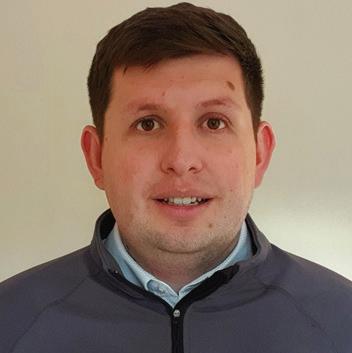
To meet the growing demand for exercising outdoors, Aktiv Solutions
Innerva’s new access range, comprising the powerassisted Rotary Torso and Torso Dip, addresses the issues caused by prolonged wheelchair use. Innerva’s head of product development, Matt Holland, developed the range for gyms and leisure centres. It’s a creation that recently won him the Future Leaders Award from Innovate UK, the UK’s innovation agency.
“Physical activity is crucial for the mental and physical health of our ageing population and those with
long-term health conditions, but there are limited opportunities for wheelchair users in gyms,” said Holland. “Manual wheelchair use puts a lot of stress on the upper body, with many users suffering pain, strains and injuries. The repetitive motion can strengthen specific muscles whilst weakening others. Over time, this can negatively affect people’s quality of life and independence.”

Holland says the Rotary Torso machine engages weakened muscle groups,
recently added Ecosystem to its Gym Rax line. The curved, organic form is designed to engage users in outdoor activity – a free app helps new adopters learn about the equipment and offers a library of body weight and accessory-based exercises.

“Ecosystem creates intention and direction, and an energetic landscape for all to enjoy,” says Green.
Aktiv Solutions fitness-kit.net keyword
Matt Holland
while the Tricep Dip strengthens upper arm and shoulder muscles, which are important for reaching activities, and increasing overall strength for propulsion.
Innerva fitness-kit.net keyword
97 ©Cybertrek 2022 Issue 11 2022
There are limited opportunities for wheelchair users in mainstream gyms, says Matt Holland
The range can be used by all gym-goers, not just wheelchair users
Operators must deliver content to energise and guide guests, says Bryan Green
● The curved, organic form is designed to engage outdoor users
Our goal is to create an energetic landscape for all to enjoy Bryan Green
● Weak muscle groups can be better isolated photo: INNERVA
photo: INNERVA
photo: Akt IV Solut I o NS
photo: Akt IV Solut I o NS









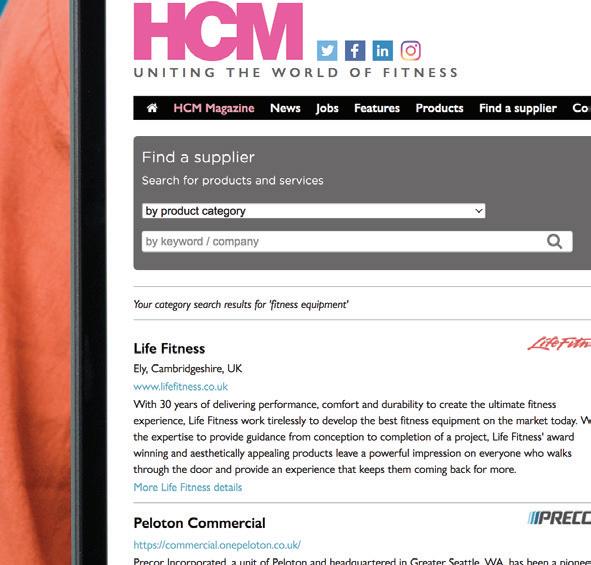
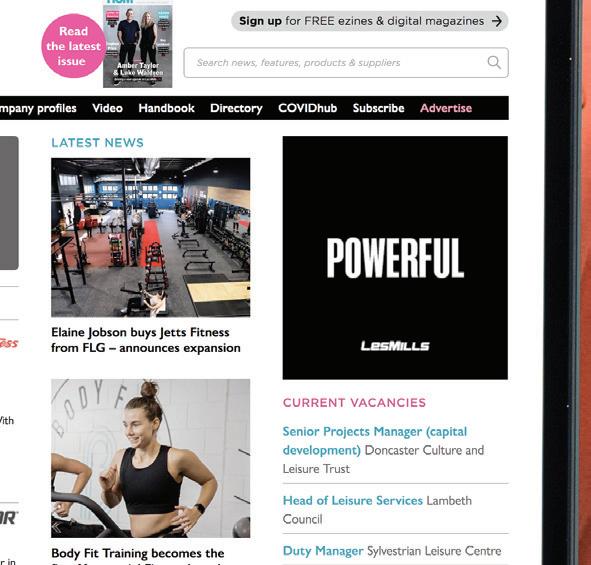

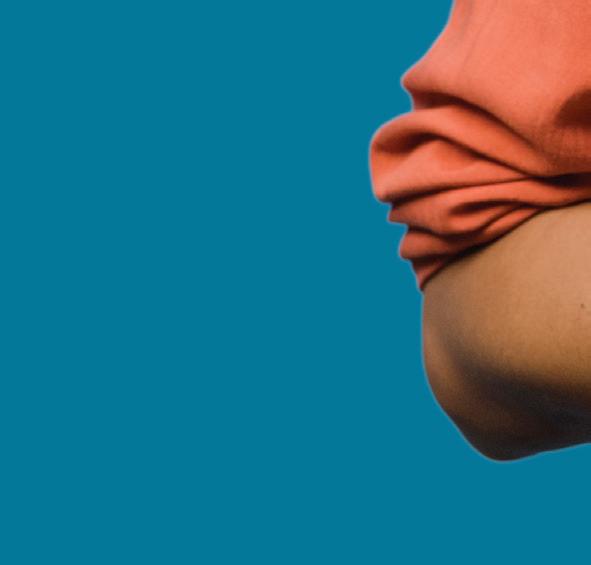
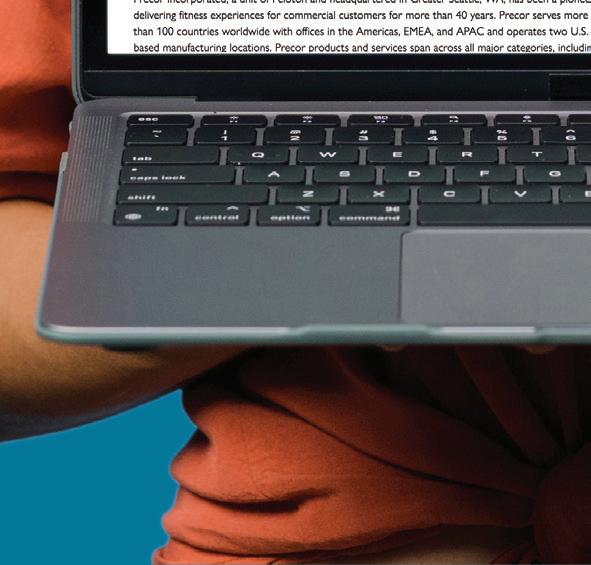




FIND A SUPPLIER CLICK HERE to search for a supplier on HCM’s Company Profiles Hub CLICK HERE to visit the HCM Handbook Company Profiles Tap into HCM’s comprehensive supplier directory and profiles to get in touch with the industry’s leading suppliers of products and services to power your business.






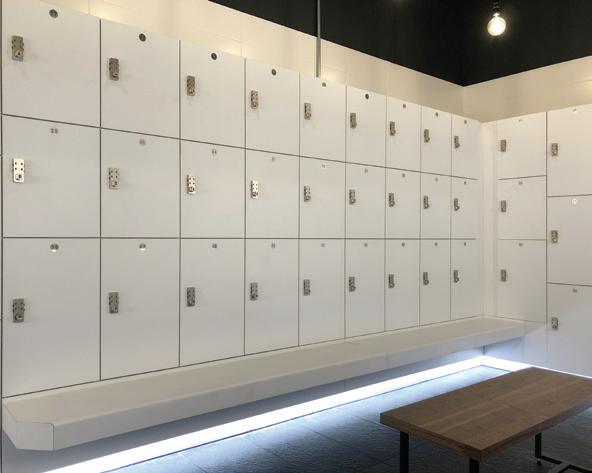


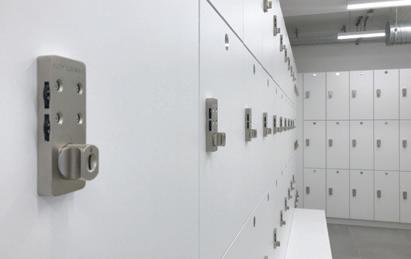



ARCHITECTS & DESIGNERS www.zynkdesign.com Wellness Design e xperts zynkdesign.com +44 (0) 207 193 1430 DIRECTORY FLOORING www.tvs-group.co.uk Contact us now: Office: +44 (0) 1706 260 220 Email: Sales@TVS-Group.co.uk Gym Flooring & Acoustic Solutions www.TVS-Group.co.uk www.regupol.com www.regupol.com Fitness Flooring and Acoustic Flooring in Gyms FUNCTIONAL TRAINING / FLOORING www.safespacelockers.co.uk SUPPLIERS OF HIGH QUALITY CHANGING ROOM SOLUTIONS FOR THE FITNESS AND LEISURE INDUSTRY Contact us today for more information T: 0203 651 1500 E: info@safespacelockers.co.uk » Lockers, benches, padlocks and cubicles » Changing room design » Consultation services » Locker servicing and maintenance » Financial solutions Official distributor of SUITMATE® Swimsuit Water Extractor in England, Scotland and Wales LOCKERS & INTERIORS Tel +44 (0)1803 555885 Email sales@crownsportslockers.co.uk www.crownsportslockers.co.uk LOCKERS & INTERIORS LOCKERS & INTERIORS www.fitlockers.co.uk To book your advert call the sales team on +44 (0)1462 431385 FITLOCKERS Thinking beyond standard storage CONTACT US m k K Turnkey capability Styles and FITTINGS FOR EVERY setting CODE OR KEY SECURITY Sales@fitlockers.co.uk 01442 409600 www.fitlockers.co.uk Made in Britain
Easing the joints
Being sedentary can make arthritis worse says the Institute for Health and Care Excellence, which has recommended exercise as being more effective than drugs or surgery in managing symptoms
Exercise should be considered as a core treatment for those suffering from arthritis caused by wear and tear.
Draft guidelines, published for the UK’s National h ealth service (N hs) by the National Institute for h ealth and c are e xcellence (NI ce ), state that physical activity can ease pain and help individuals with osteoarthritis stay healthy.
The guidance recommends offering tailored therapeutic exercise to all people with osteoarthritis, specifically identifying local muscle strengthening and general aerobic fitness exercises as being particularly effective.
Reasons for success
a key to the success of physical activity was not only getting people – and joints – moving, but also the positive effect that exercise can have on arthritis sufferers who are overweight.
according to NI ce , evidence generally shows that, for people with knee osteoarthritis, as weight loss increases, the benefits in terms of quality of life, pain reduction and physical function increase.
NI ce says people who are overweight should be advised that weight loss will improve their quality of life and physical function while also reducing pain. h ealthcare professionals are advised to support them to choose a weight loss goal,
Physical activity might be painful at first for people with arthritis caused by wear and tear, but the improvements they experience make it worth it, says NICE
explain that any amount of weight loss is likely to be beneficial, but that losing 10 per cent of their body weight is likely to be better than losing 5 per cent.
In its guidance to N hs healthcare workers and practitioners, NI ce recommends that any prescribing of exercise should be accompanied by an explanation that physical activity might be painful at first – but that “it’s worth it”.

Managing expectations of pain
The guidance states: “advise people with osteoarthritis that joint pain may increase when they start therapeutic exercise.
“ e xplain that doing regular and consistent exercise, even though this may initially cause discomfort, will be beneficial for their joints – and that long-term adherence to exercise increases its benefits.”
e xercise is favoured over the use of steroid injections, paracetamol and glucosamine, which are actively discouraged.
More: www.HCMmag.com/arthritis
100 Issue 11 2022 ©Cybertrek 2022 research
photo: p Astudio/shutterstock
People with arthritis benefit from exercise, although it can be uncomfortable at first


BIODRIVE SYSTEM PATENTED Biostrength. Superior Results, Faster. ™ ENGAGEMENT AND MOTIVATION NEUROMUSCULAR ACTIVATION OPTIMAL WORKLOAD PERSONALISED ROM CORRECT POSTURE Right ROM and speed Maximum muscle contraction Automatic posture setup Increased neuromuscular activation Biofeedback and AI for real time guidance Biostrength™ helps you avoid the most common strength training mistakes to get up to 30% more results from your workout. Thanks to the patented Biodrive System, you can easily and automatically: Select the goal and get the best resistances and biofeedback for it Train with the correct workload Find the proper range of motion Set the right tempo and number of reps Get the correct rest time Discover more on technogym.com/HCM1 CLICK TO PLAY VIDEO





































































































































































































































































 Cobbold says management teams must be a male-female mix
Cobbold says management teams must be a male-female mix




























































 Operators are increasingly hiring data analysts and using machine learning to drive decision-making
photo: adam nowakowski/unsplash
Operators are increasingly hiring data analysts and using machine learning to drive decision-making
photo: adam nowakowski/unsplash











































































 Rigs can be used as the location for charity competitions
Rigs bring the wow! Factor to the gym floor, says Gray
photo: Core h ealth and Fitness
Rigs can be used as the location for charity competitions
Rigs bring the wow! Factor to the gym floor, says Gray
photo: Core h ealth and Fitness
















 Gladstone
Gladstone































































